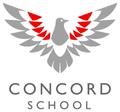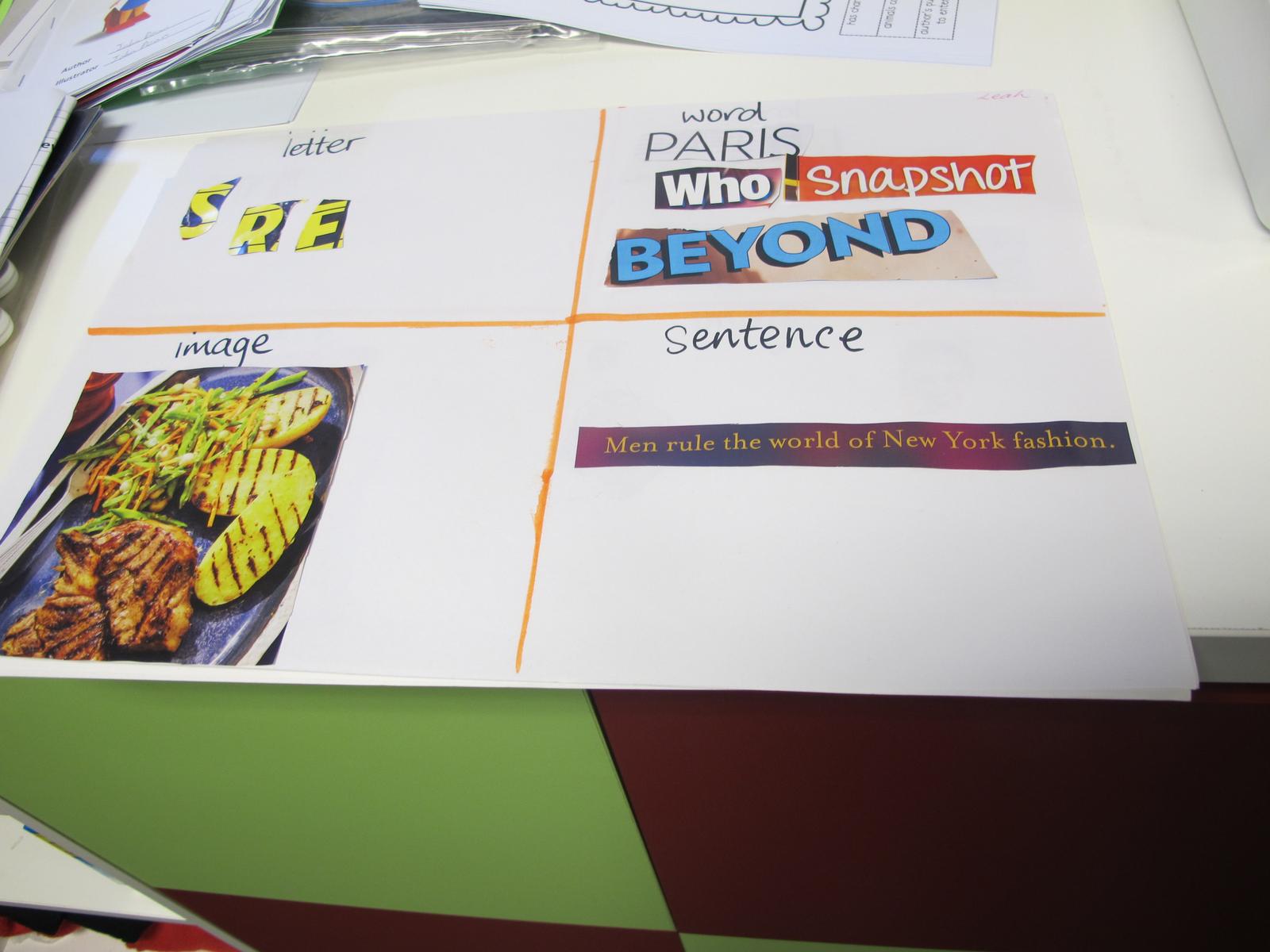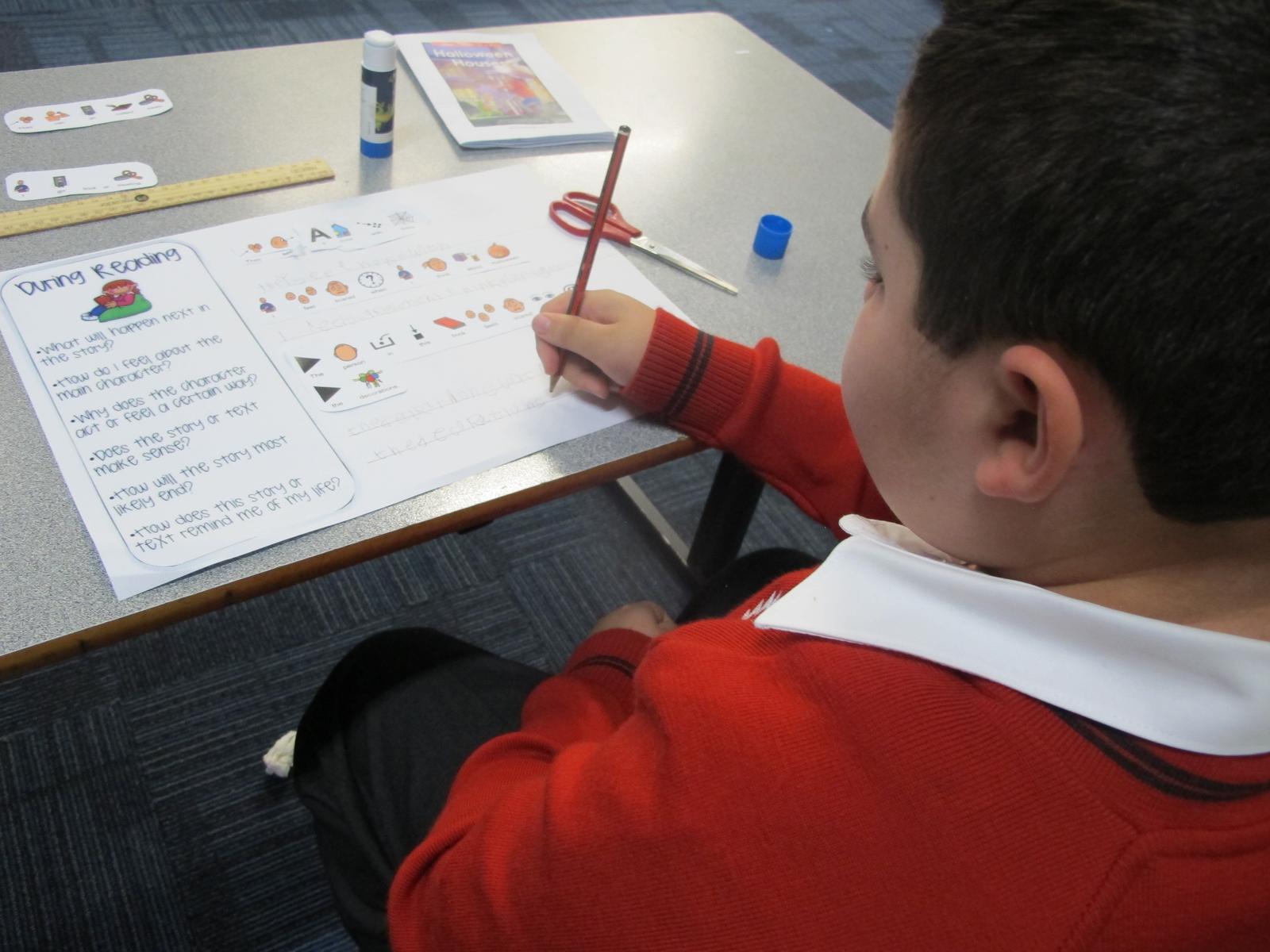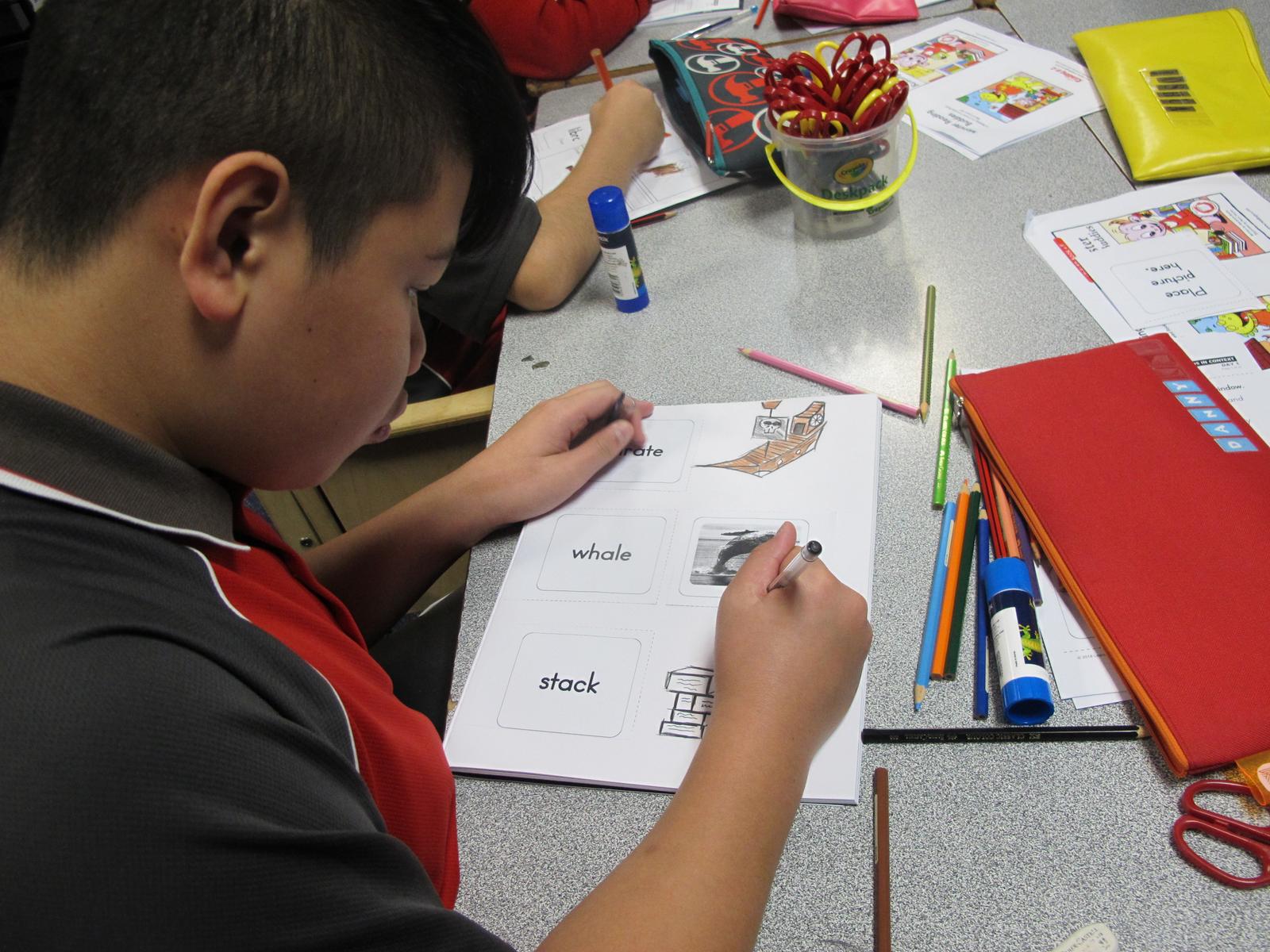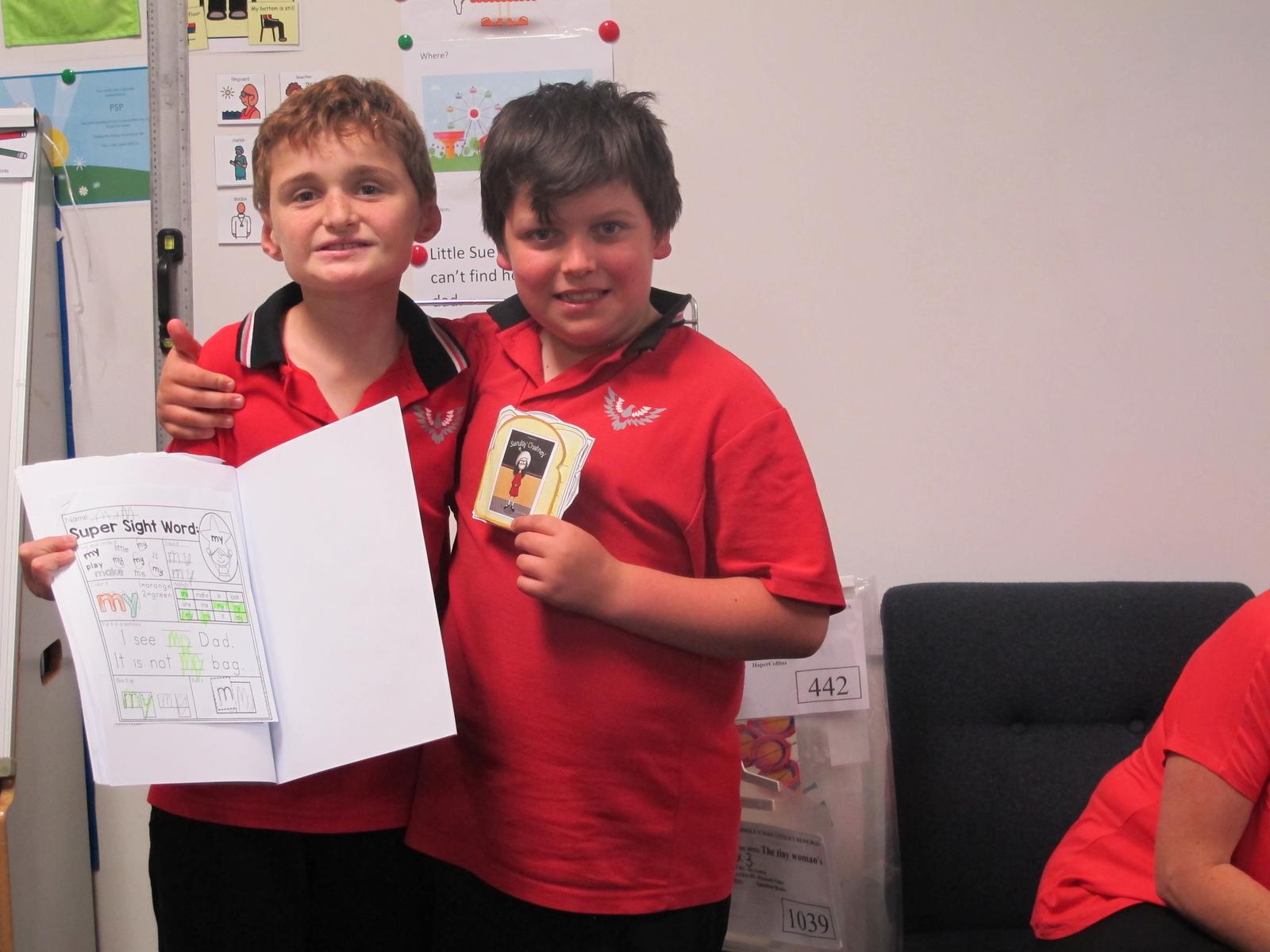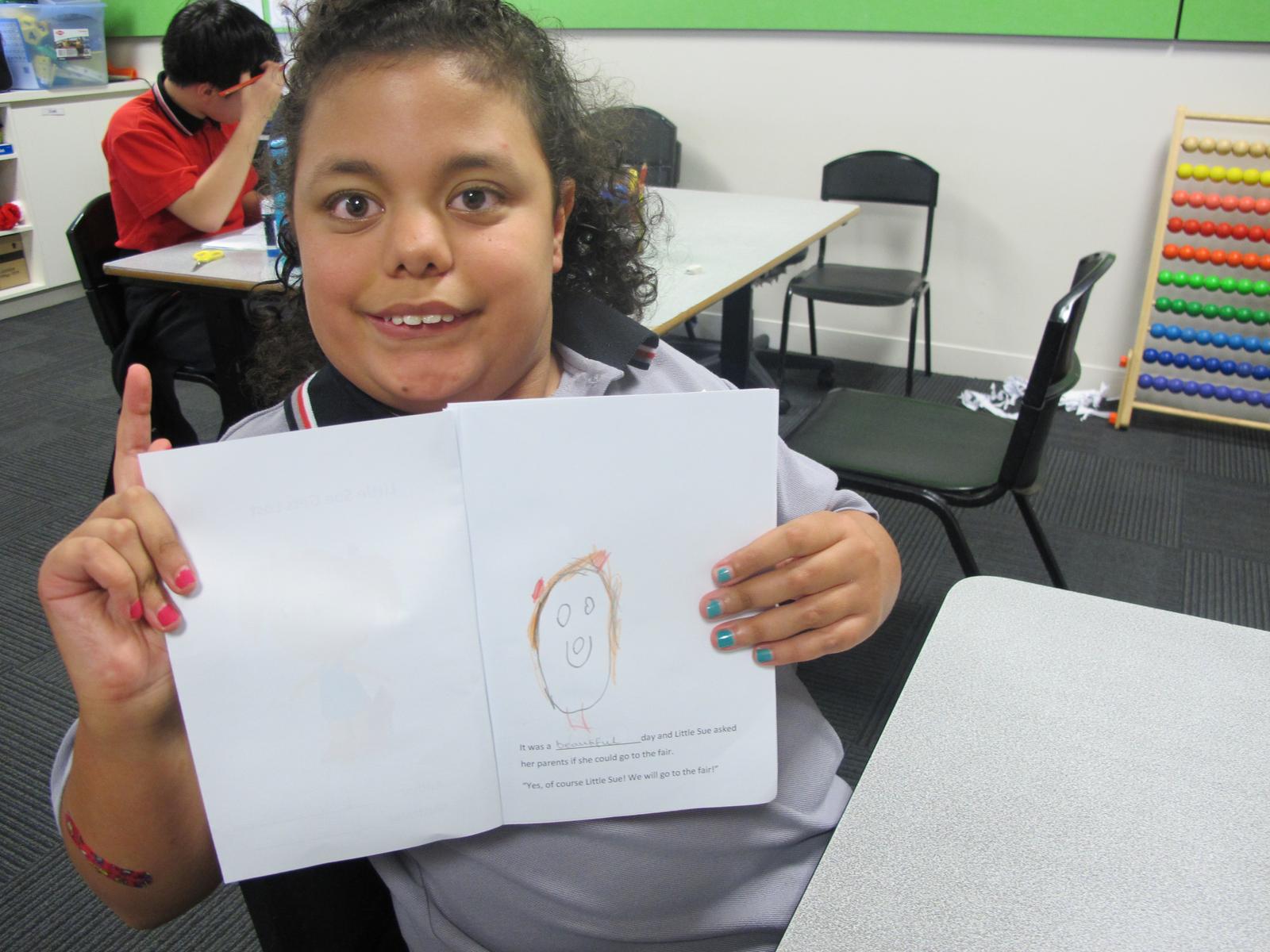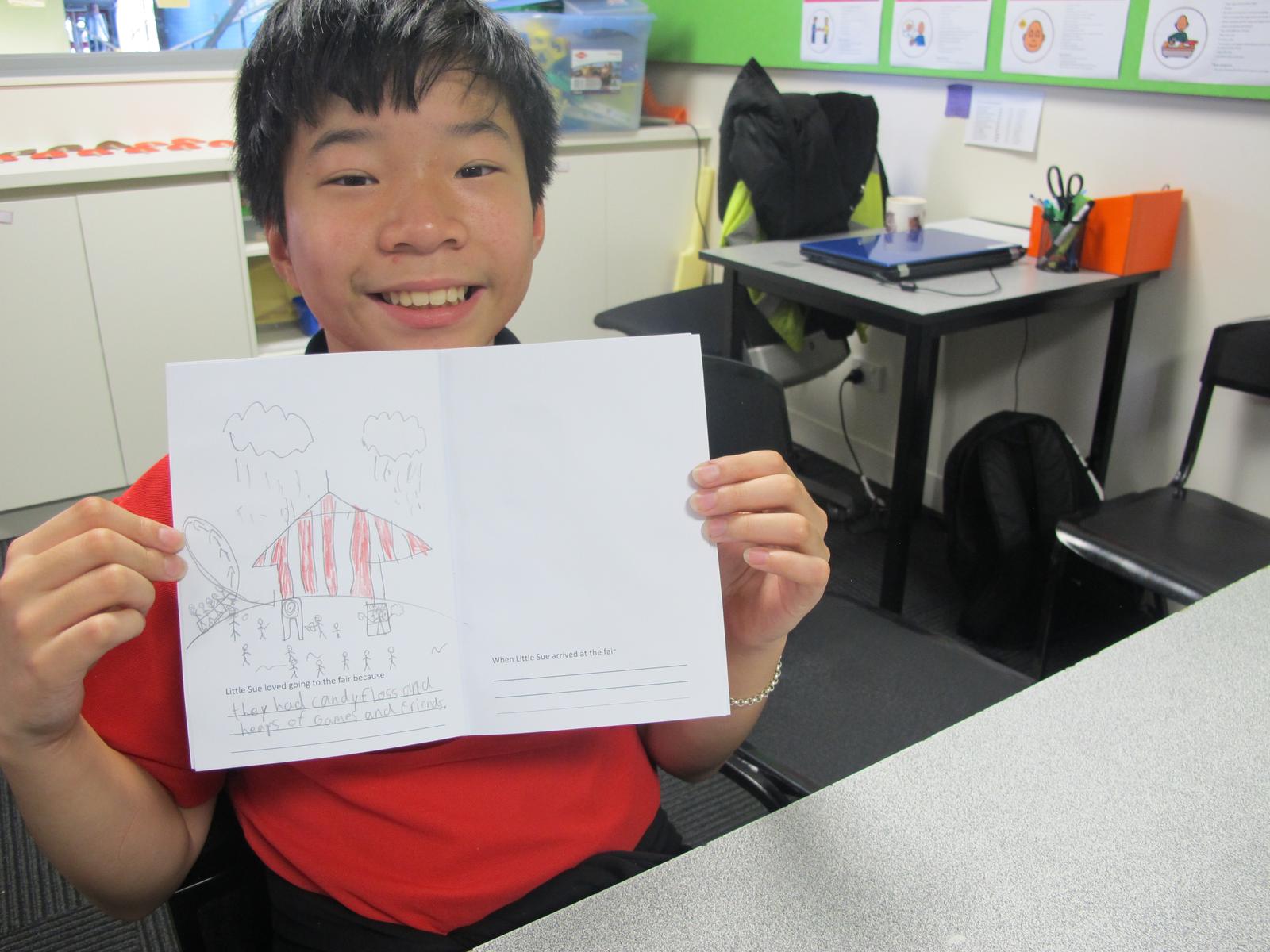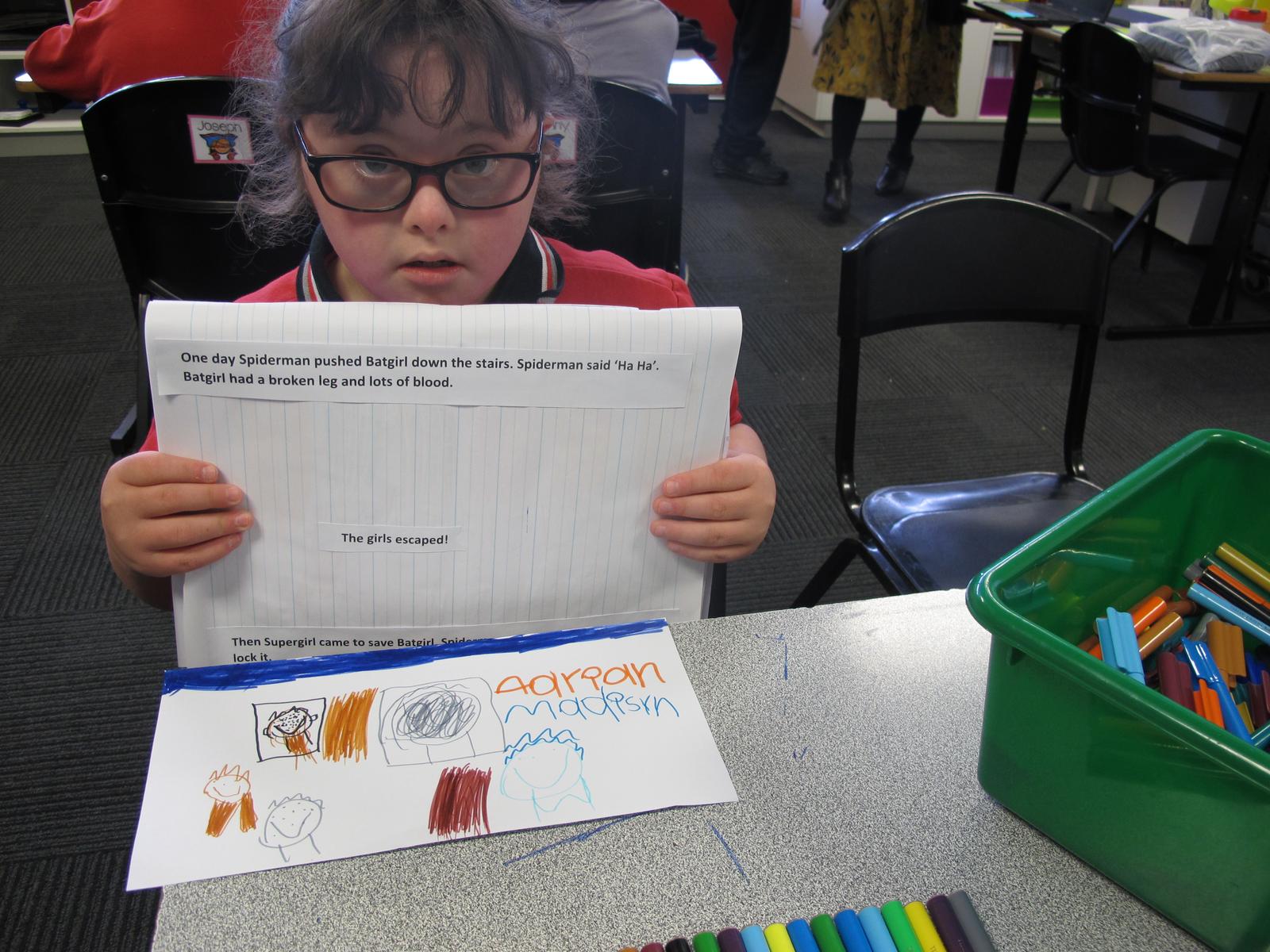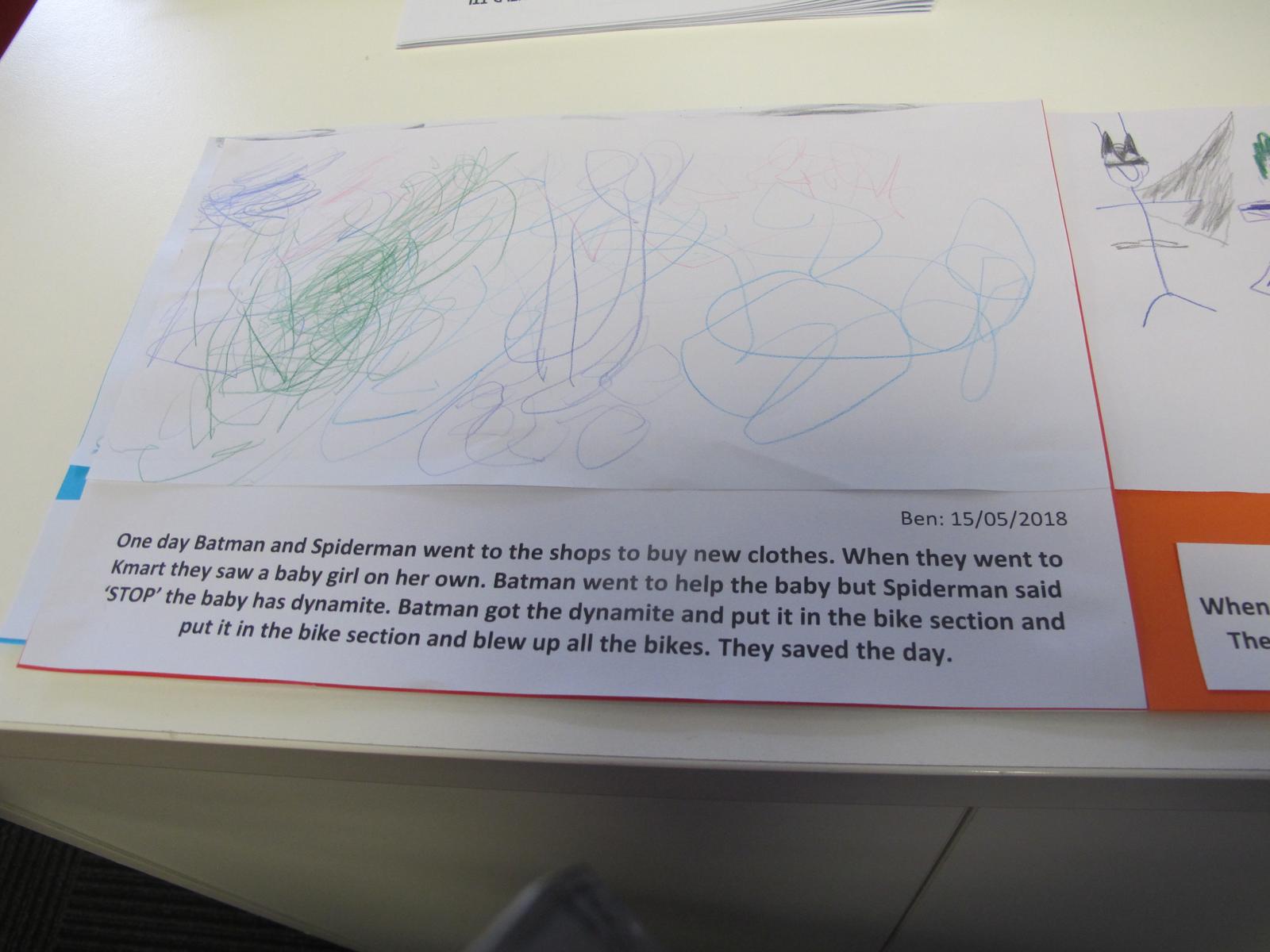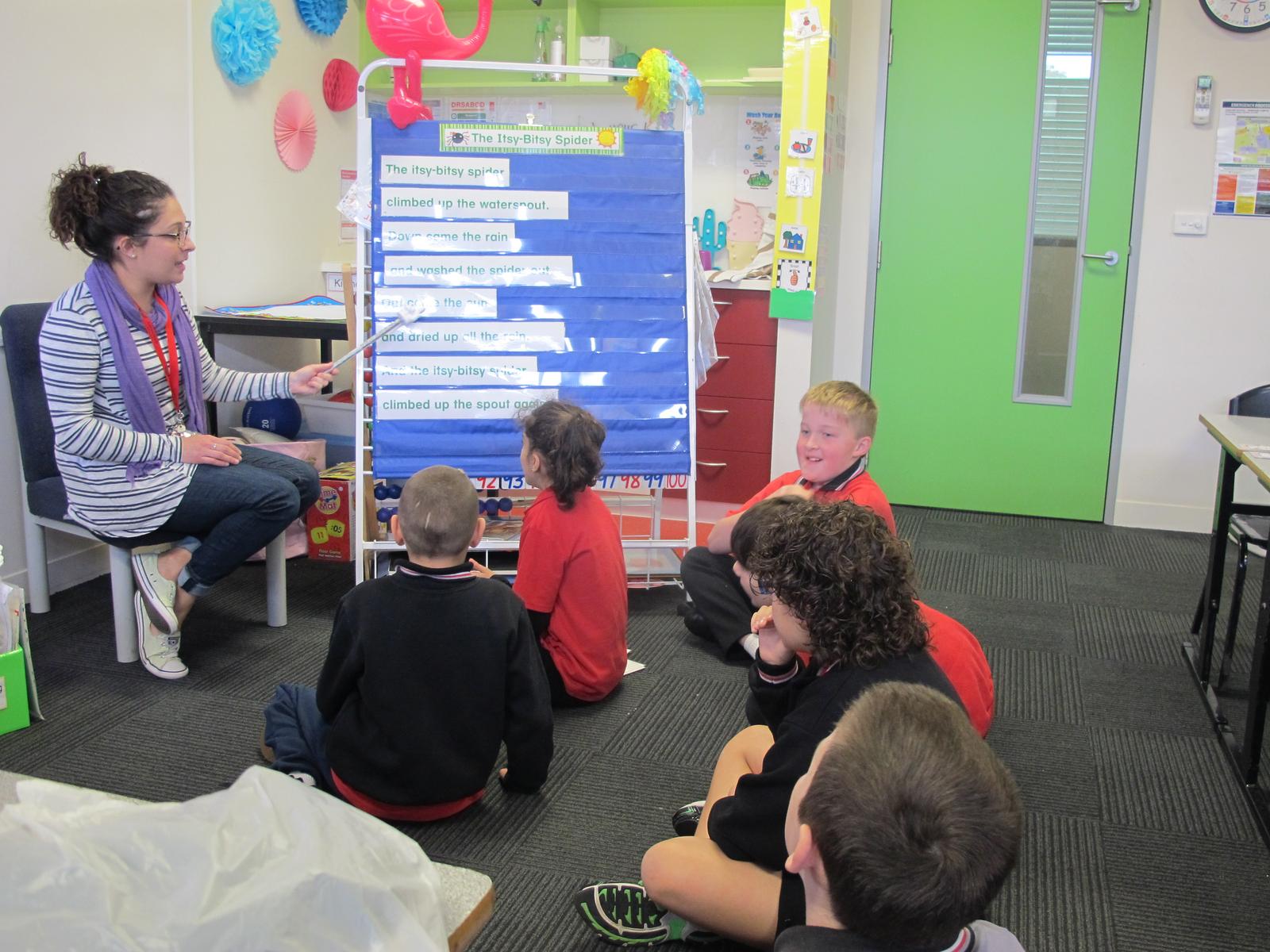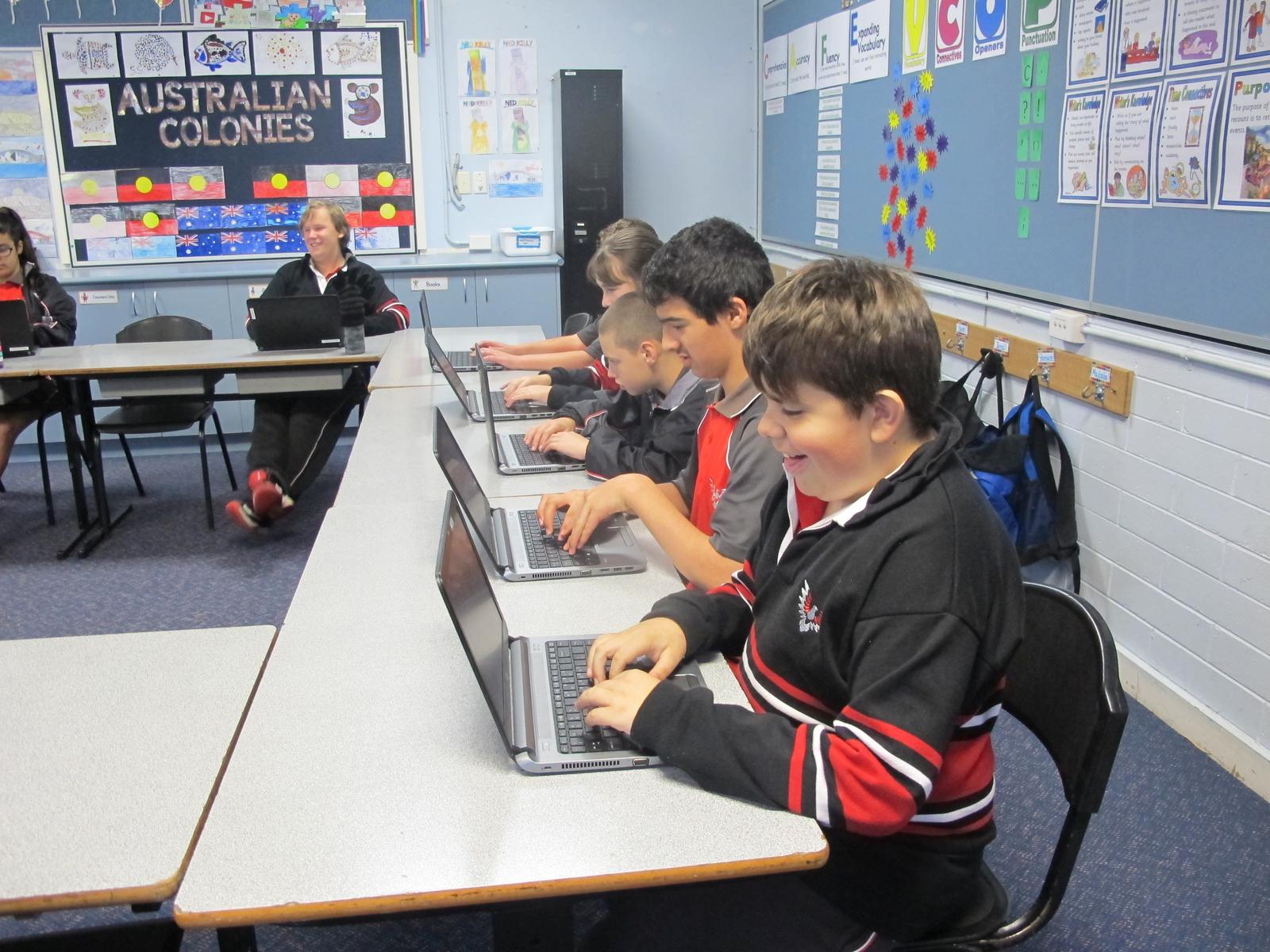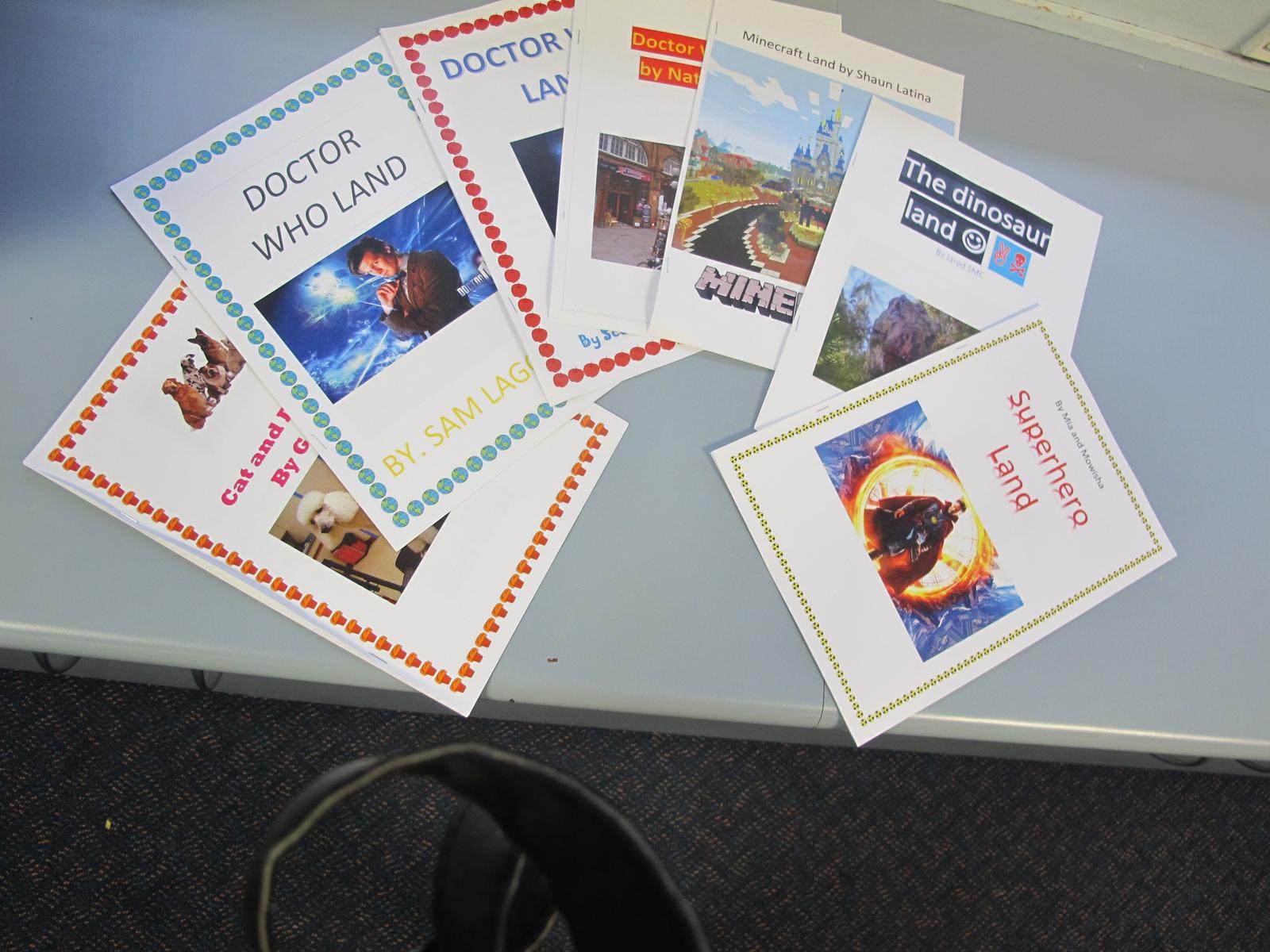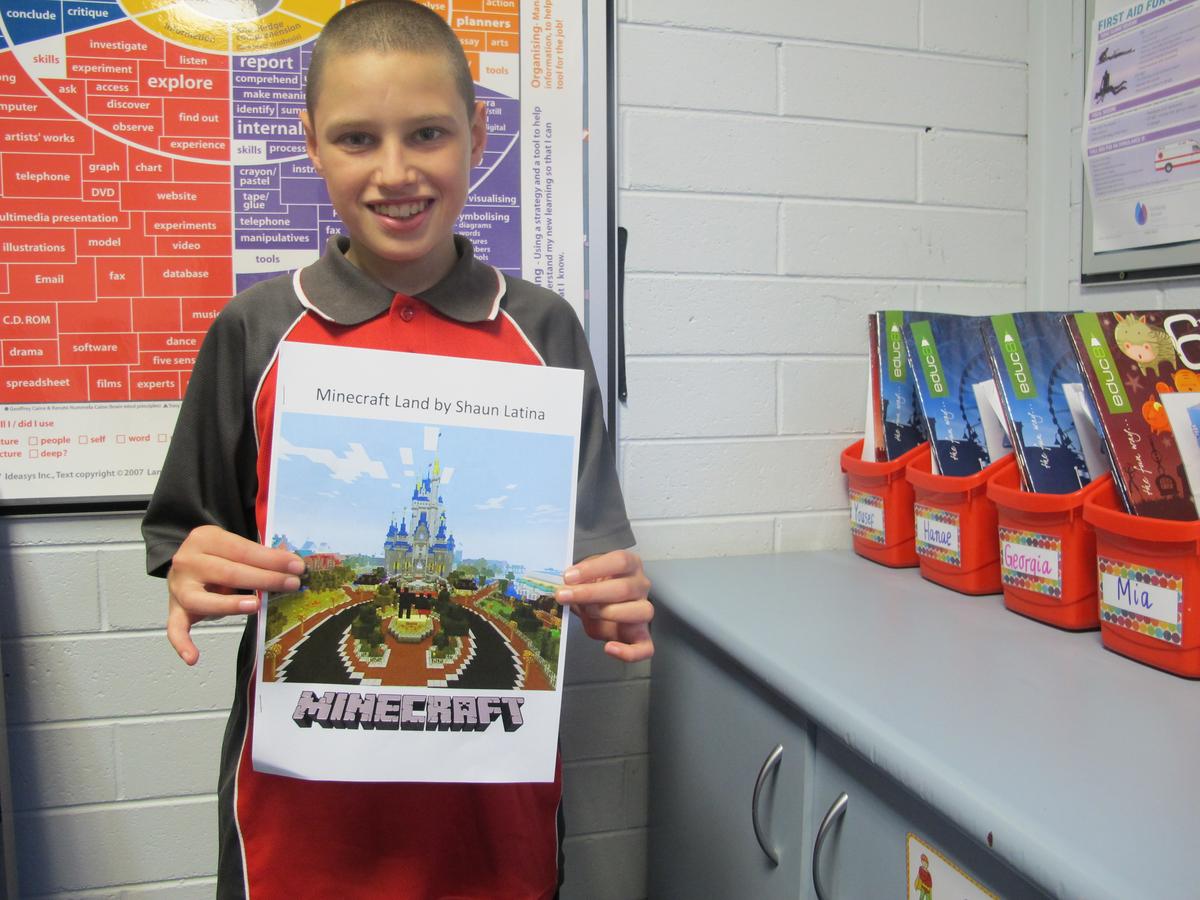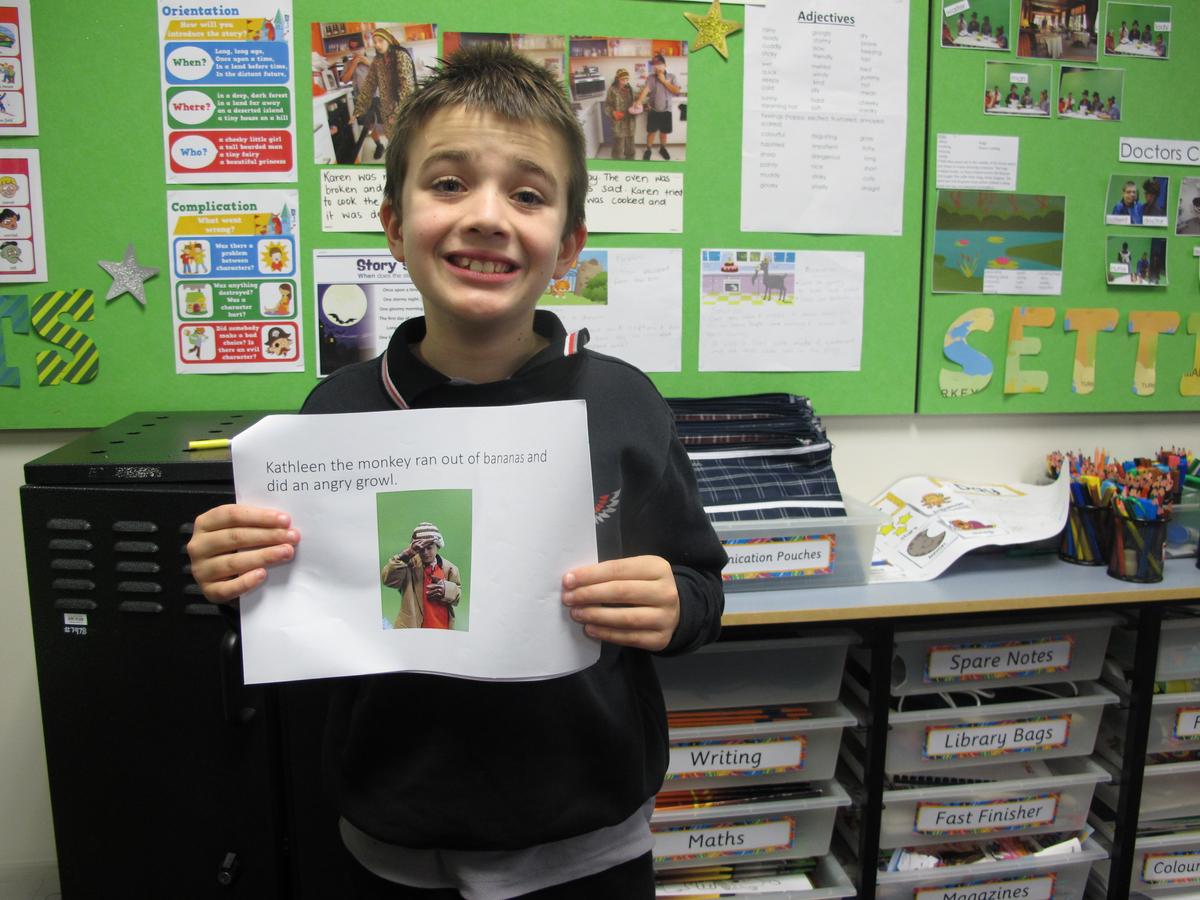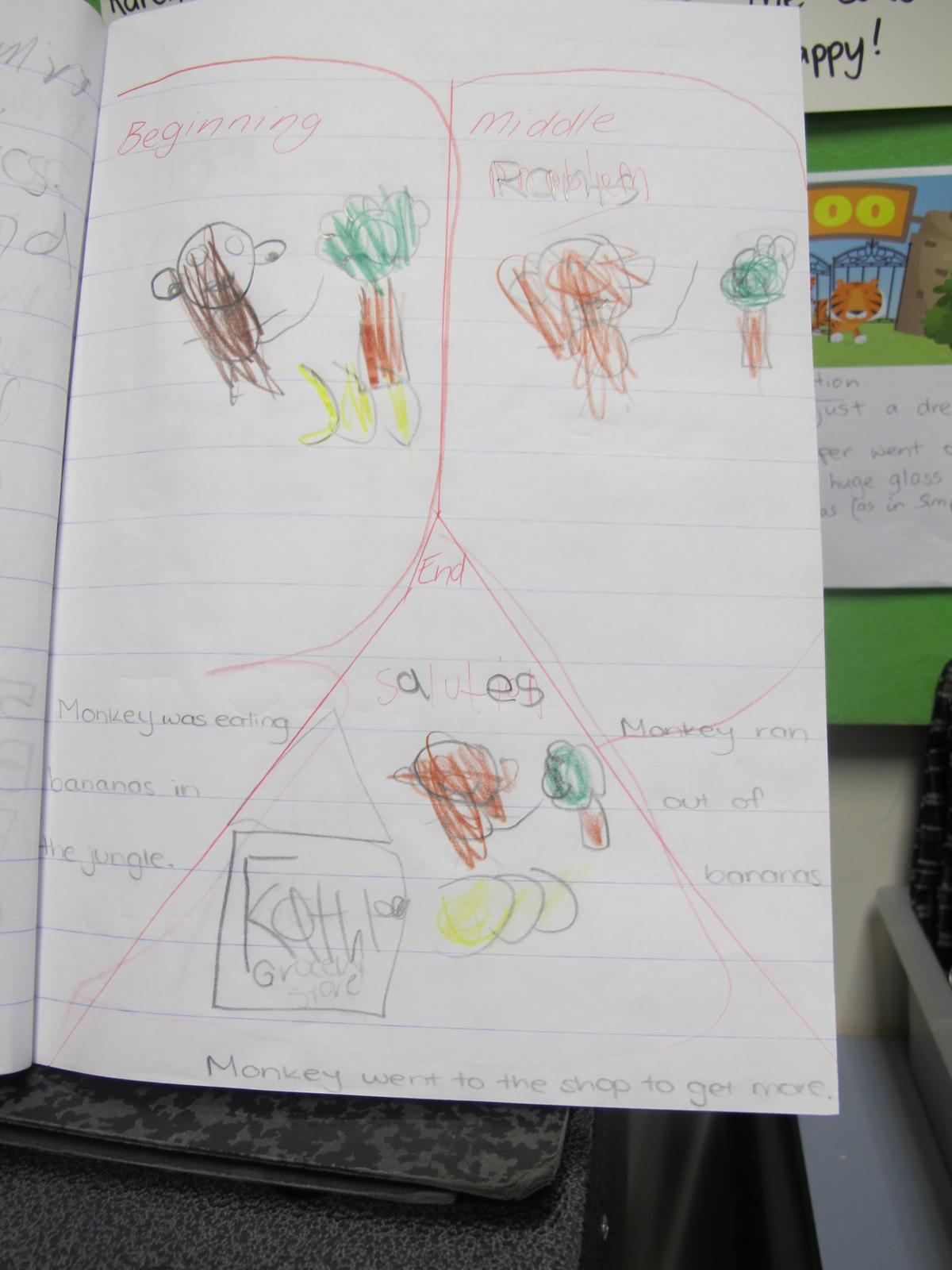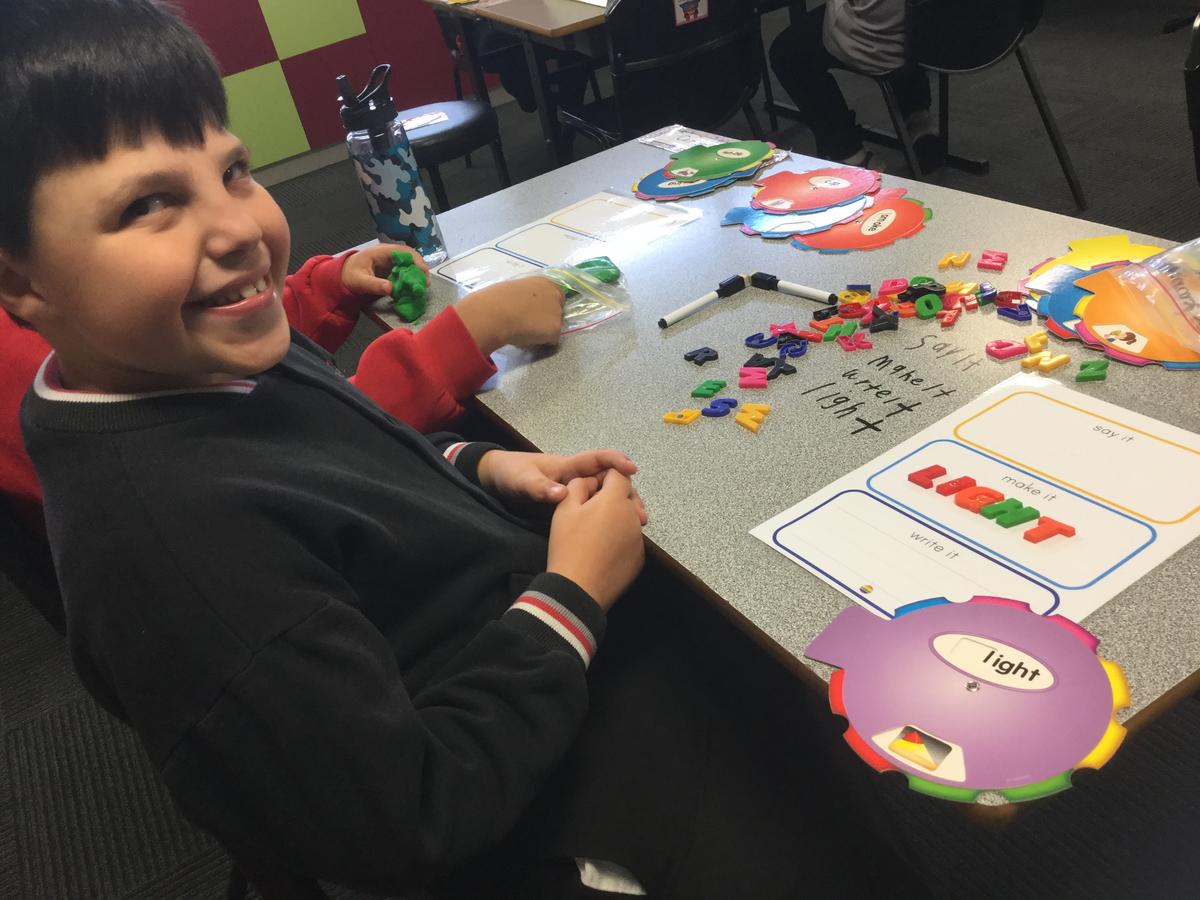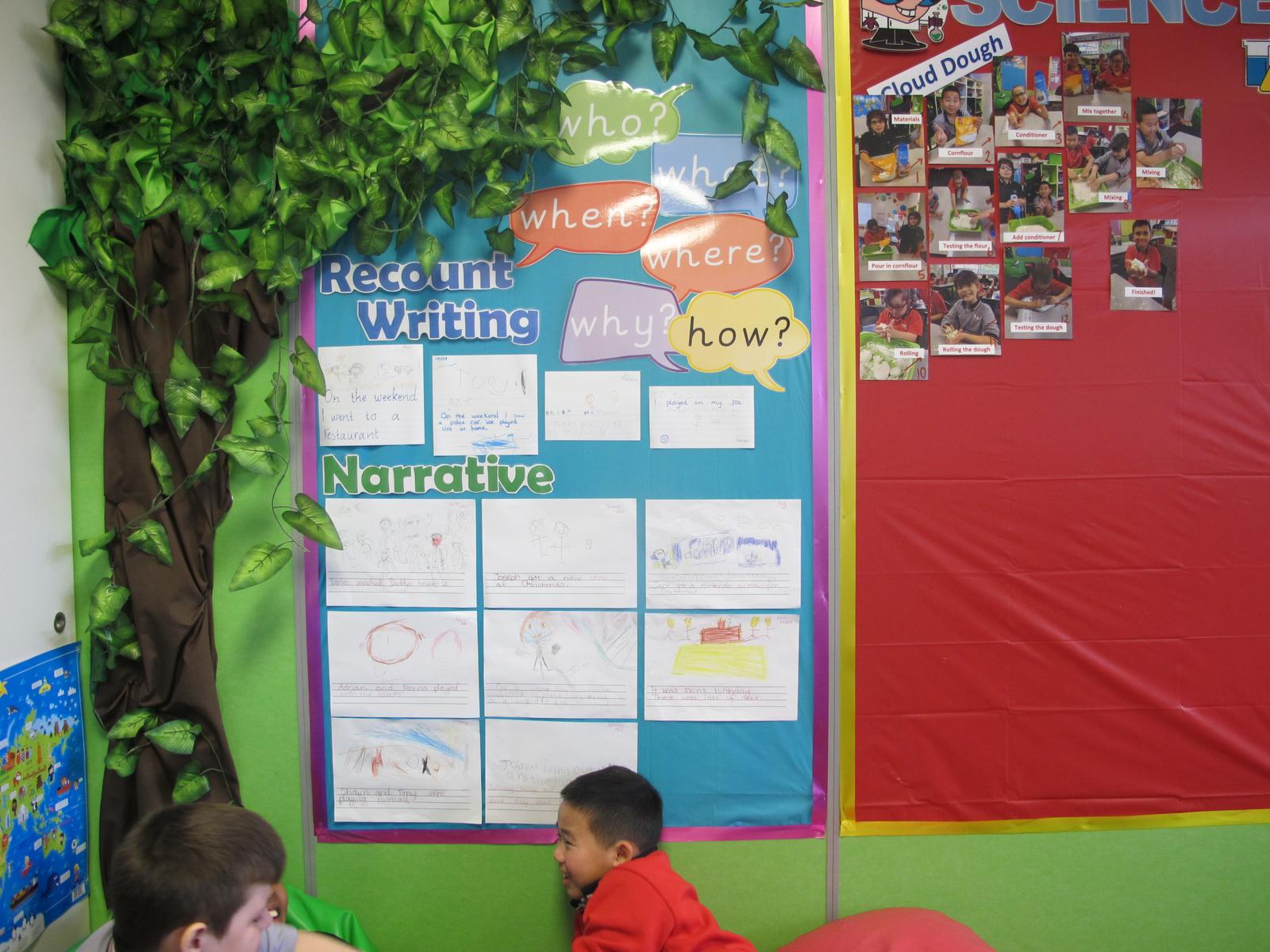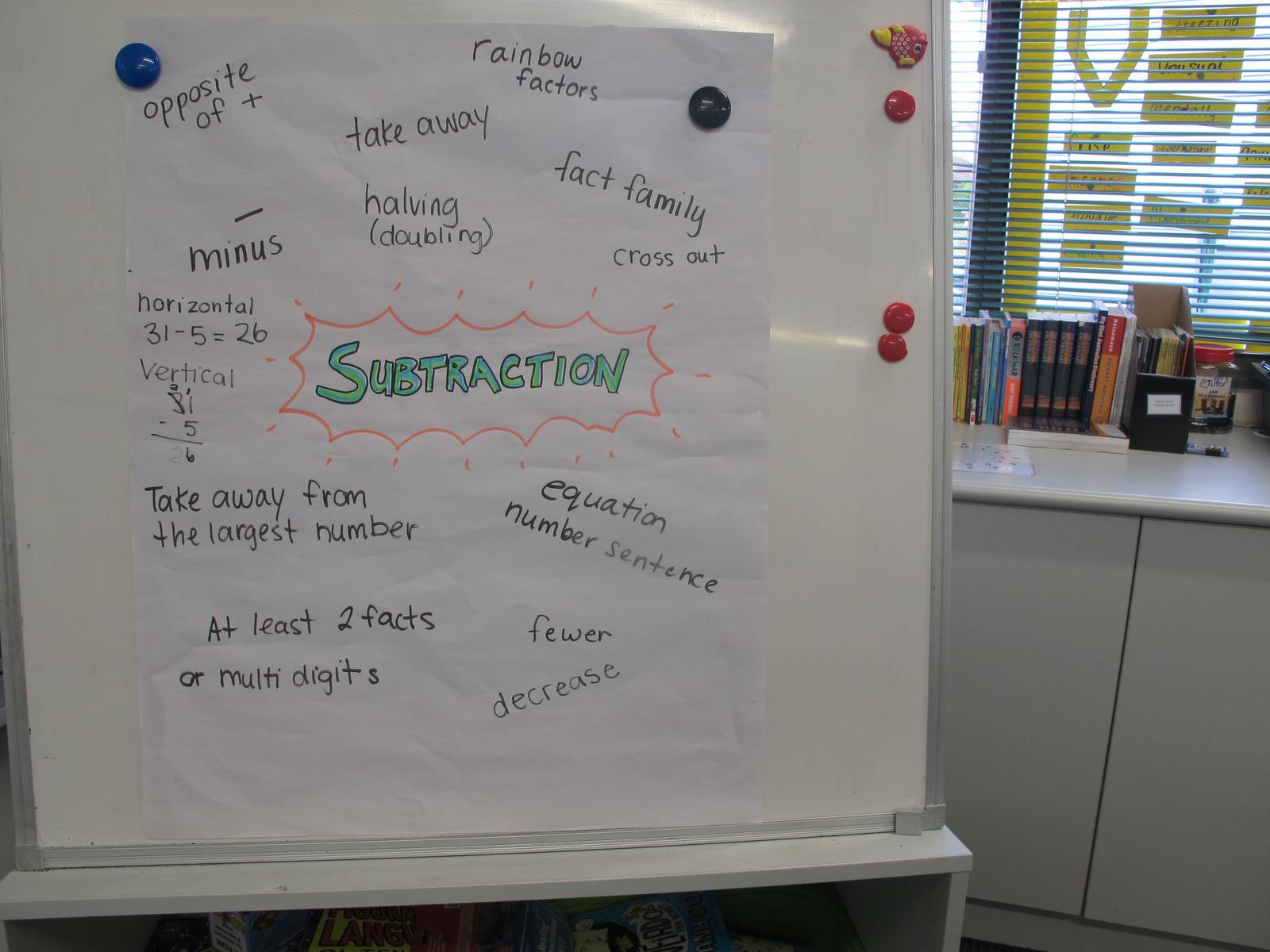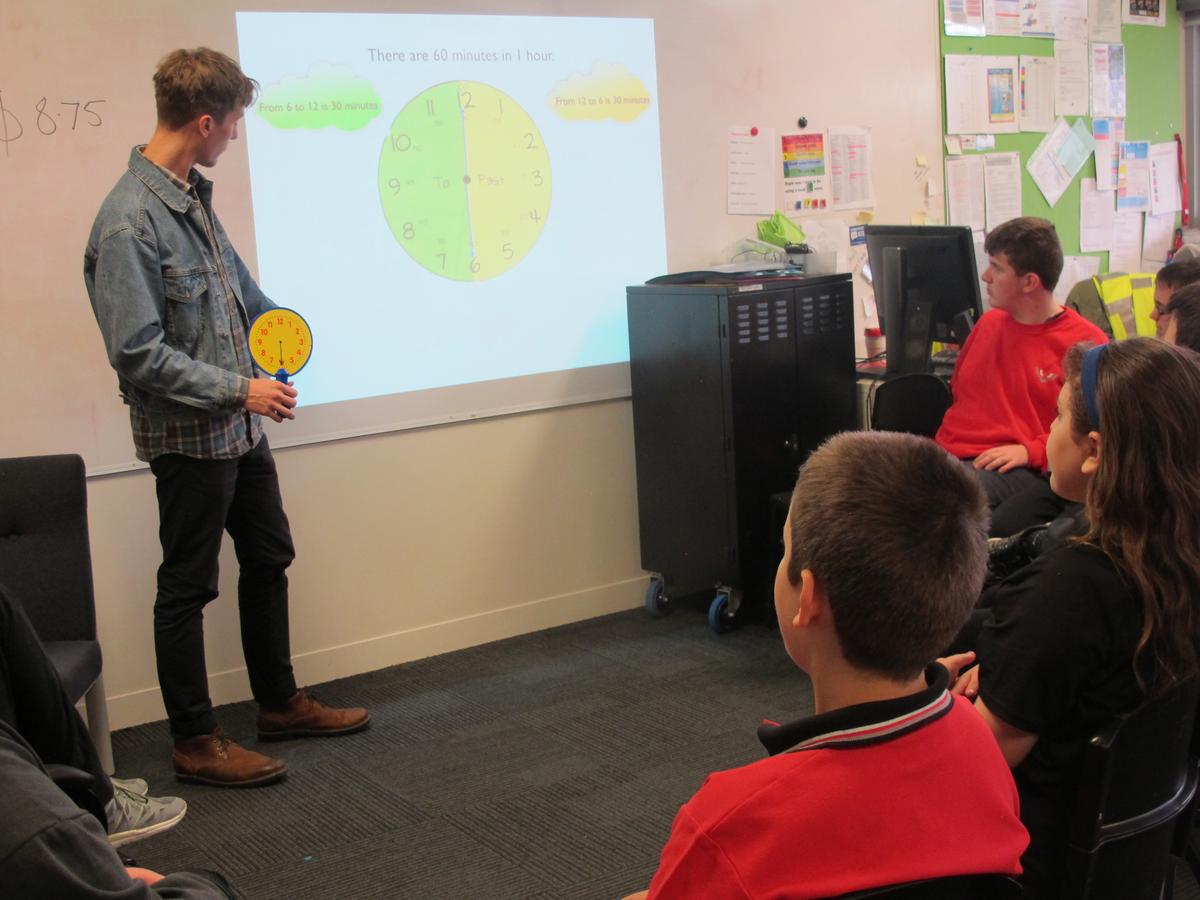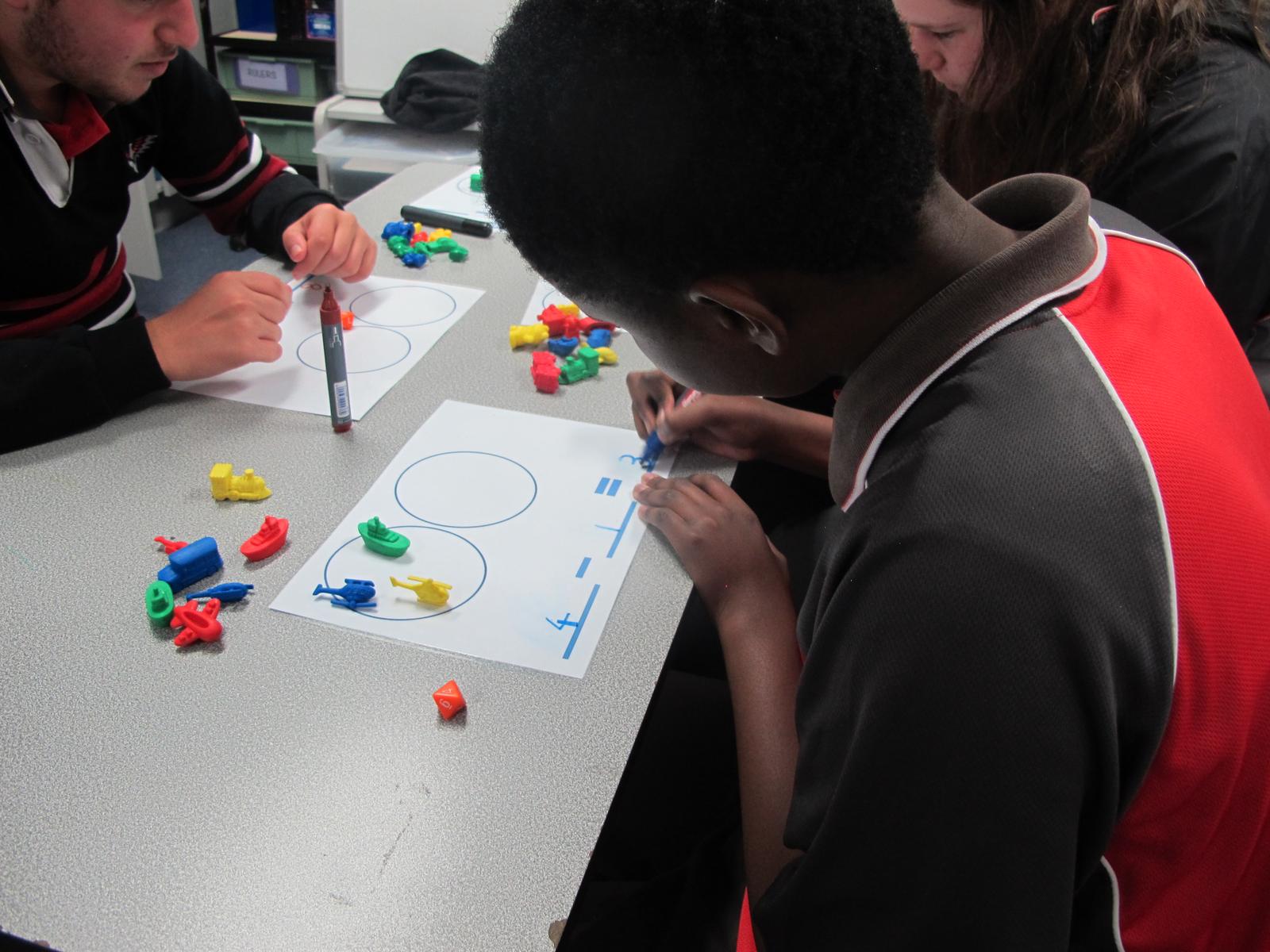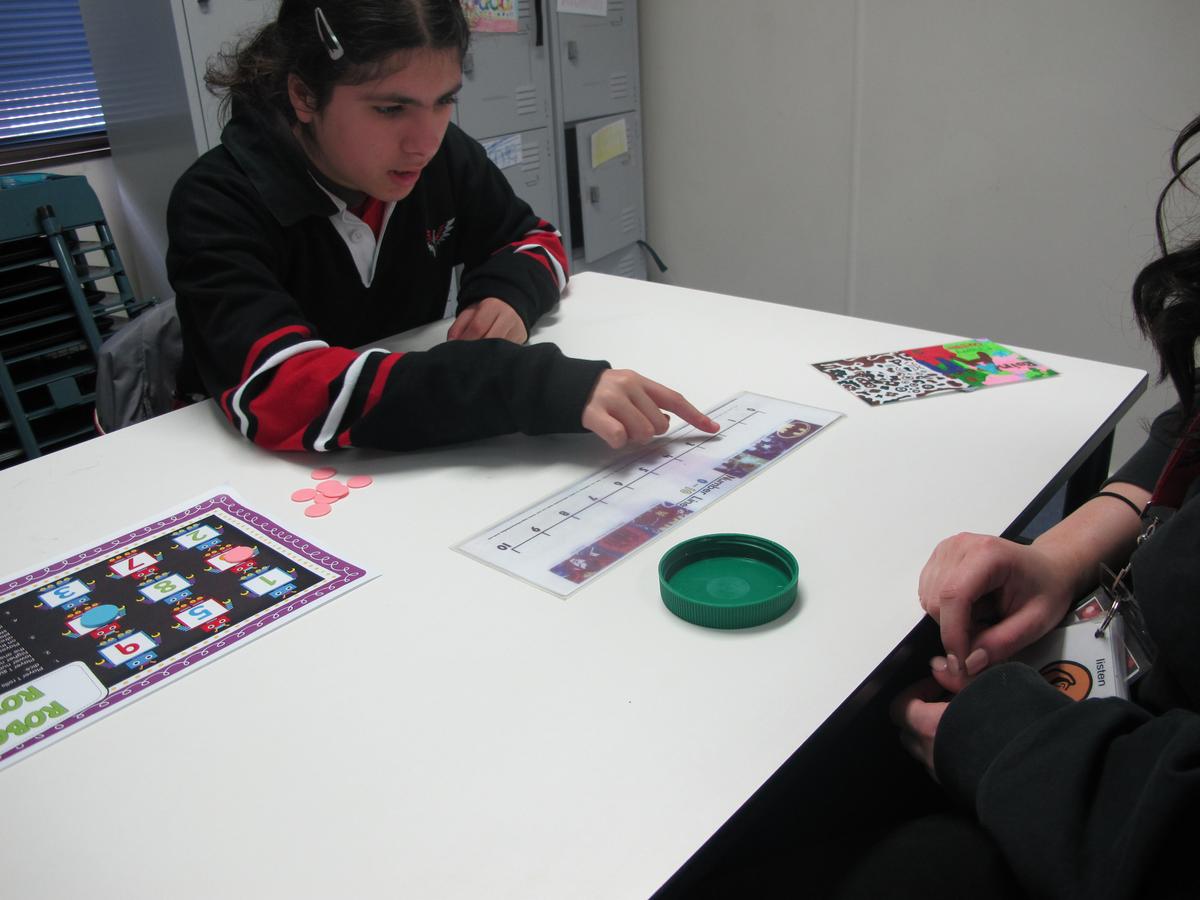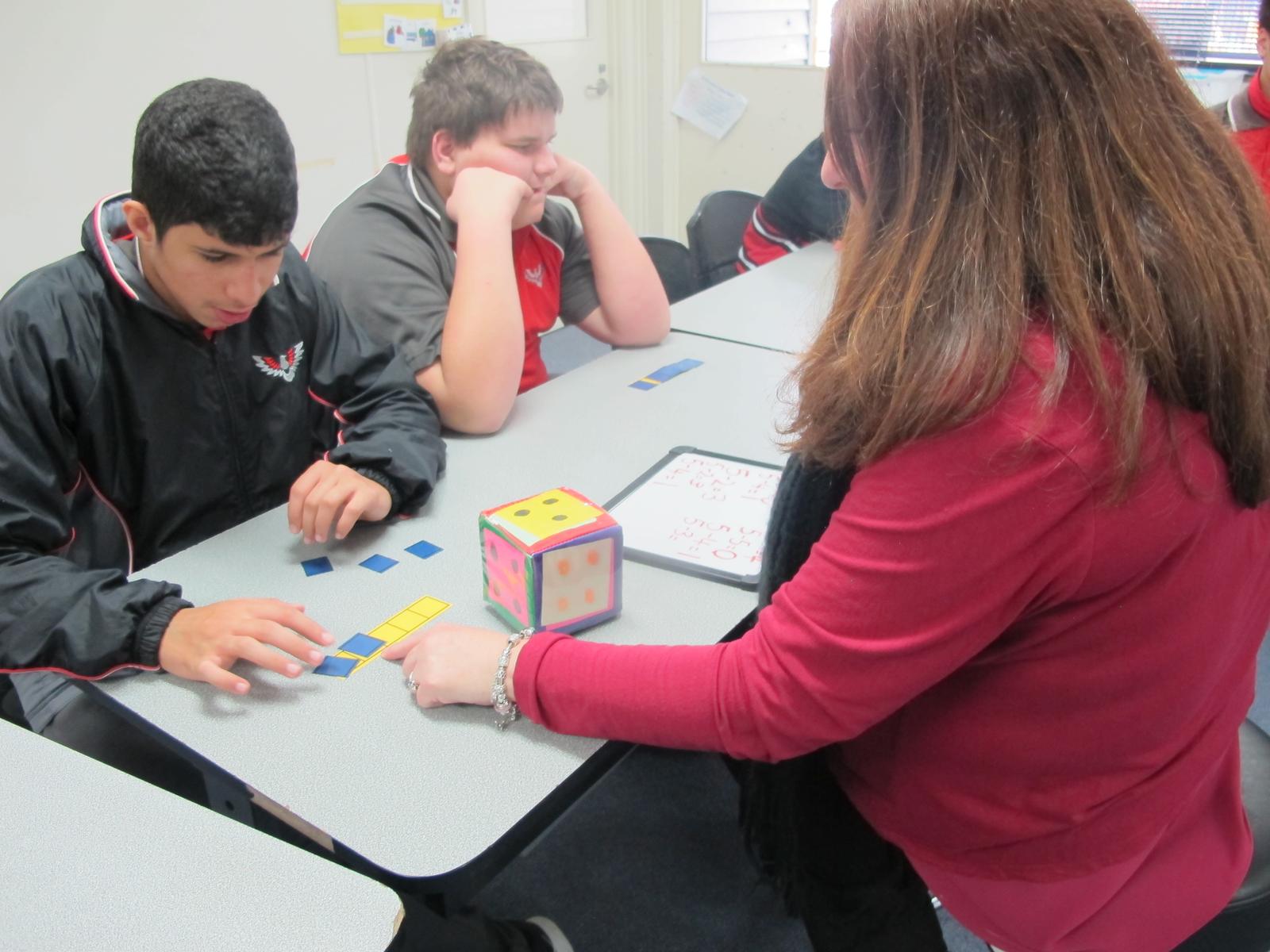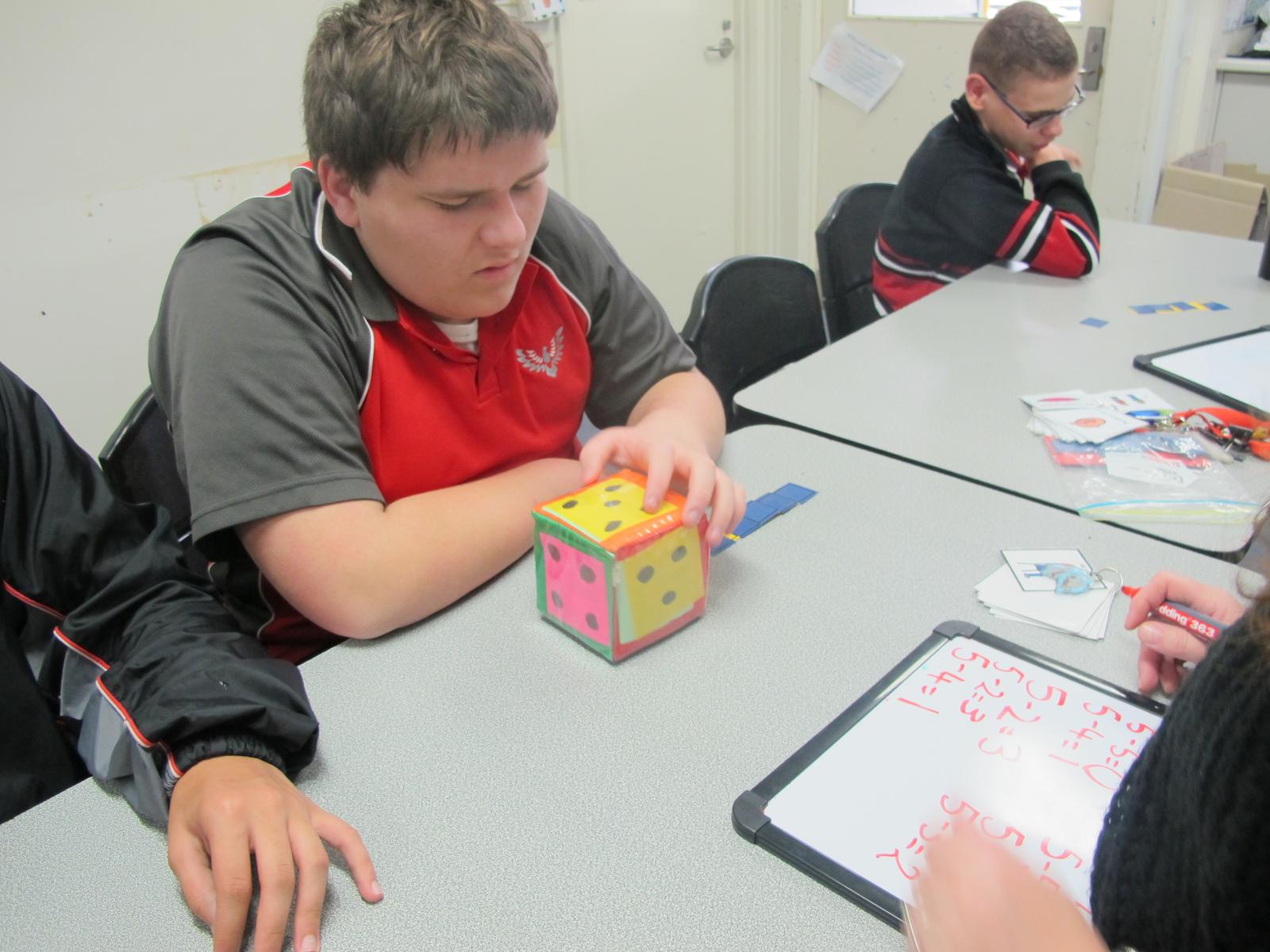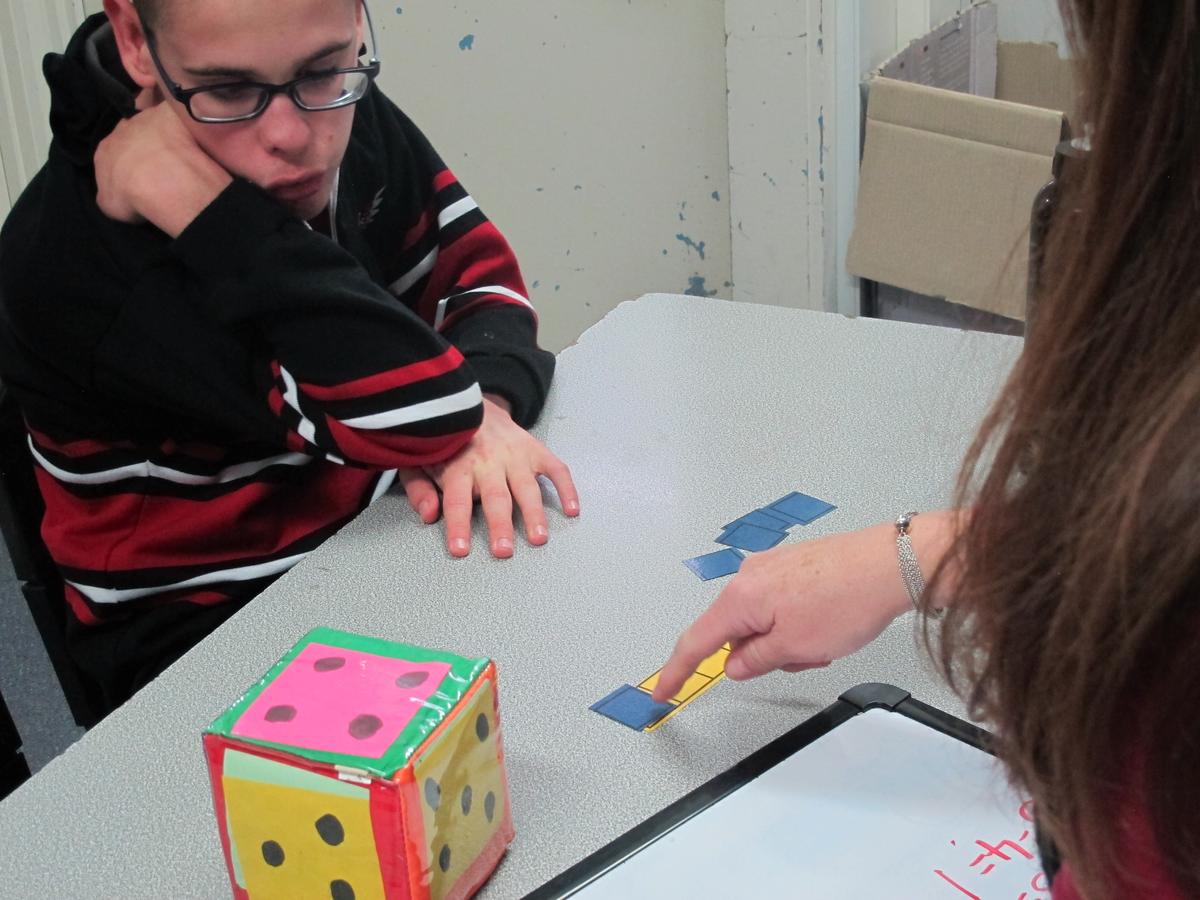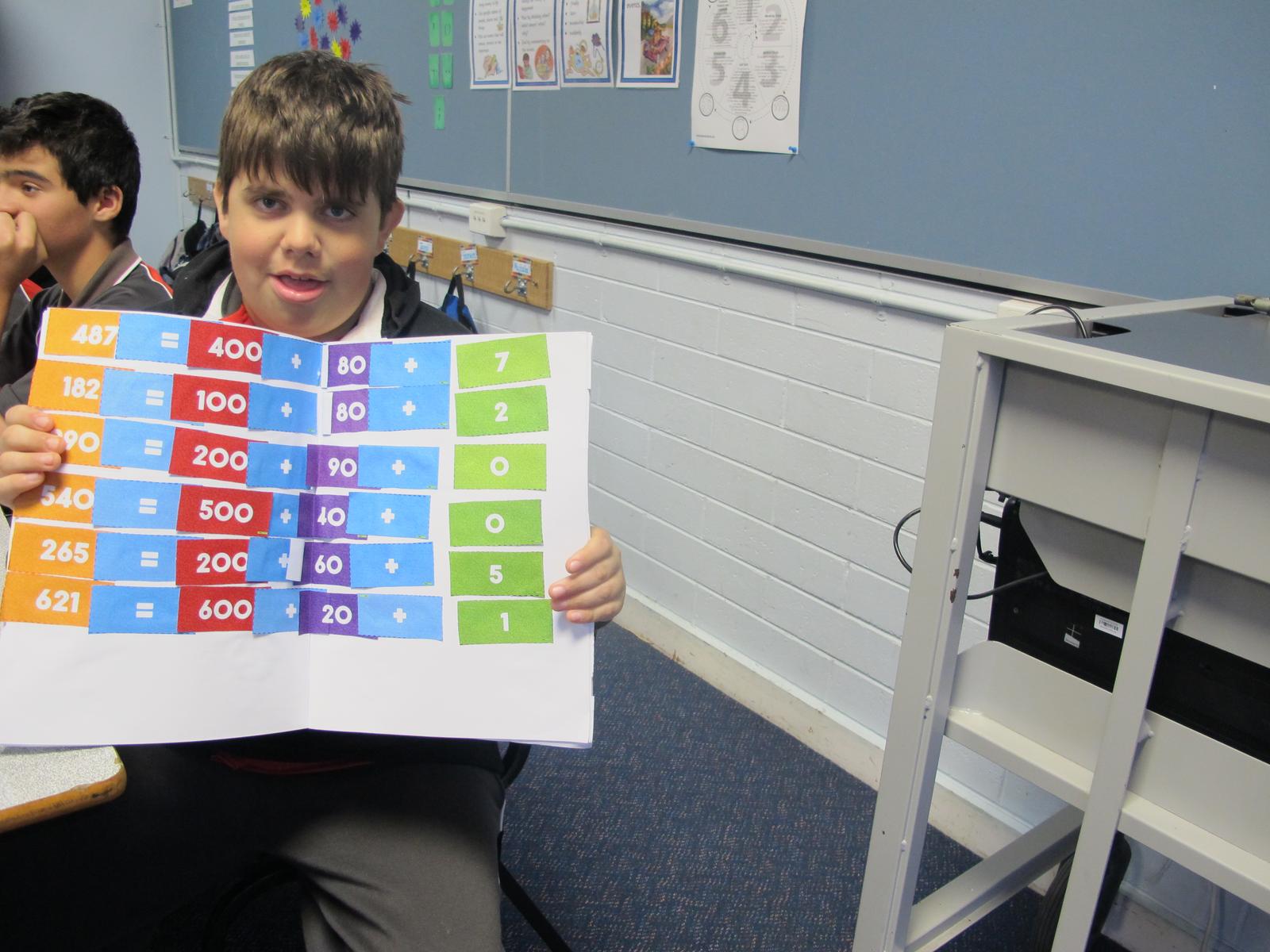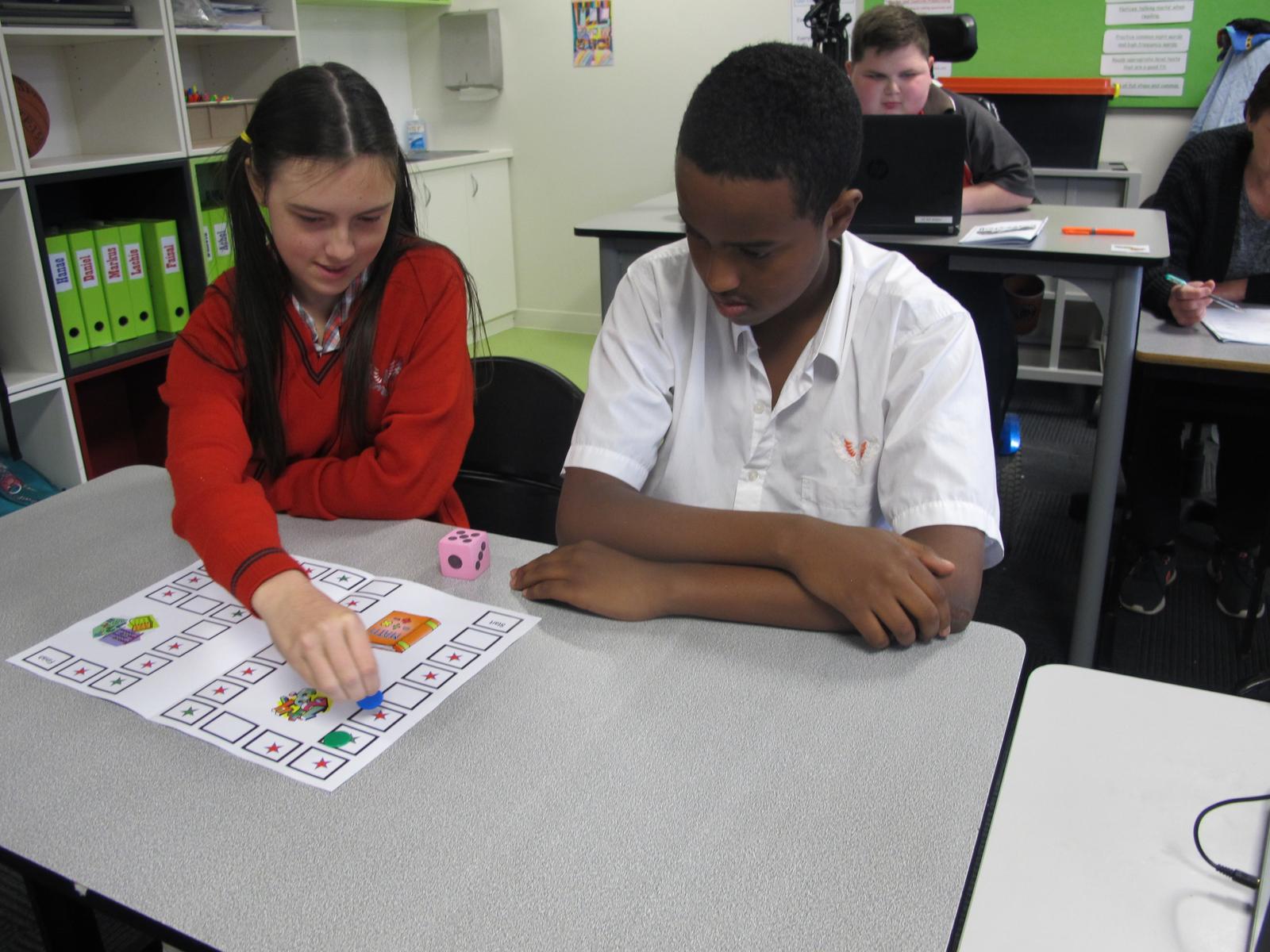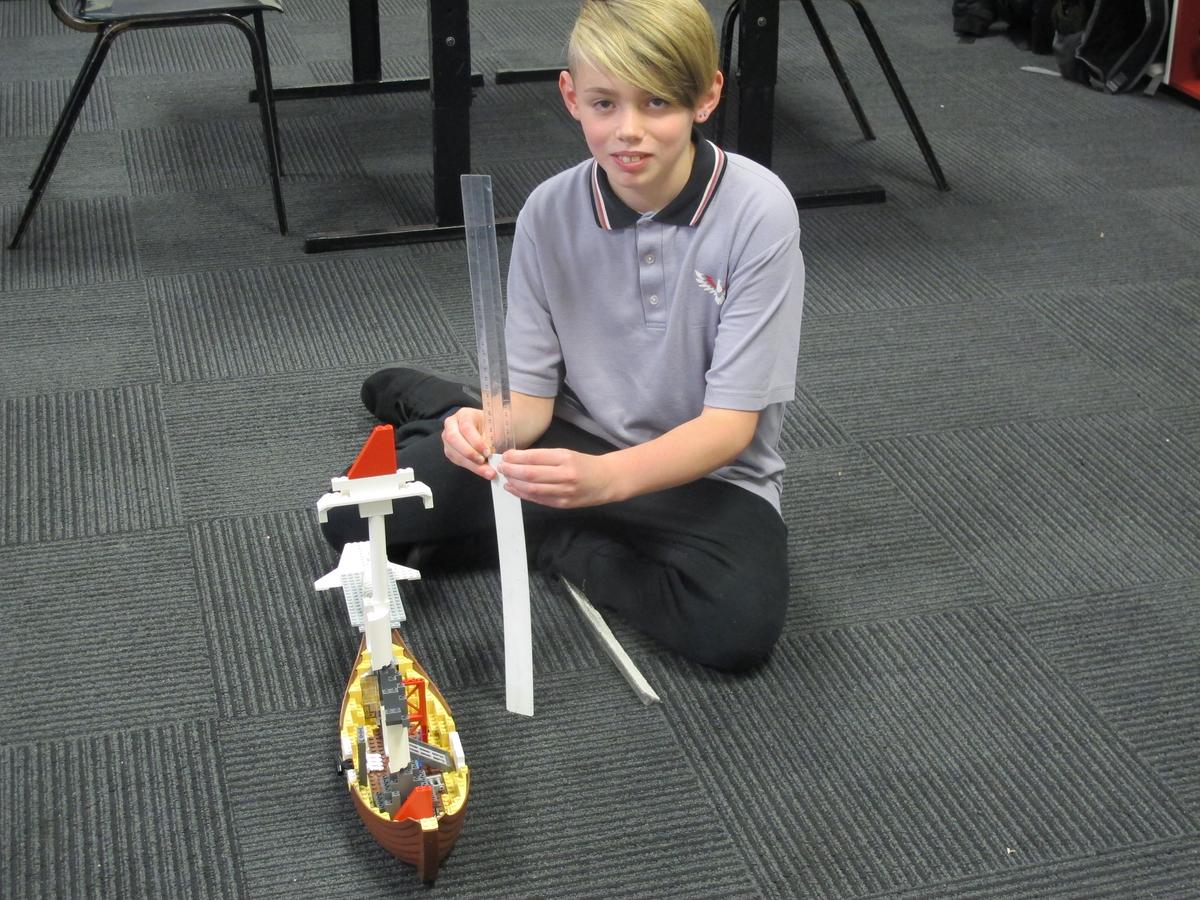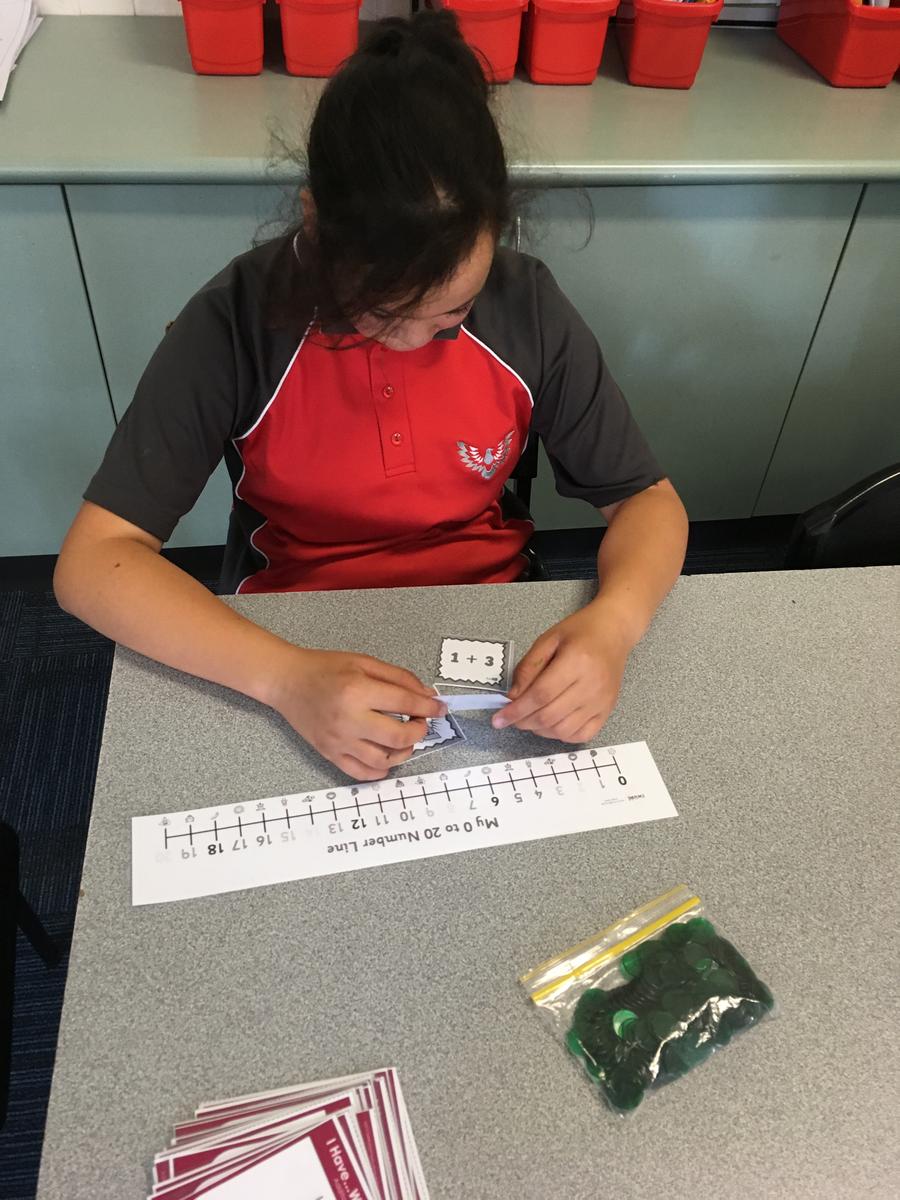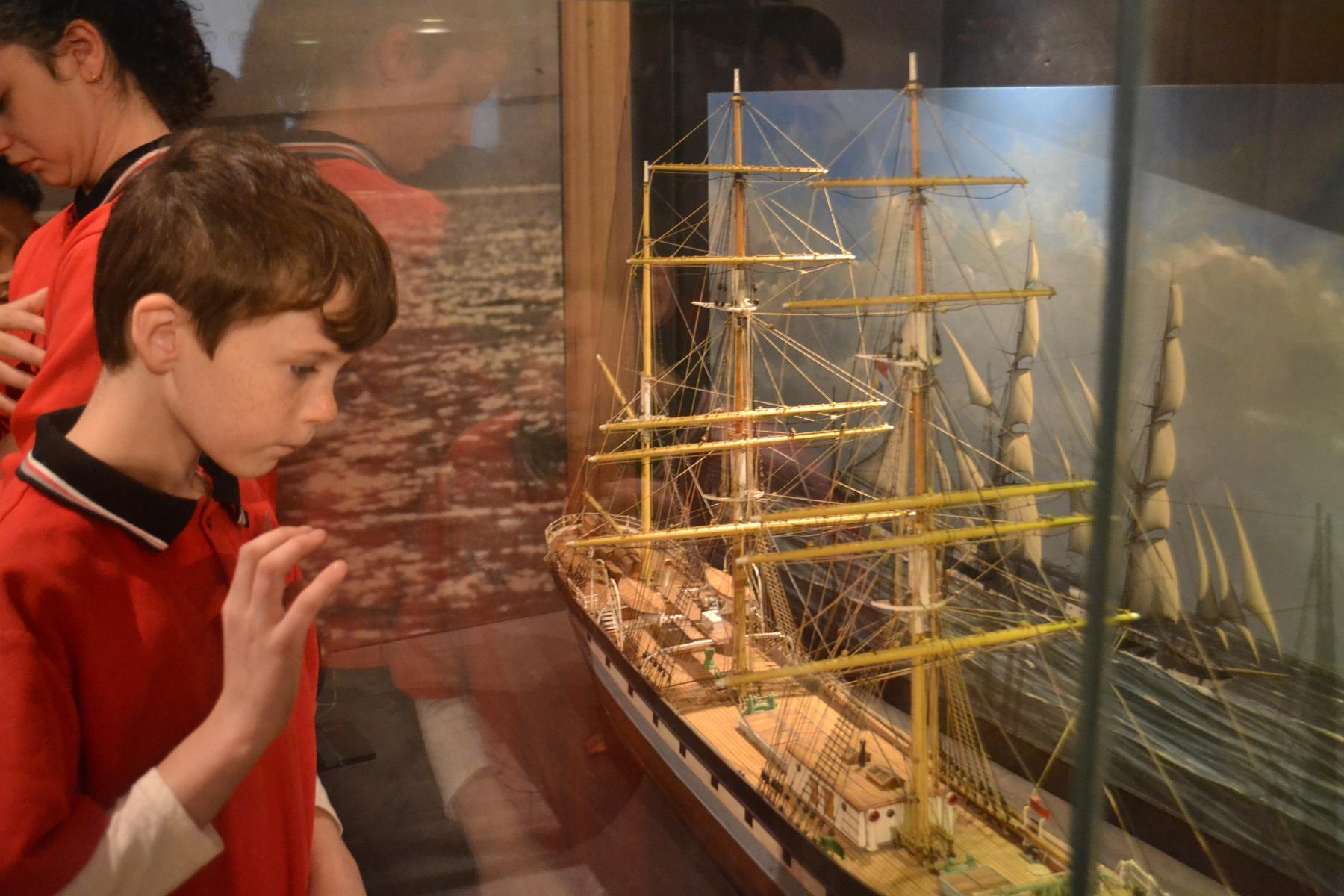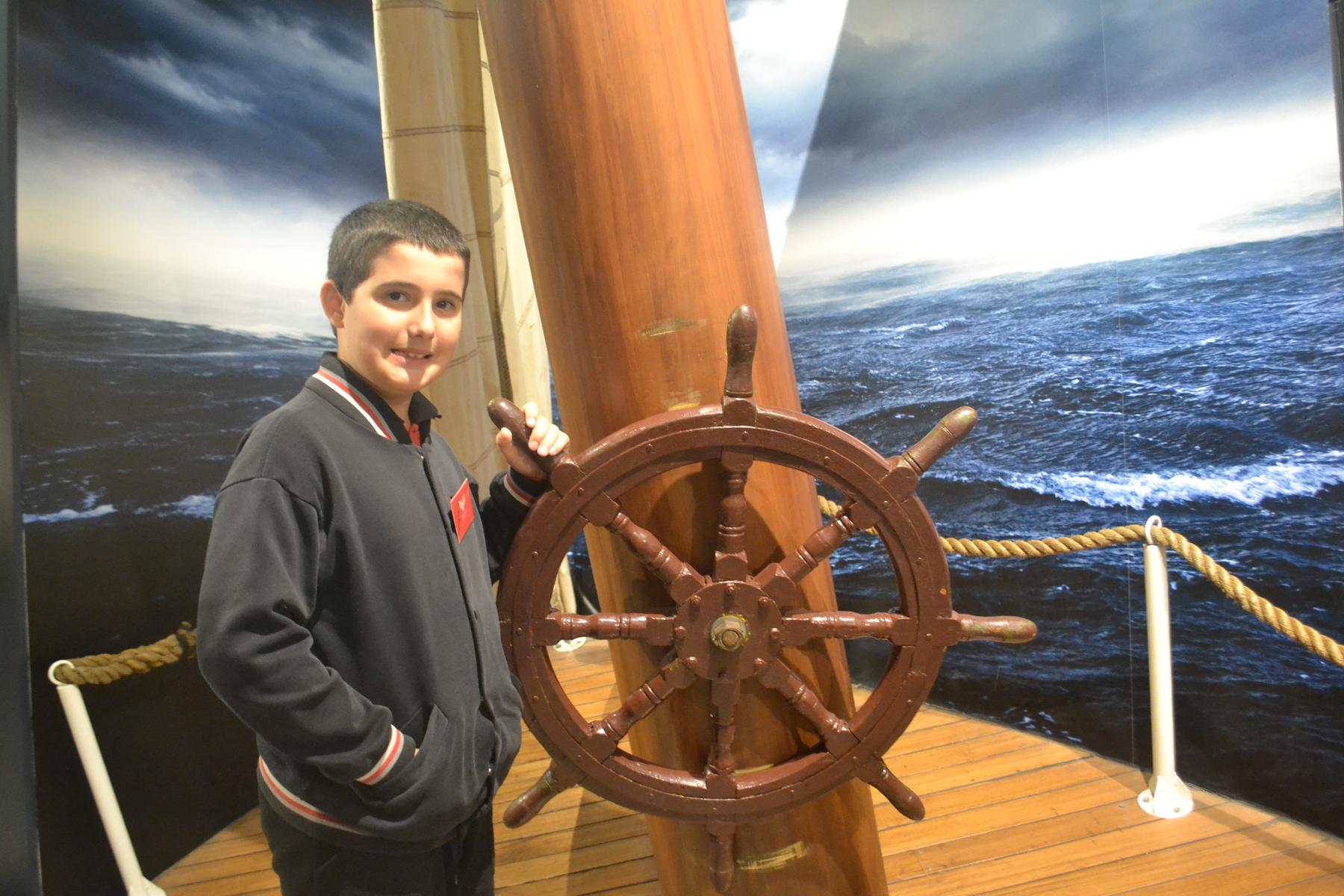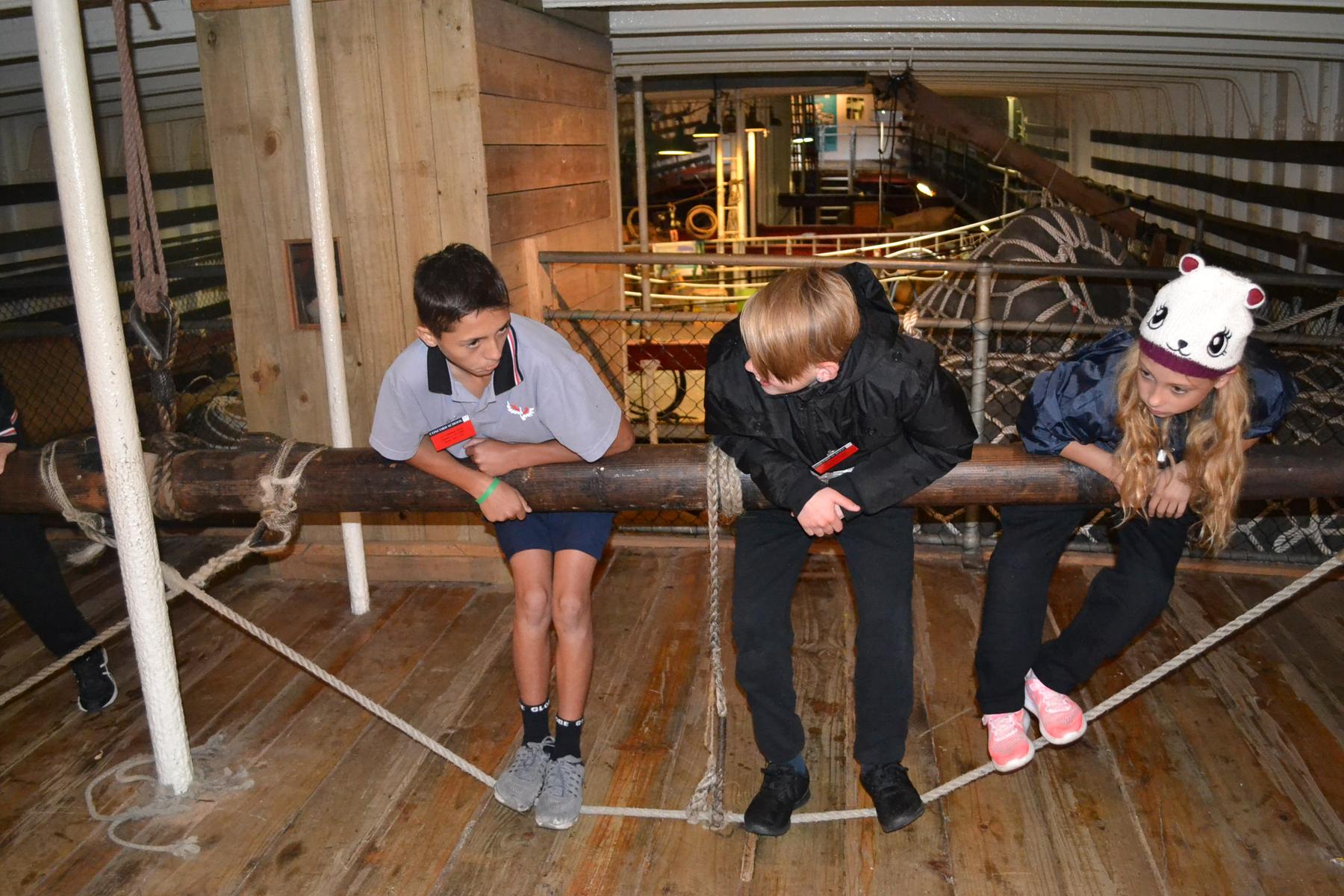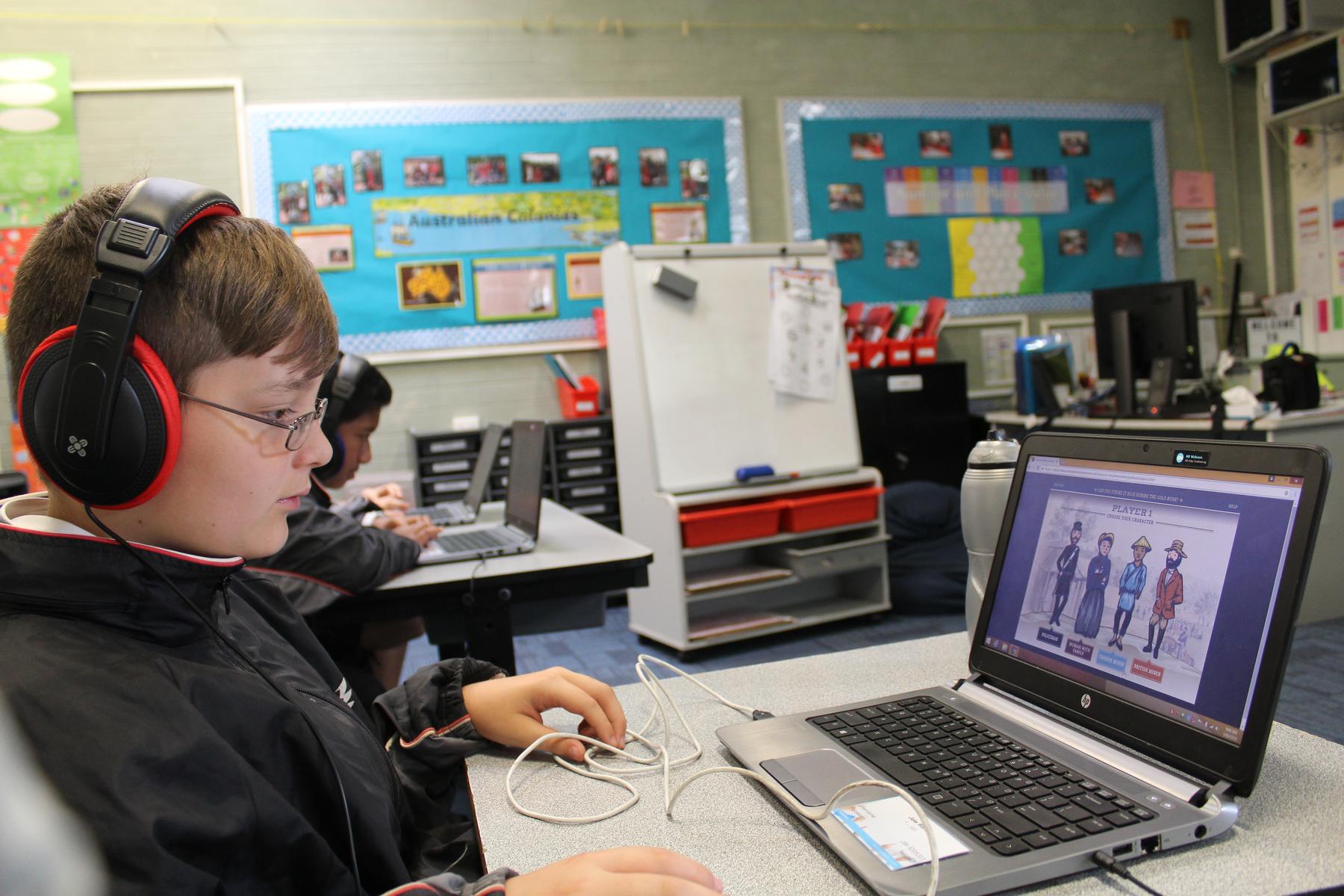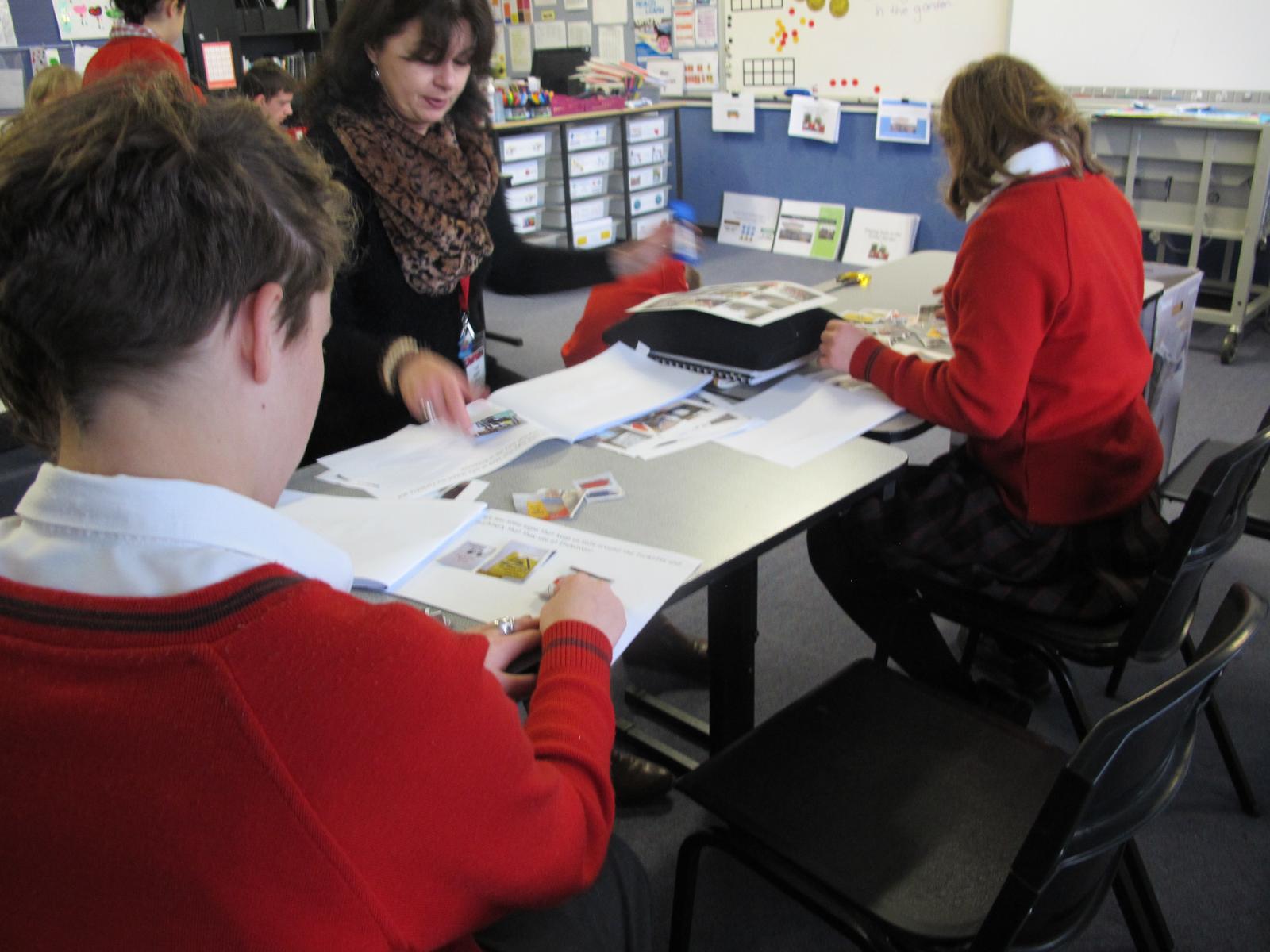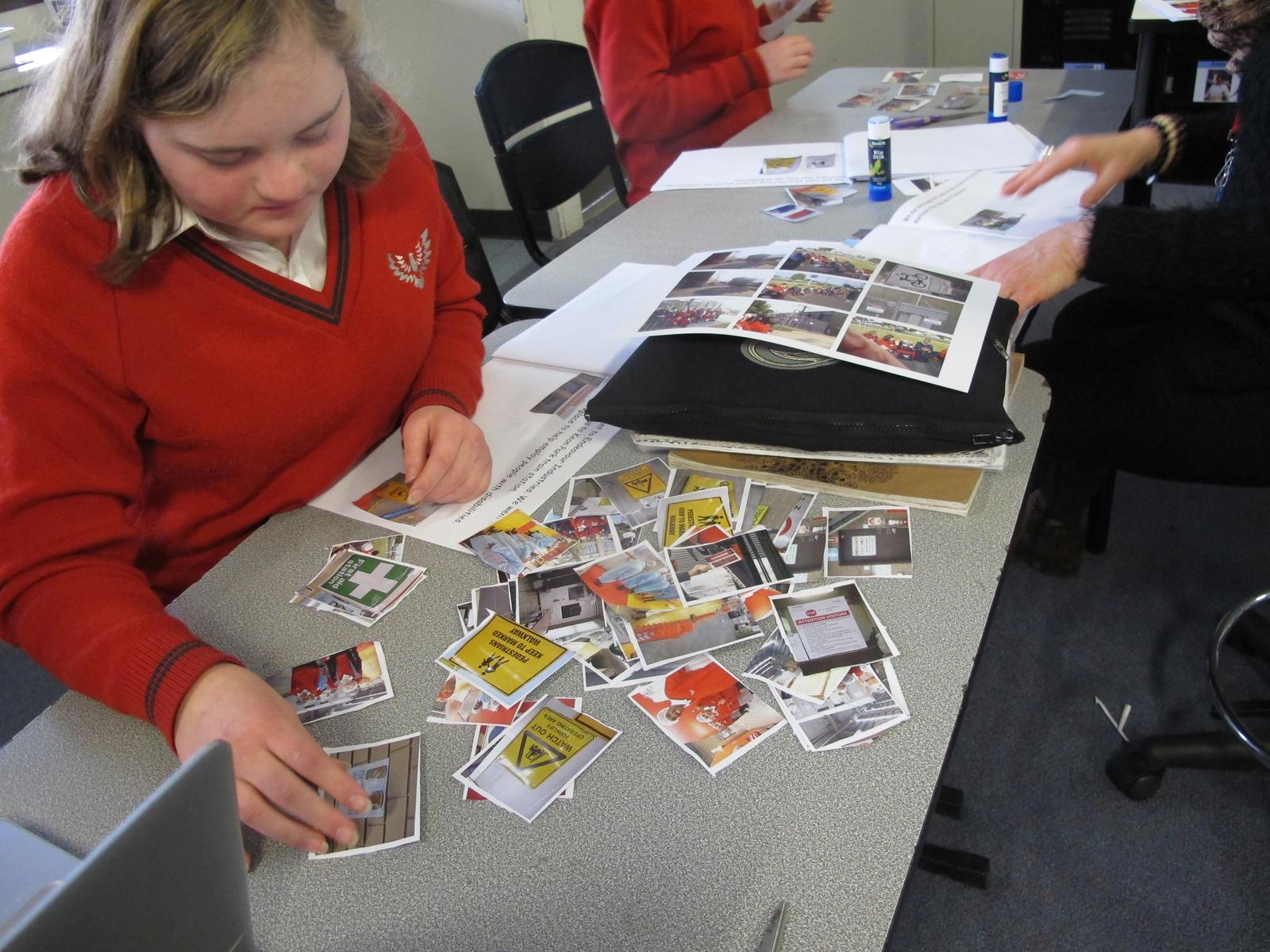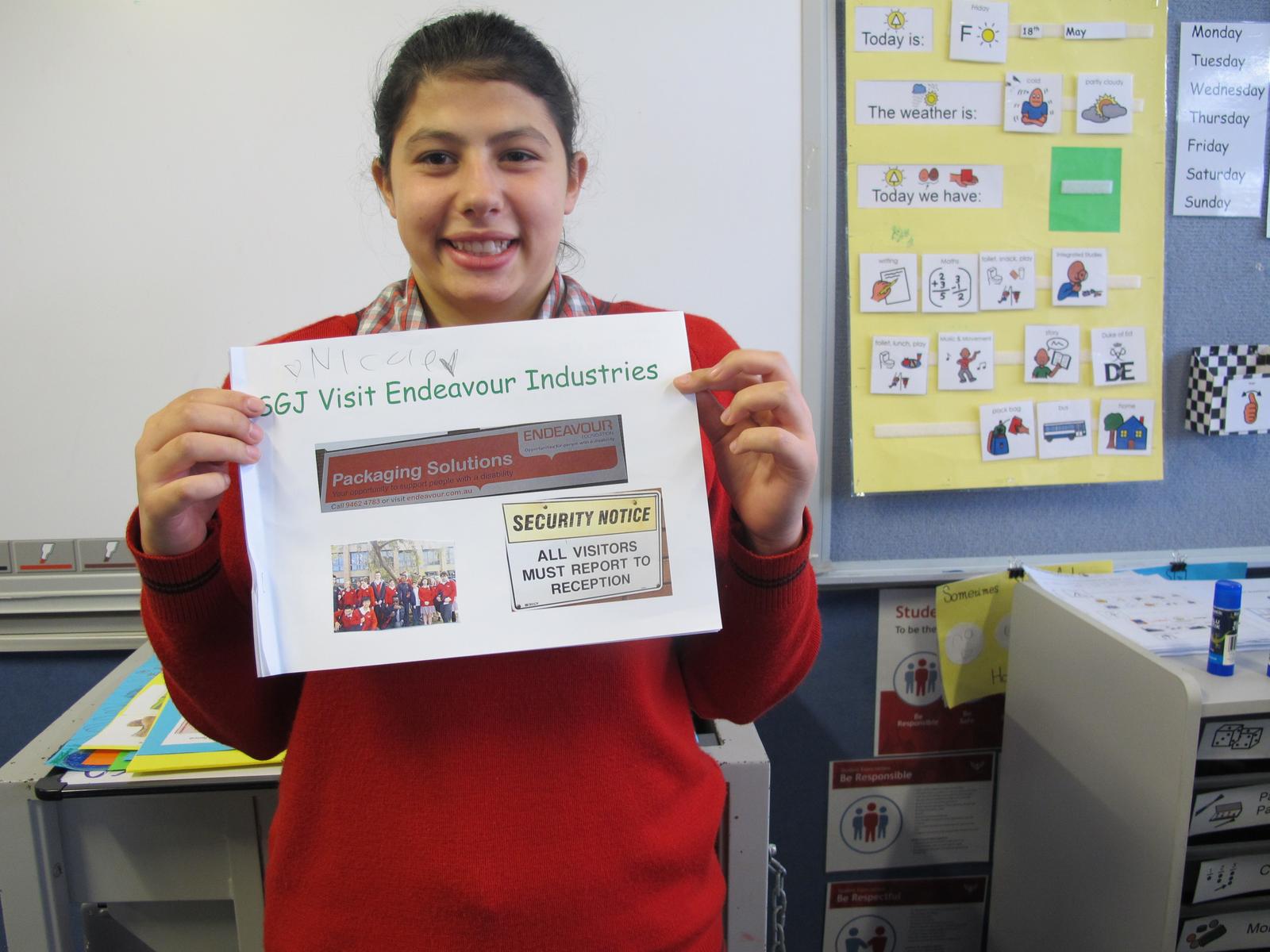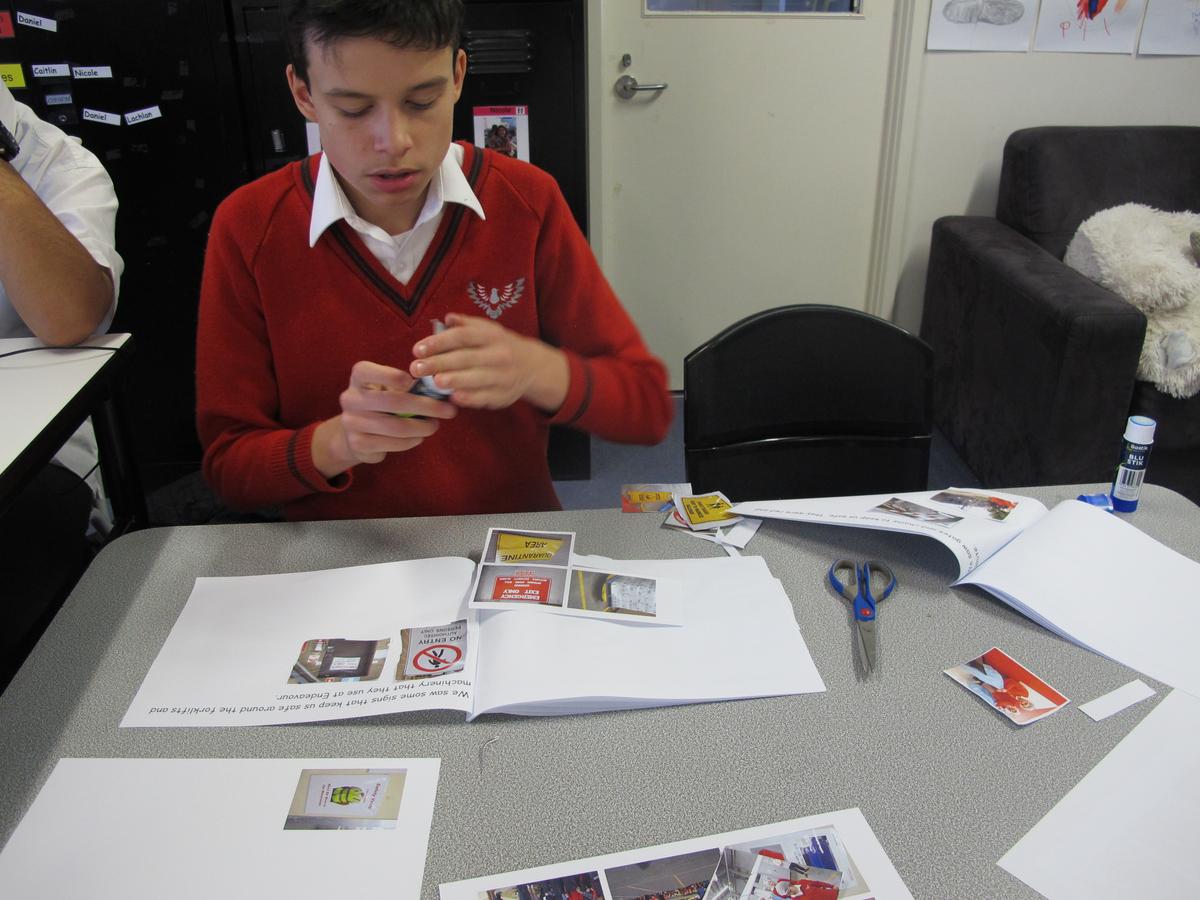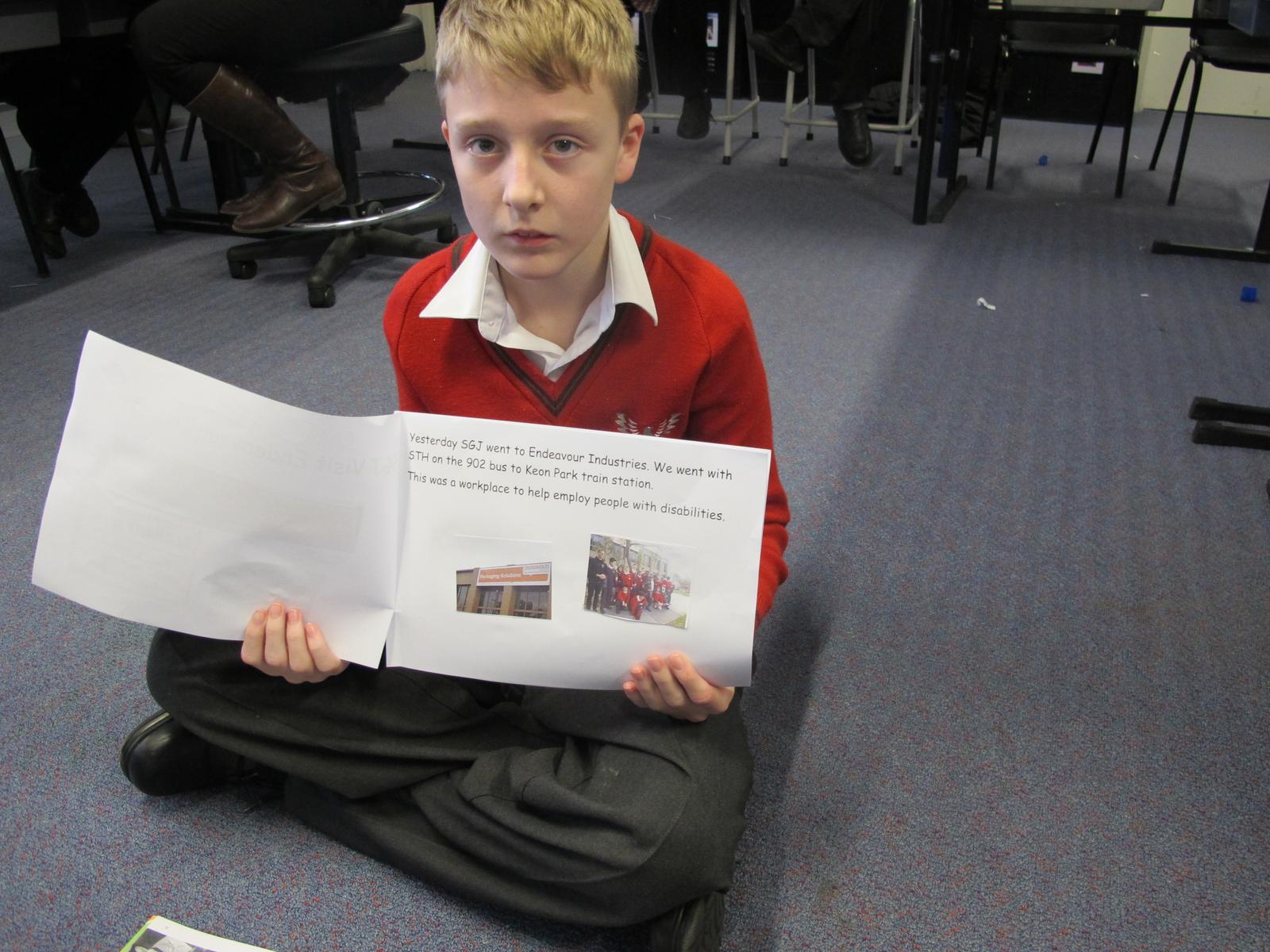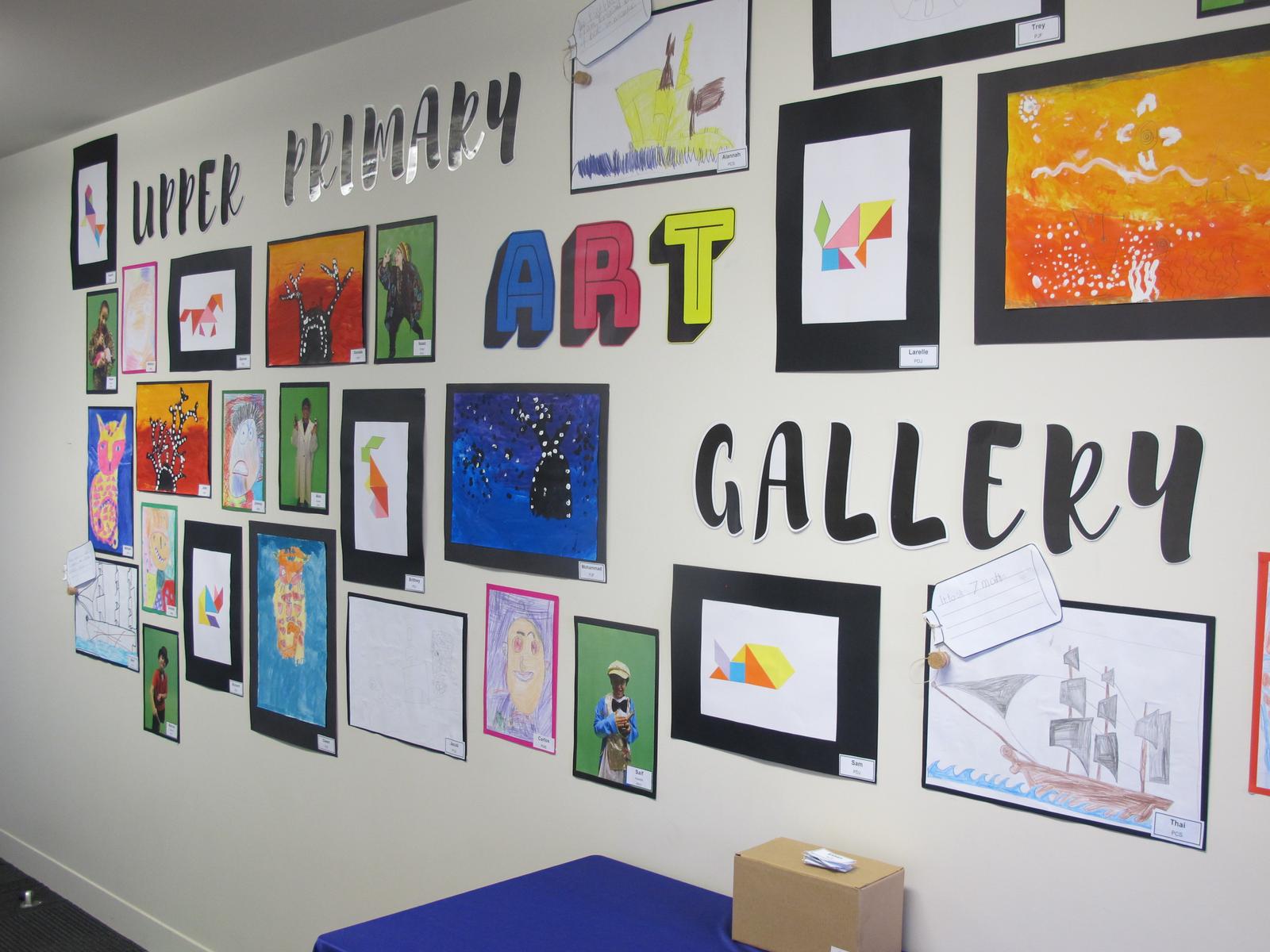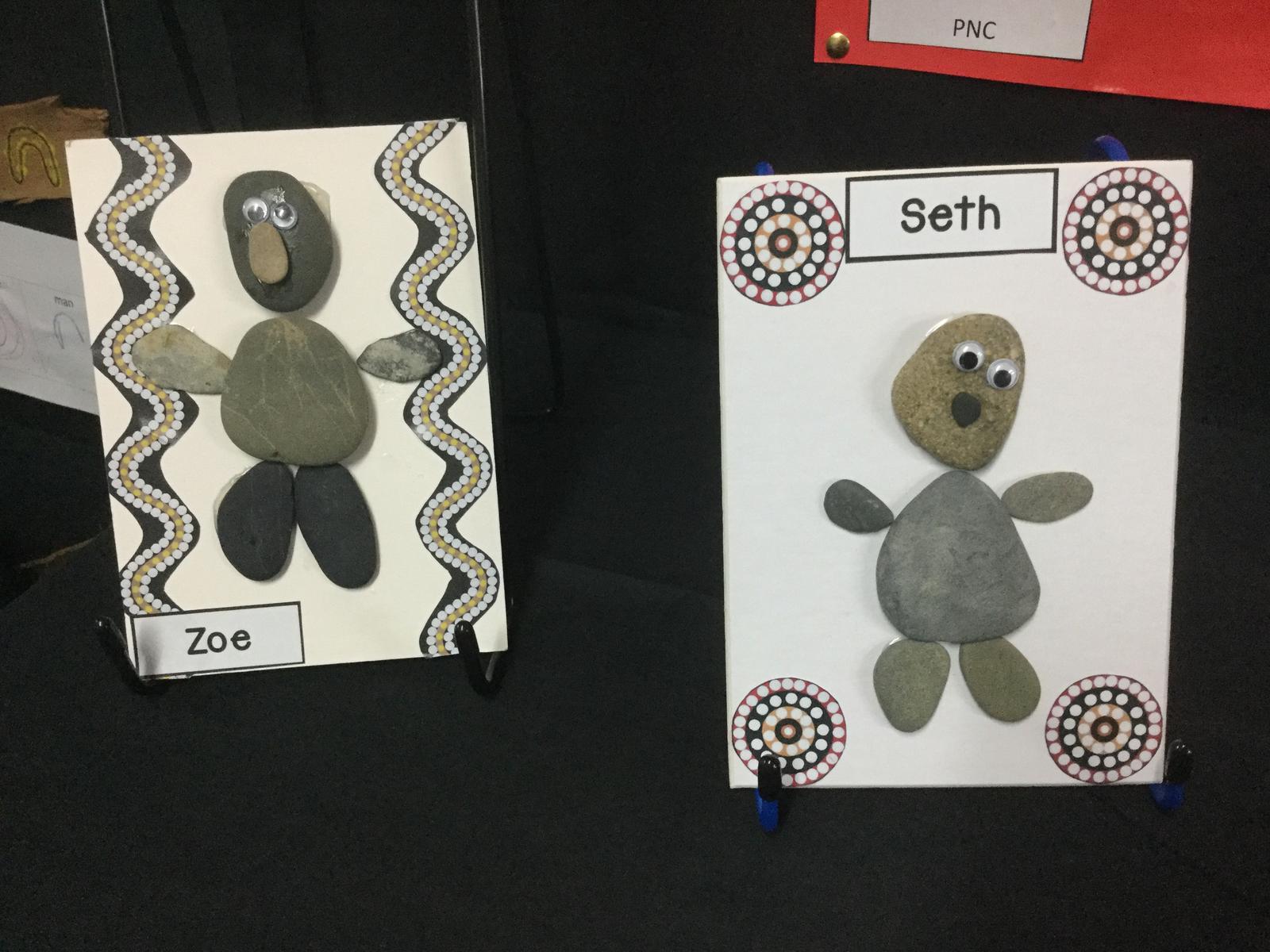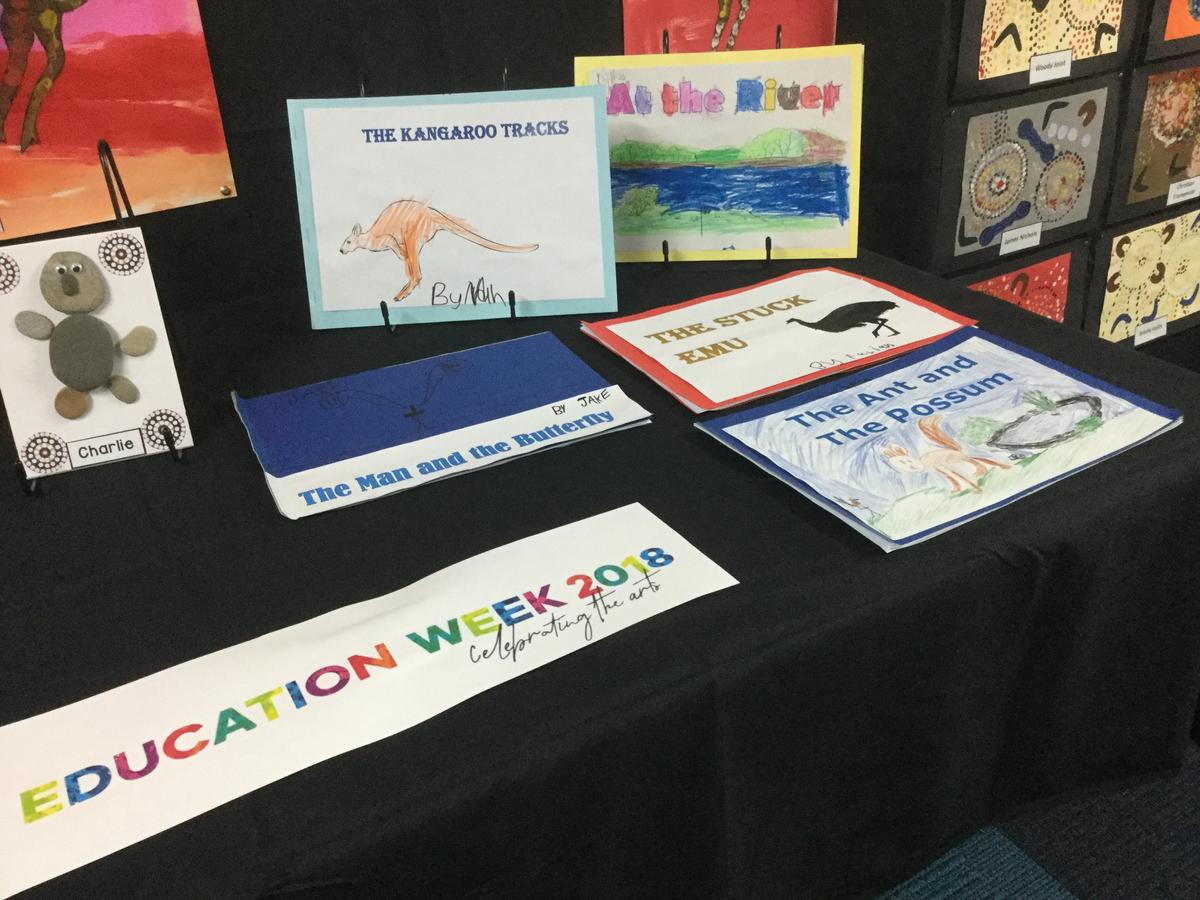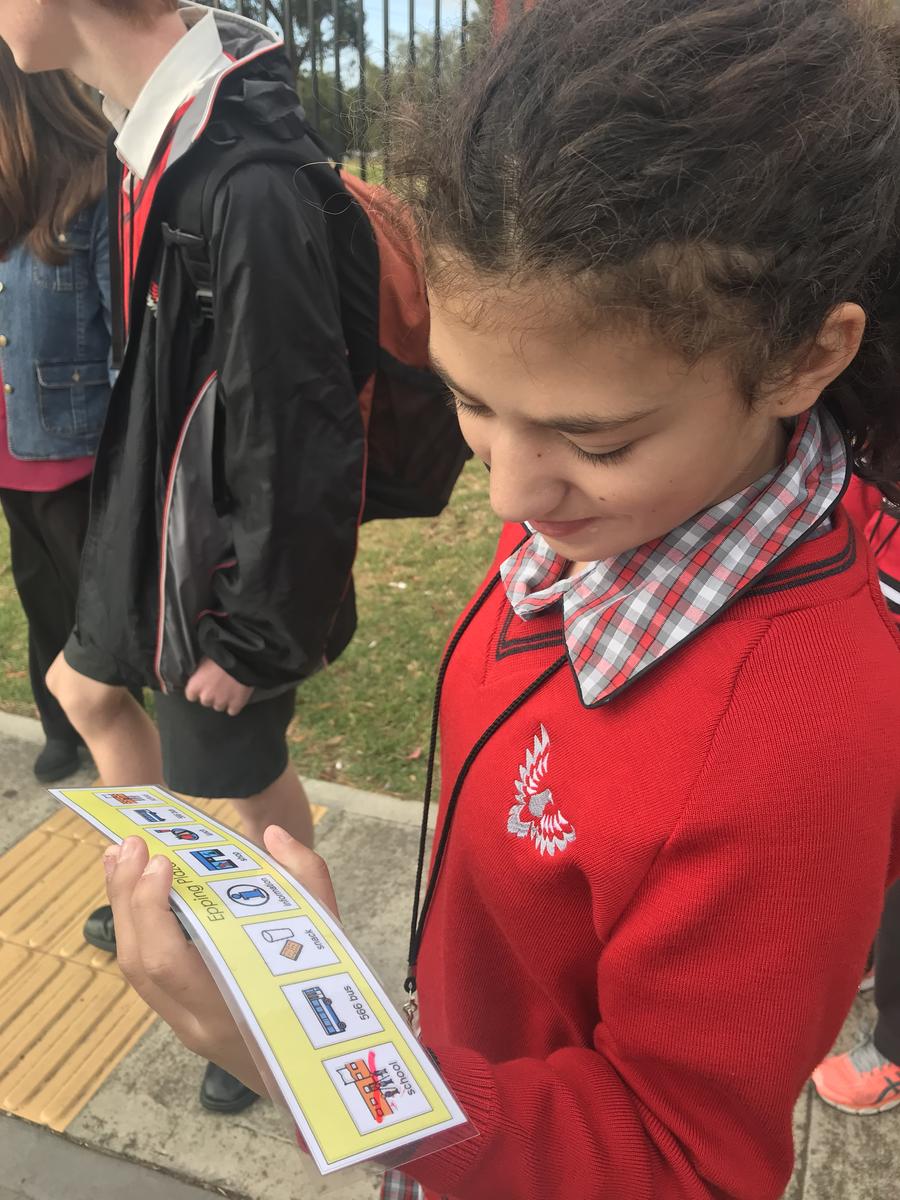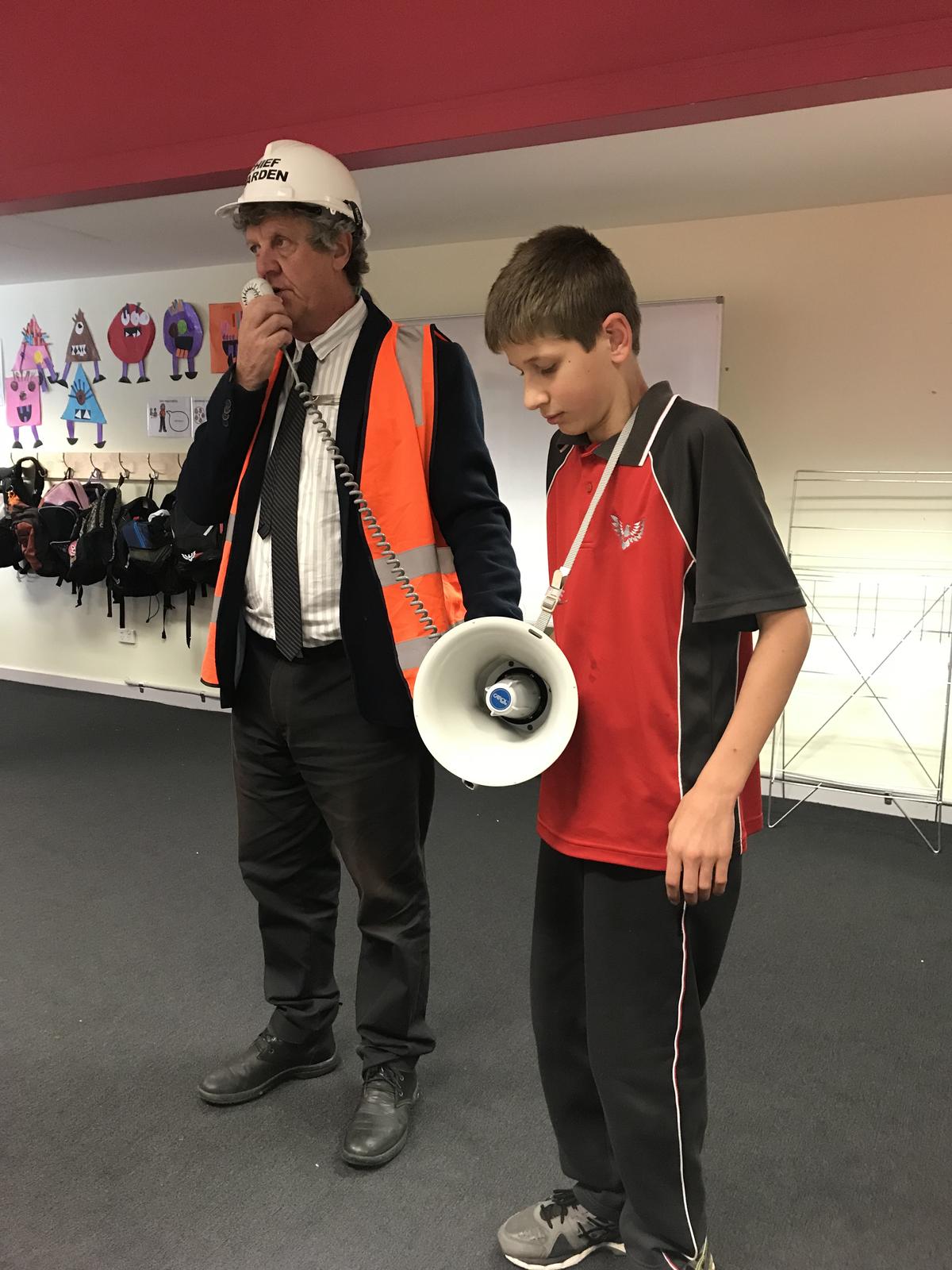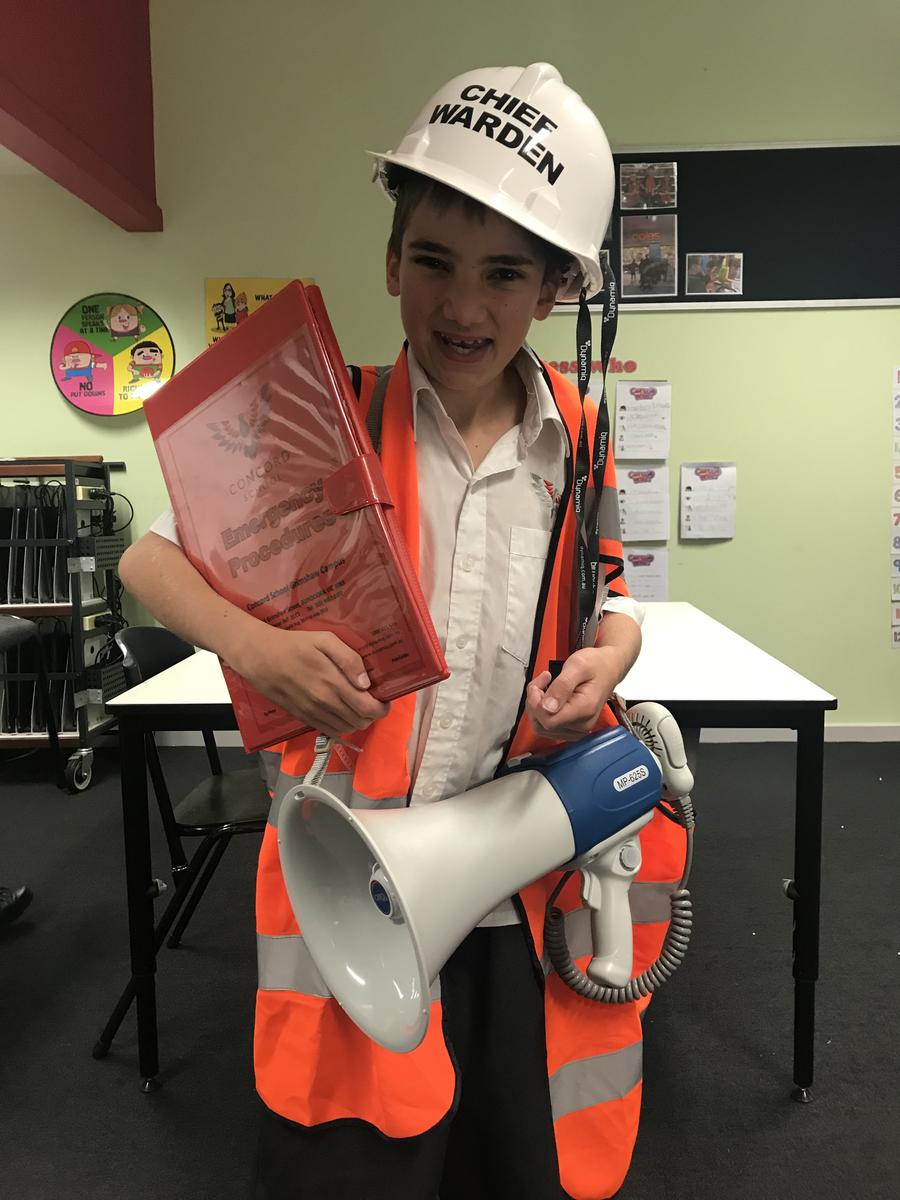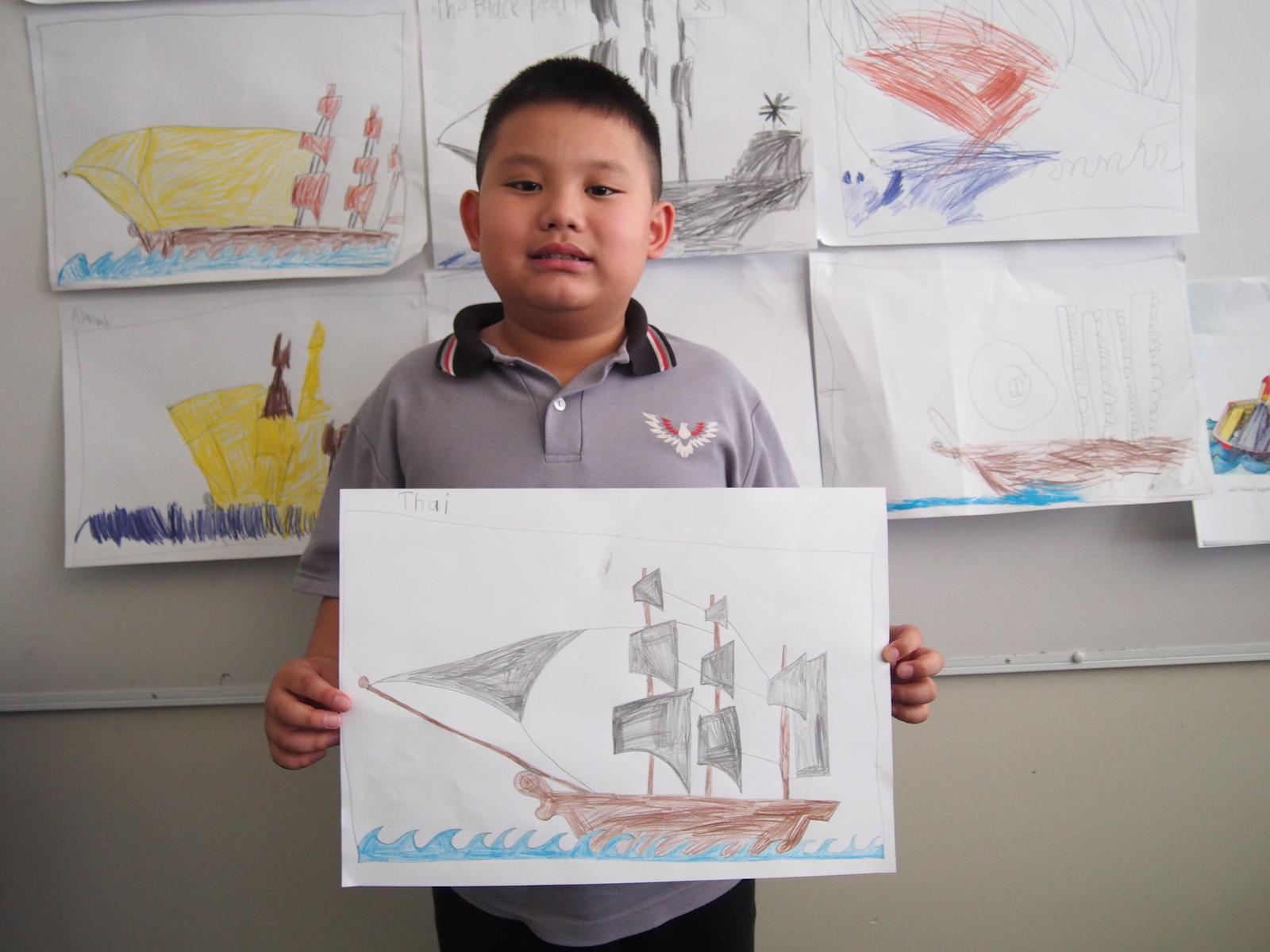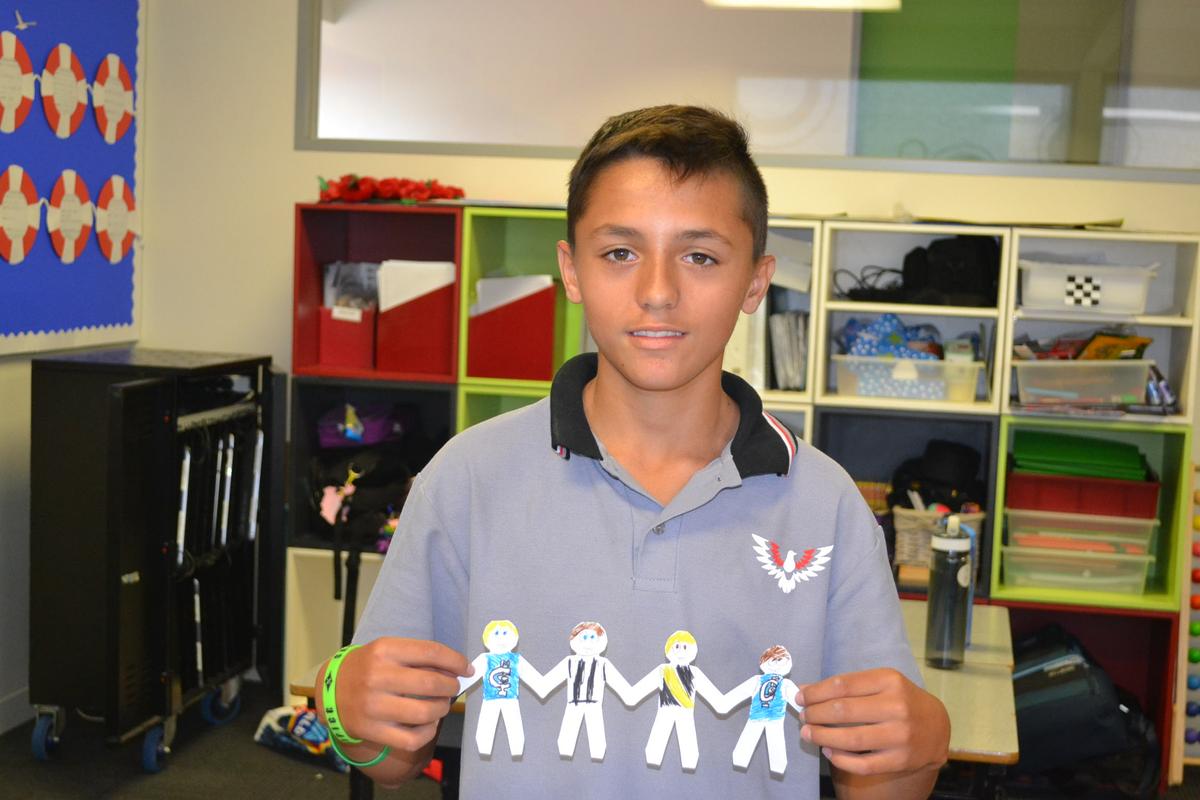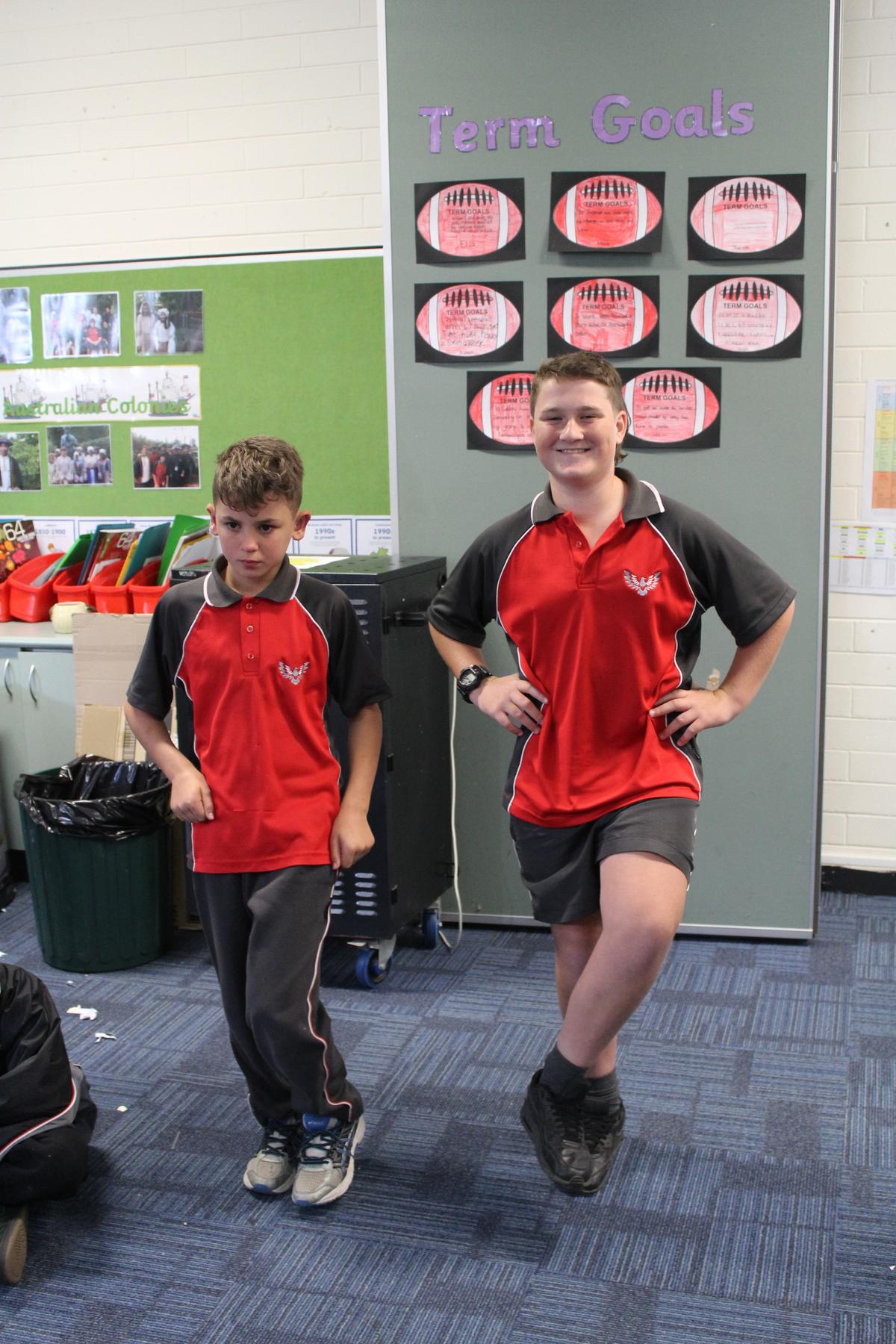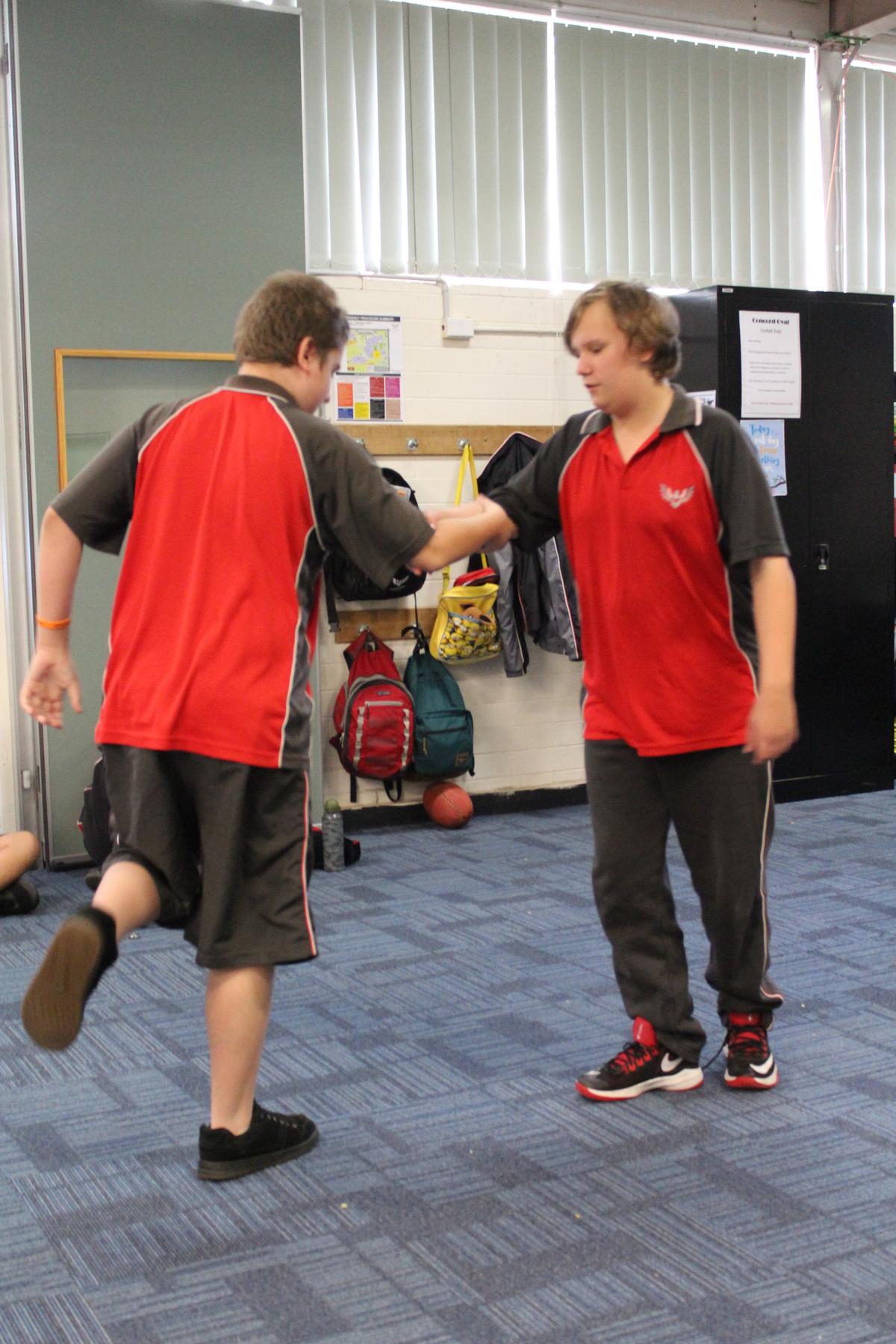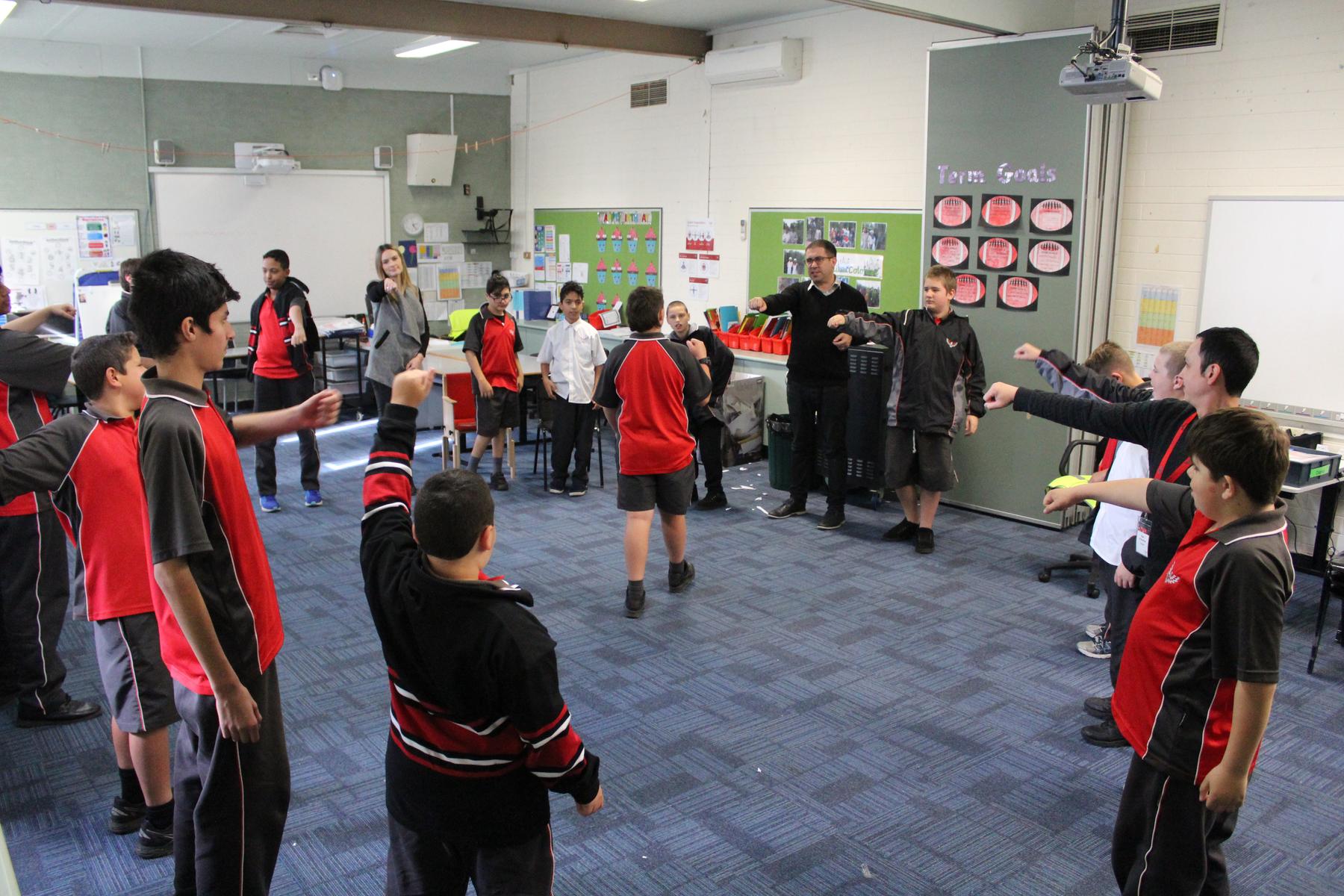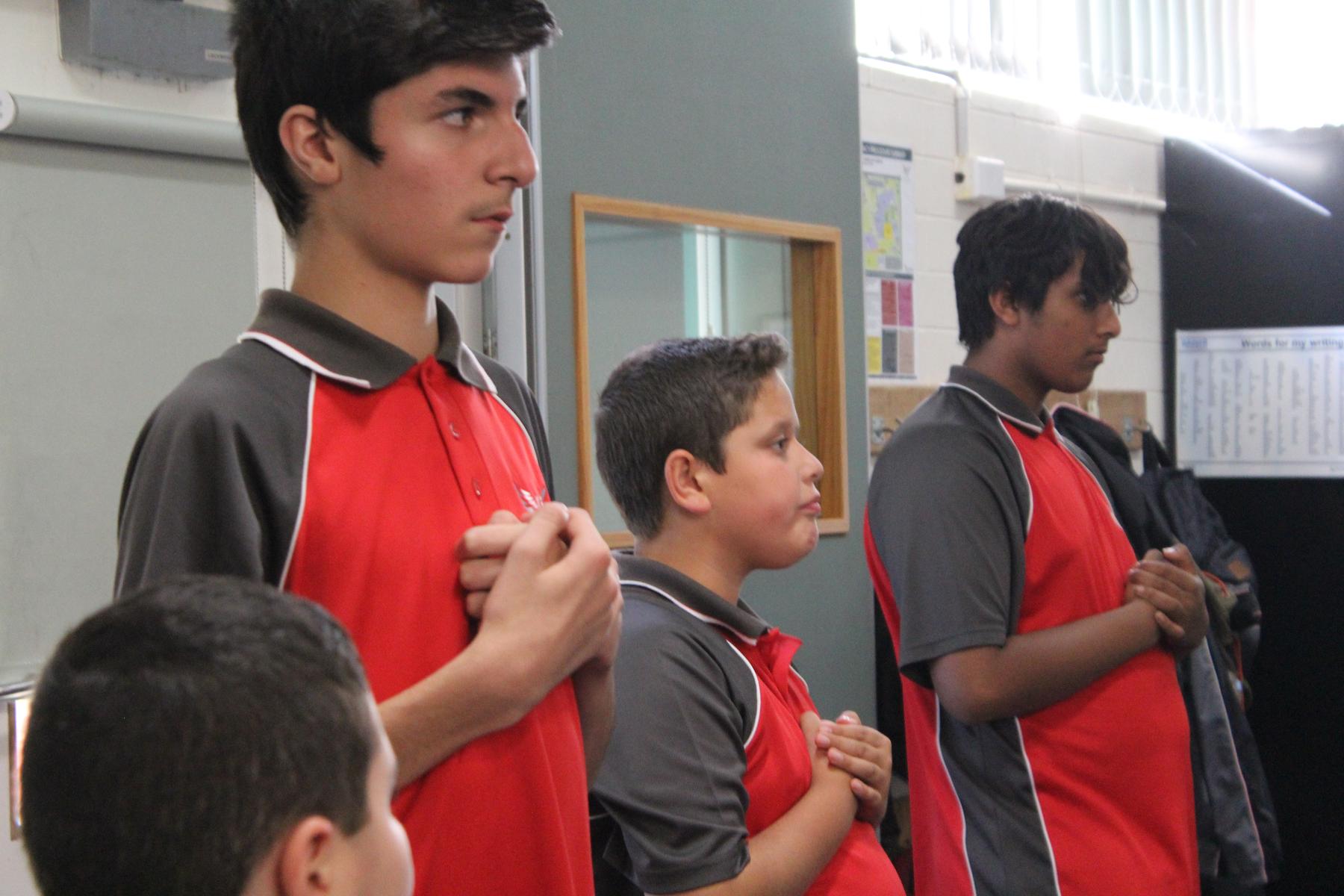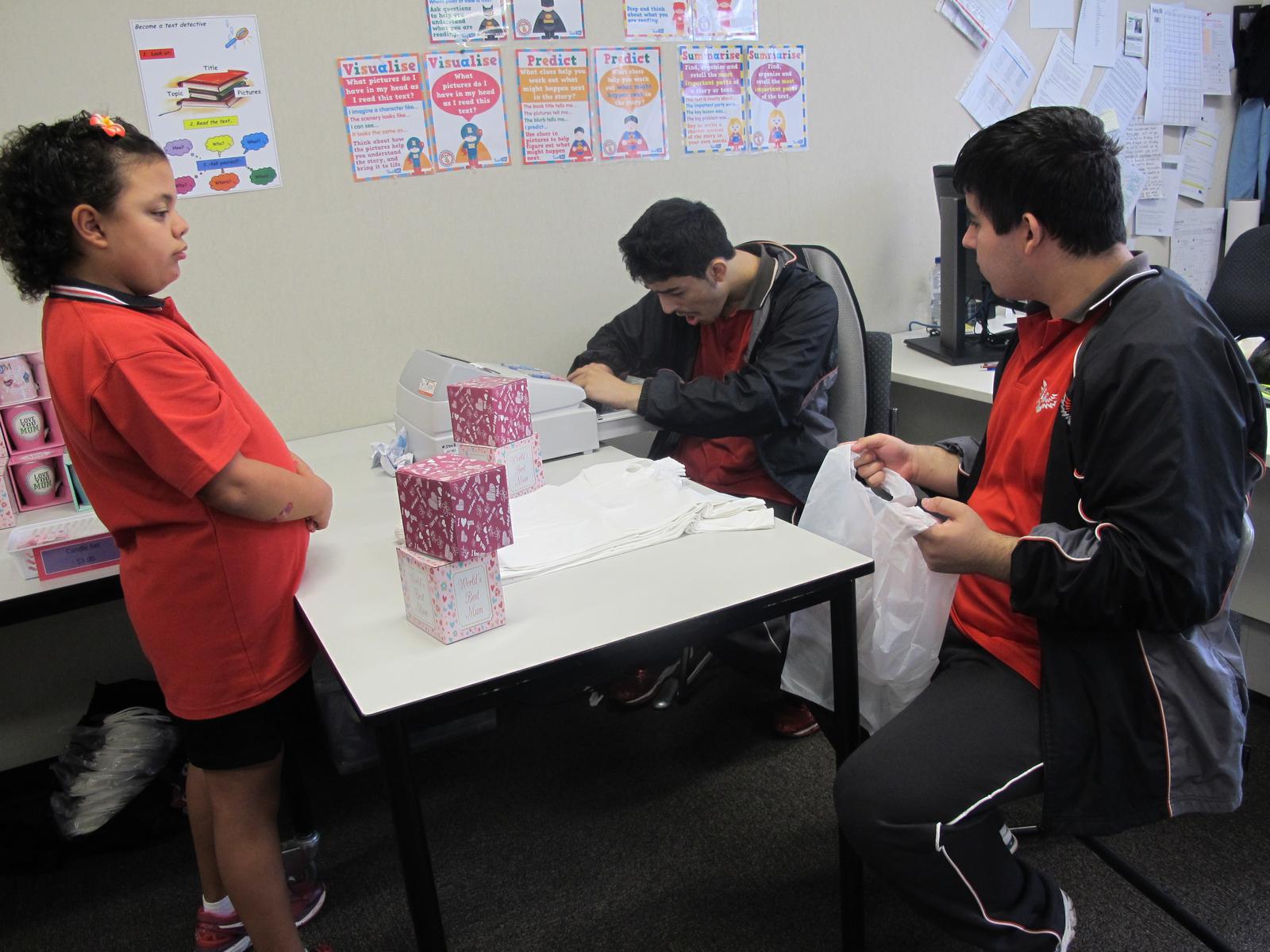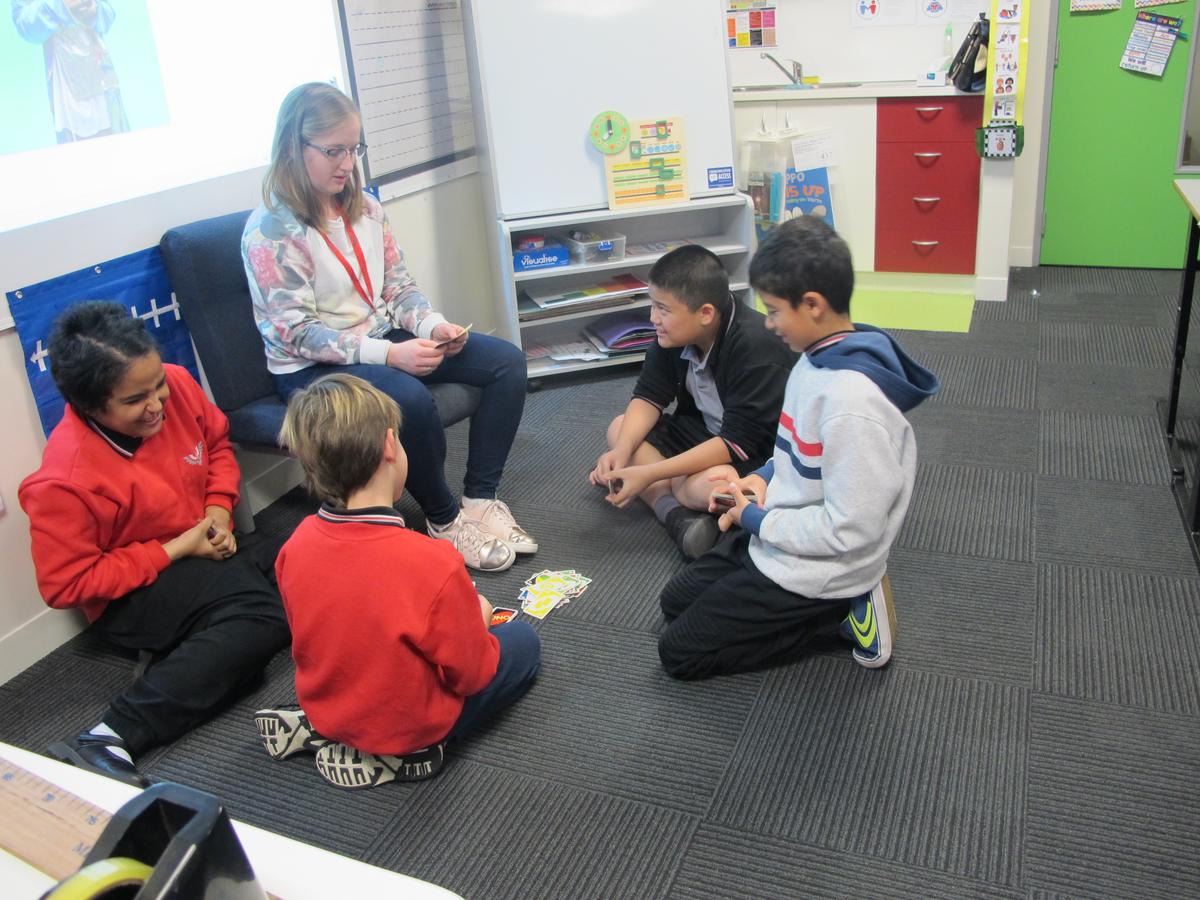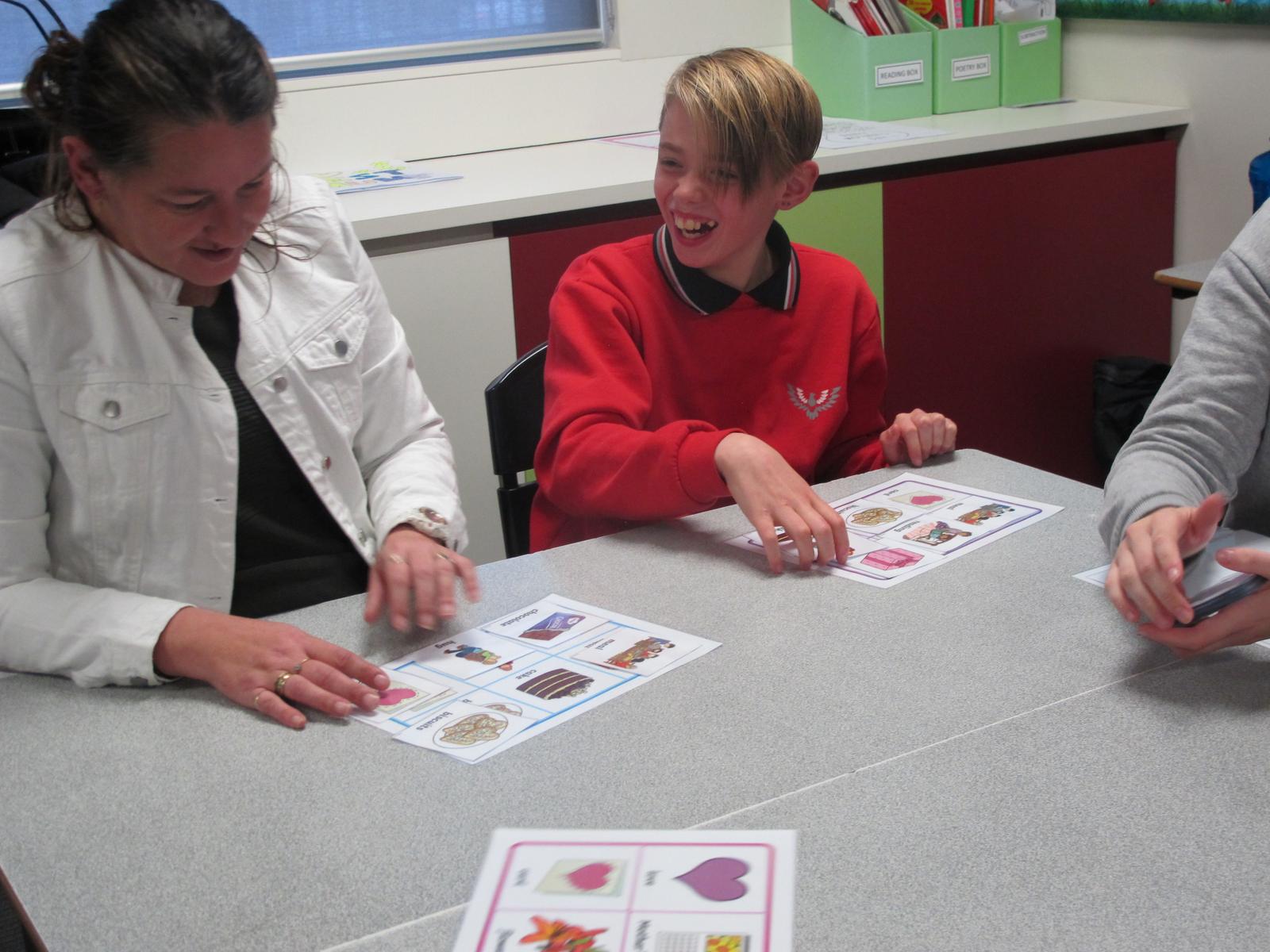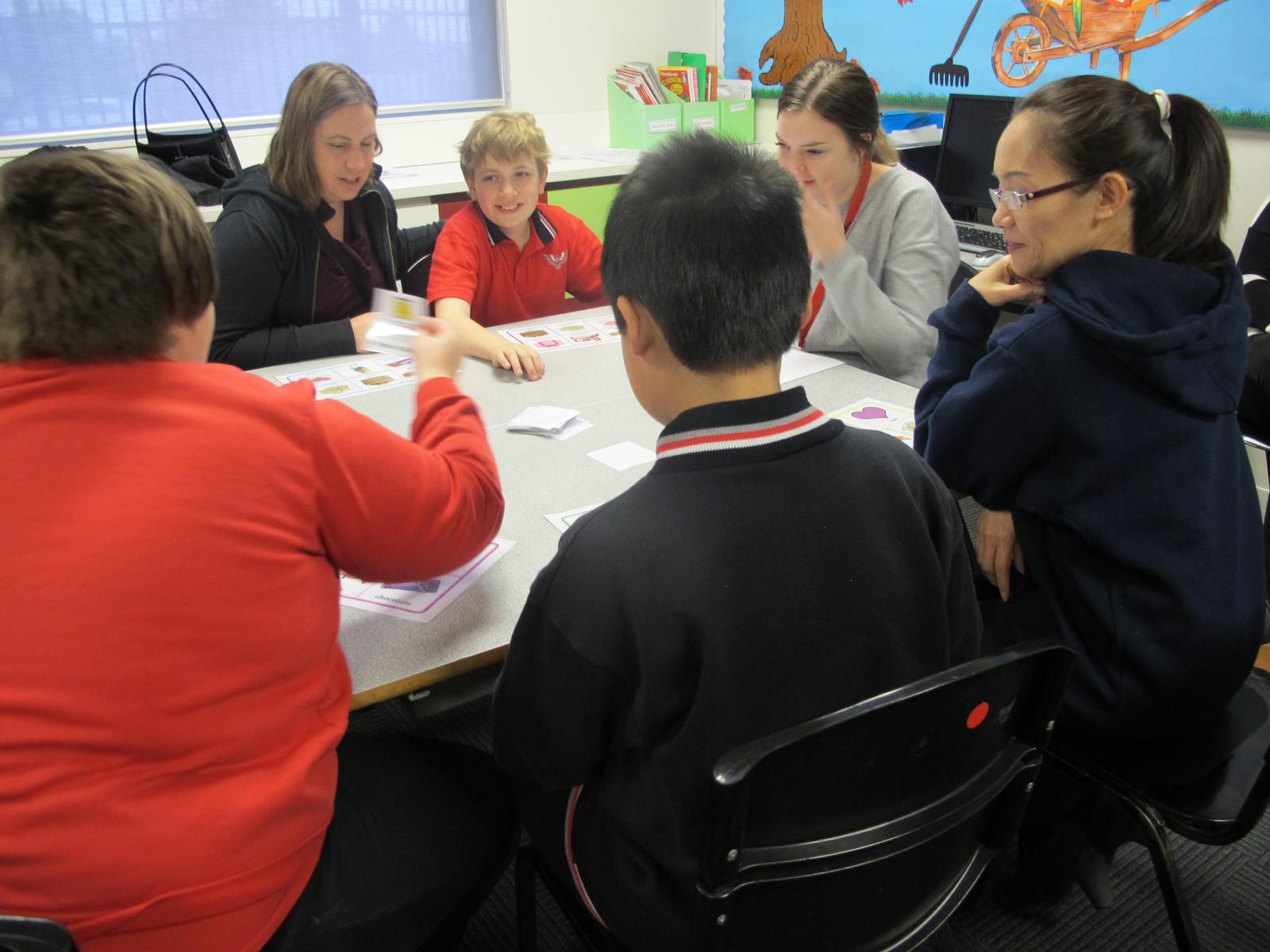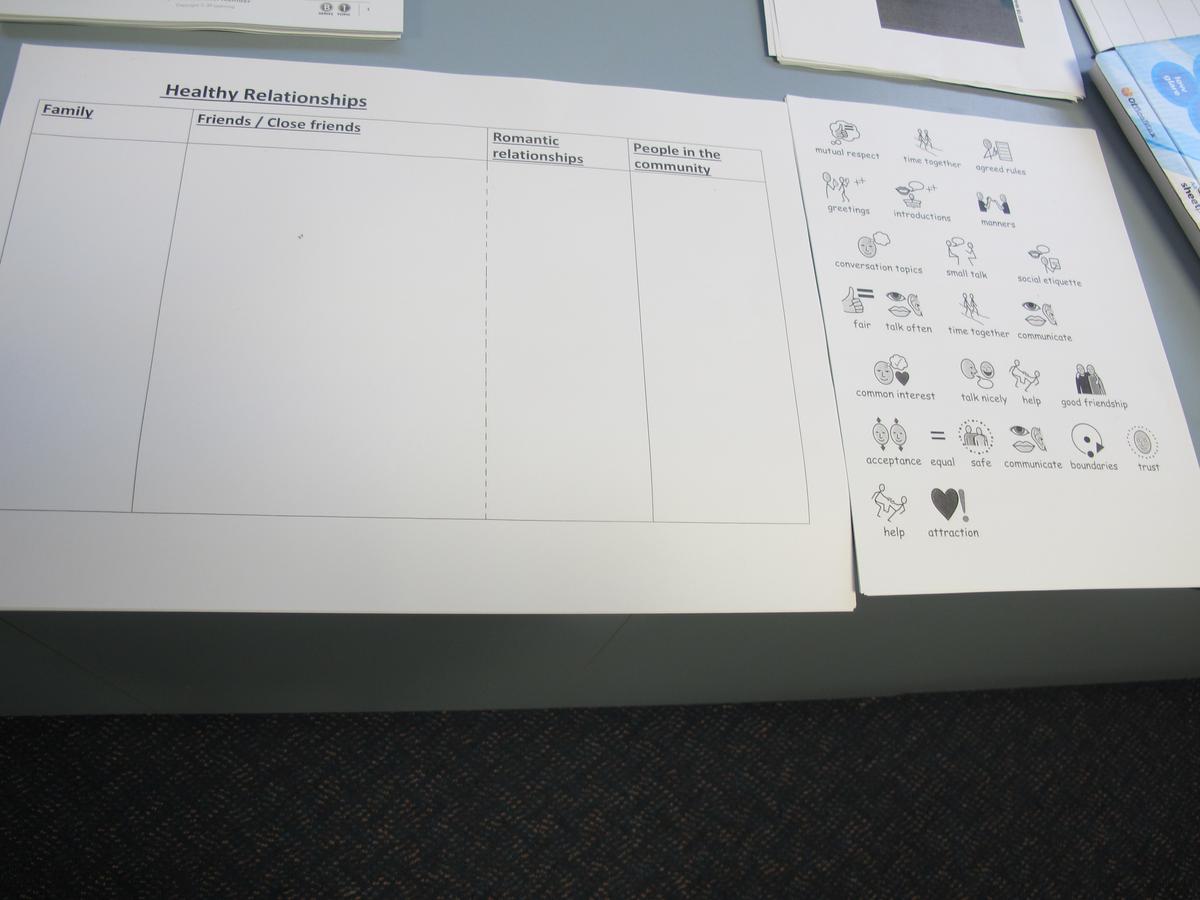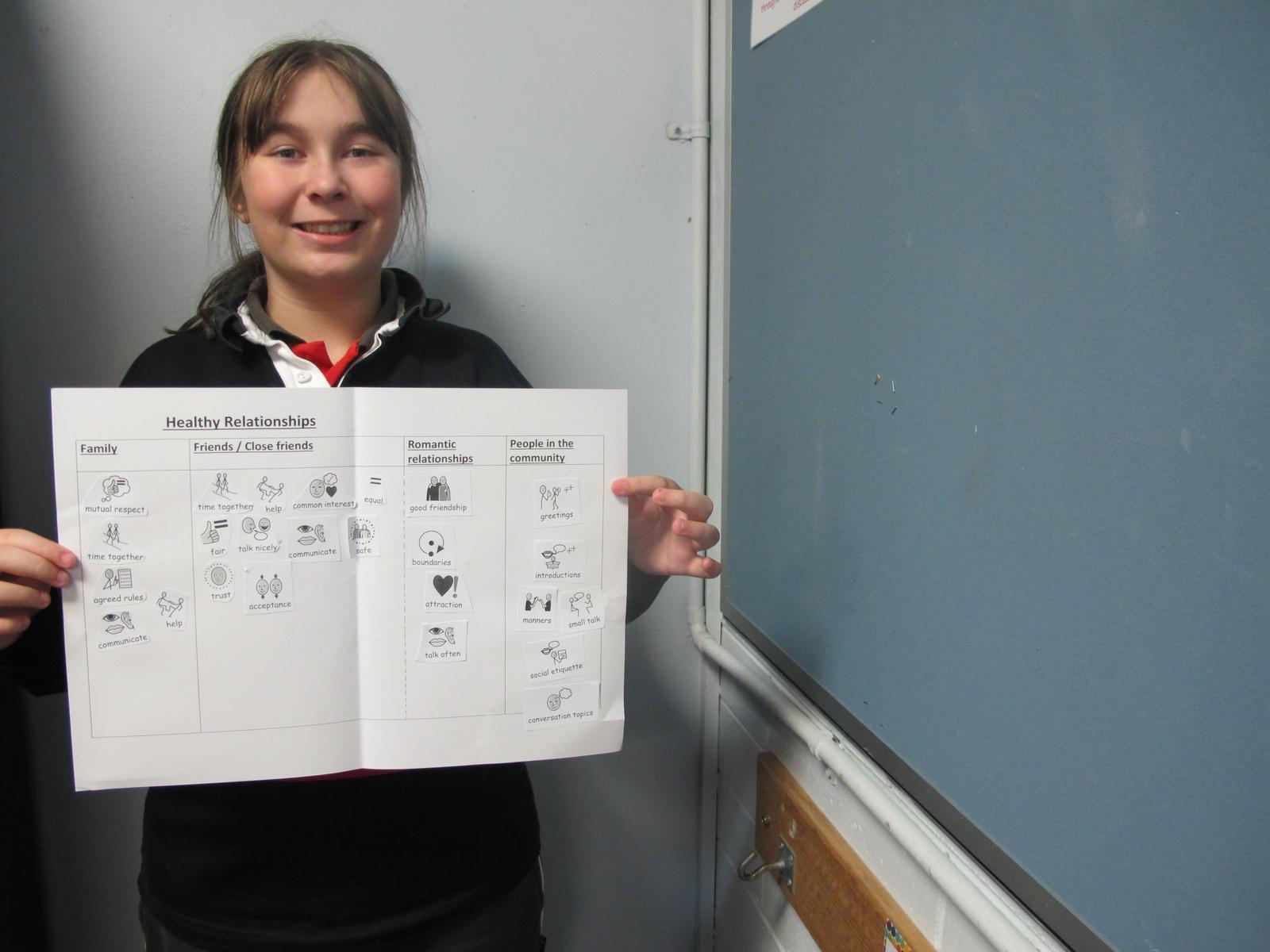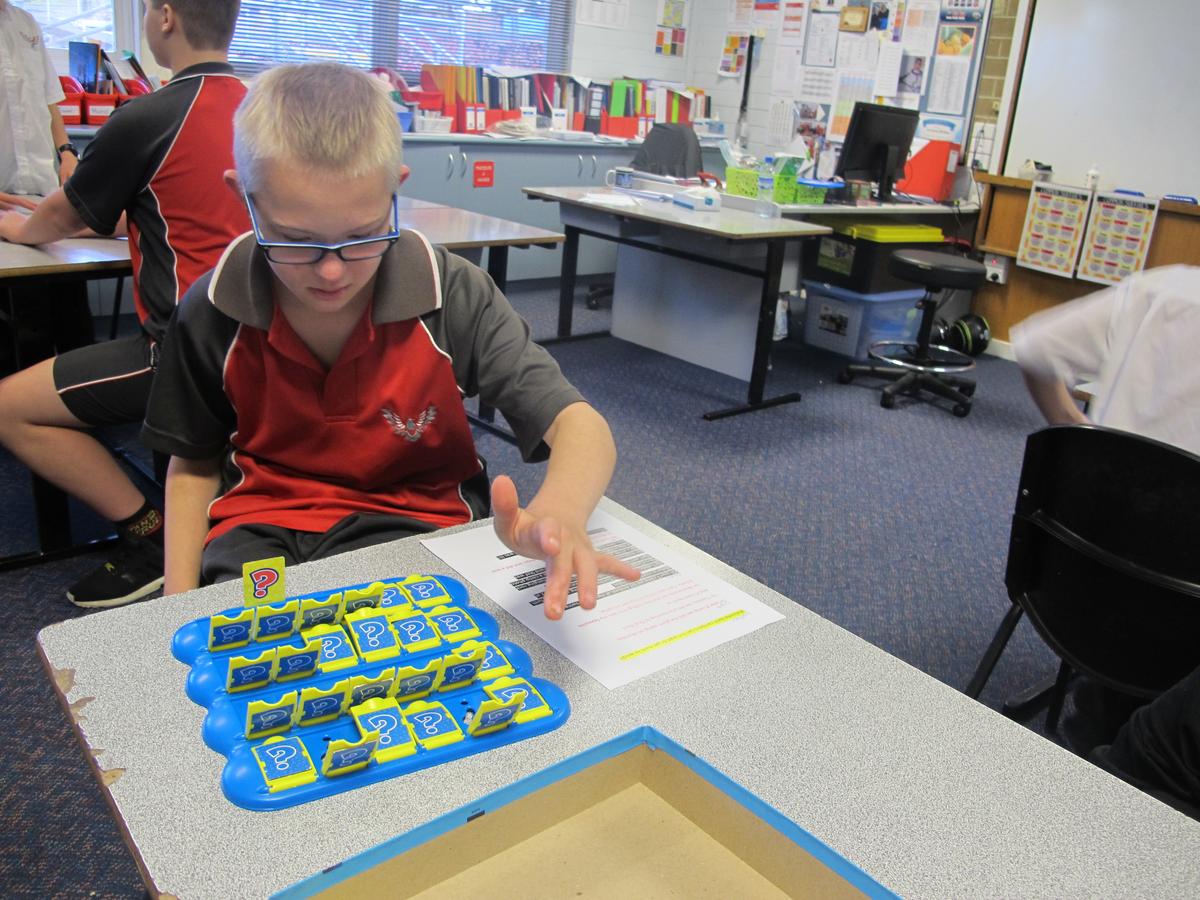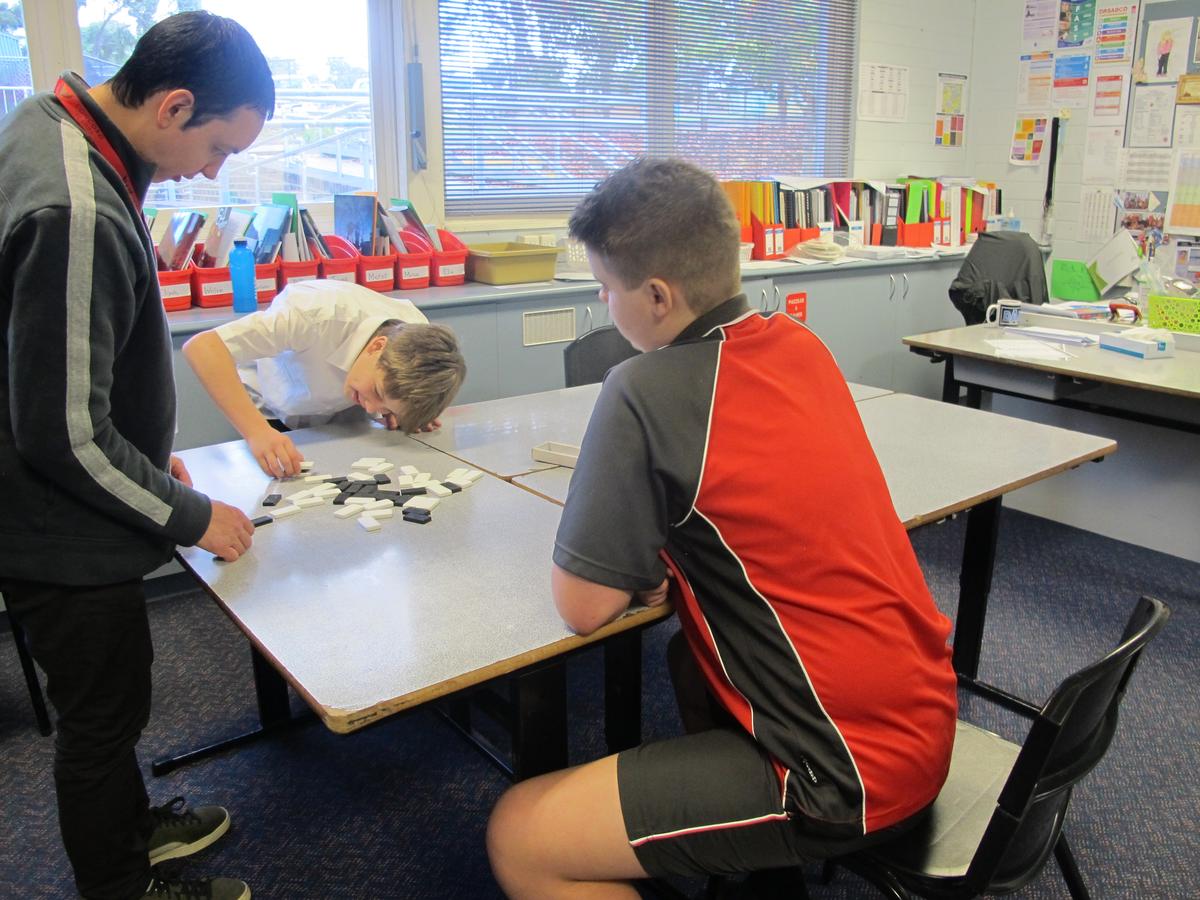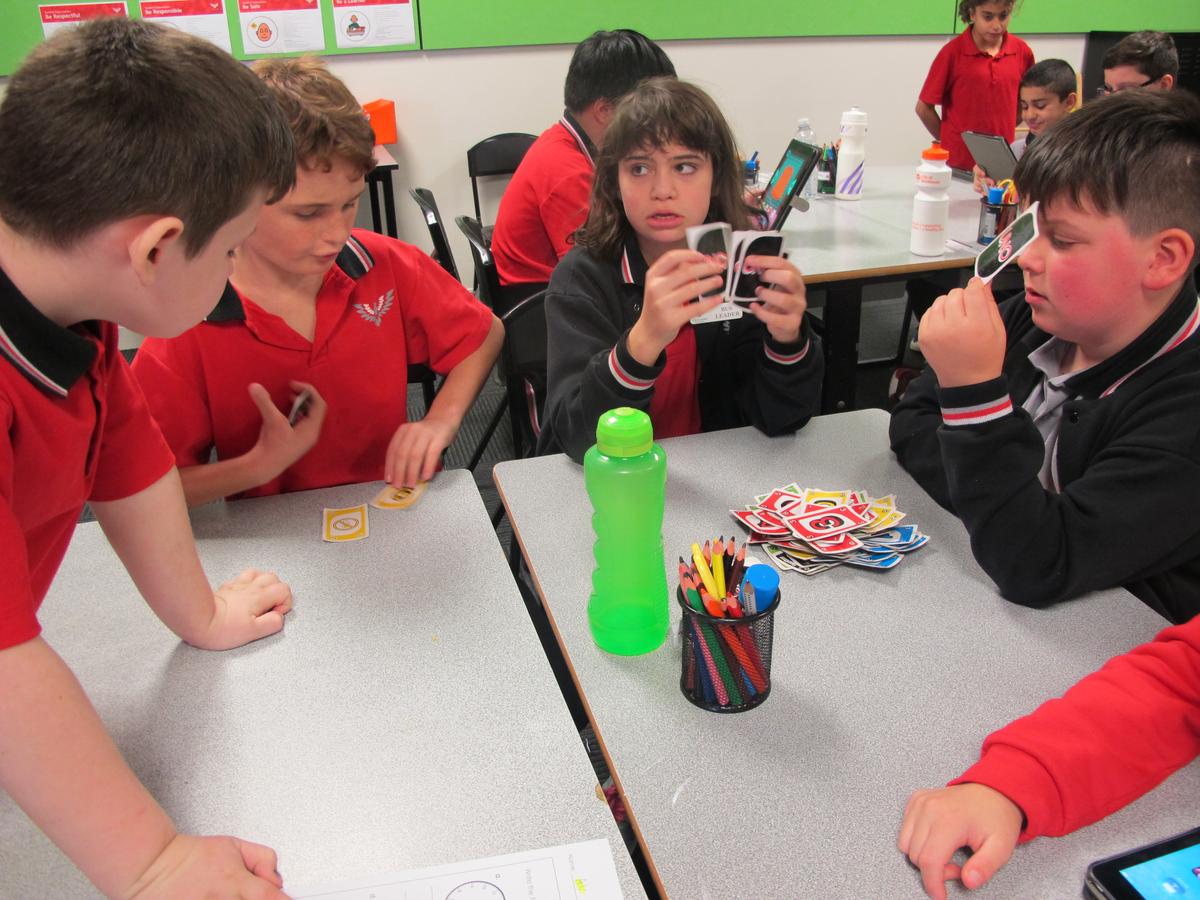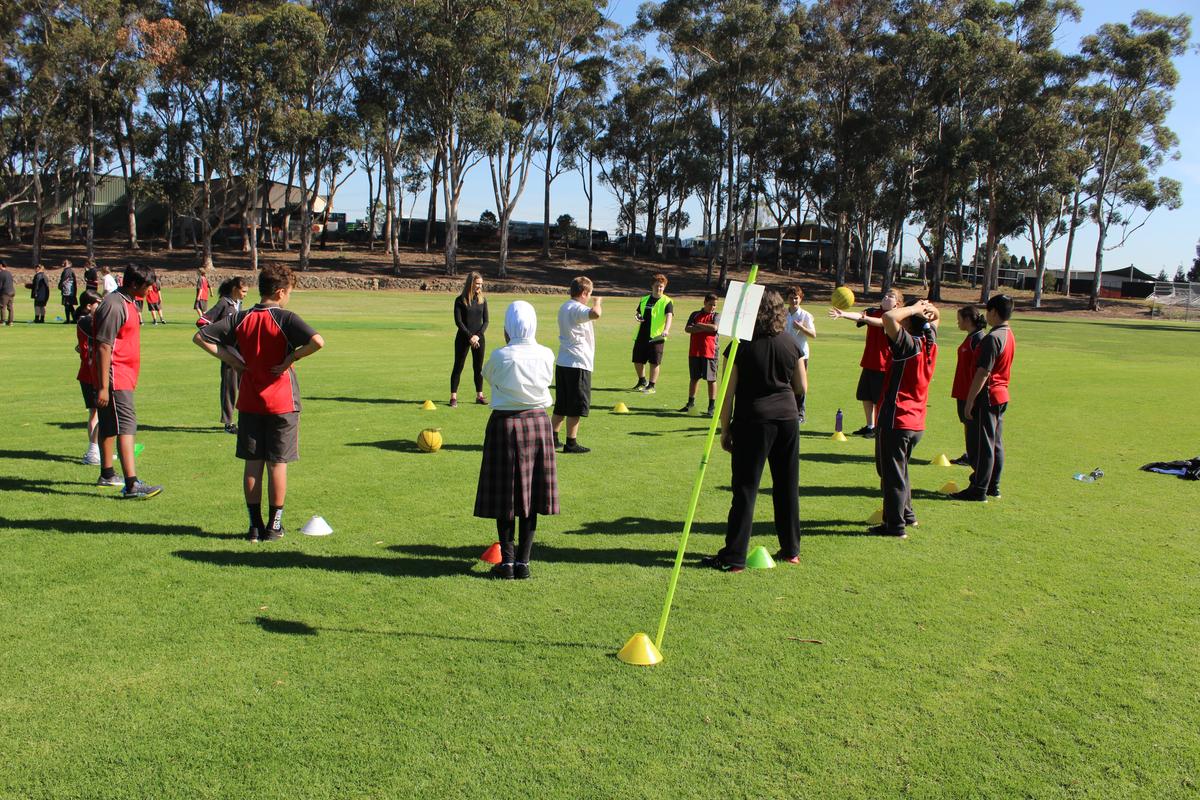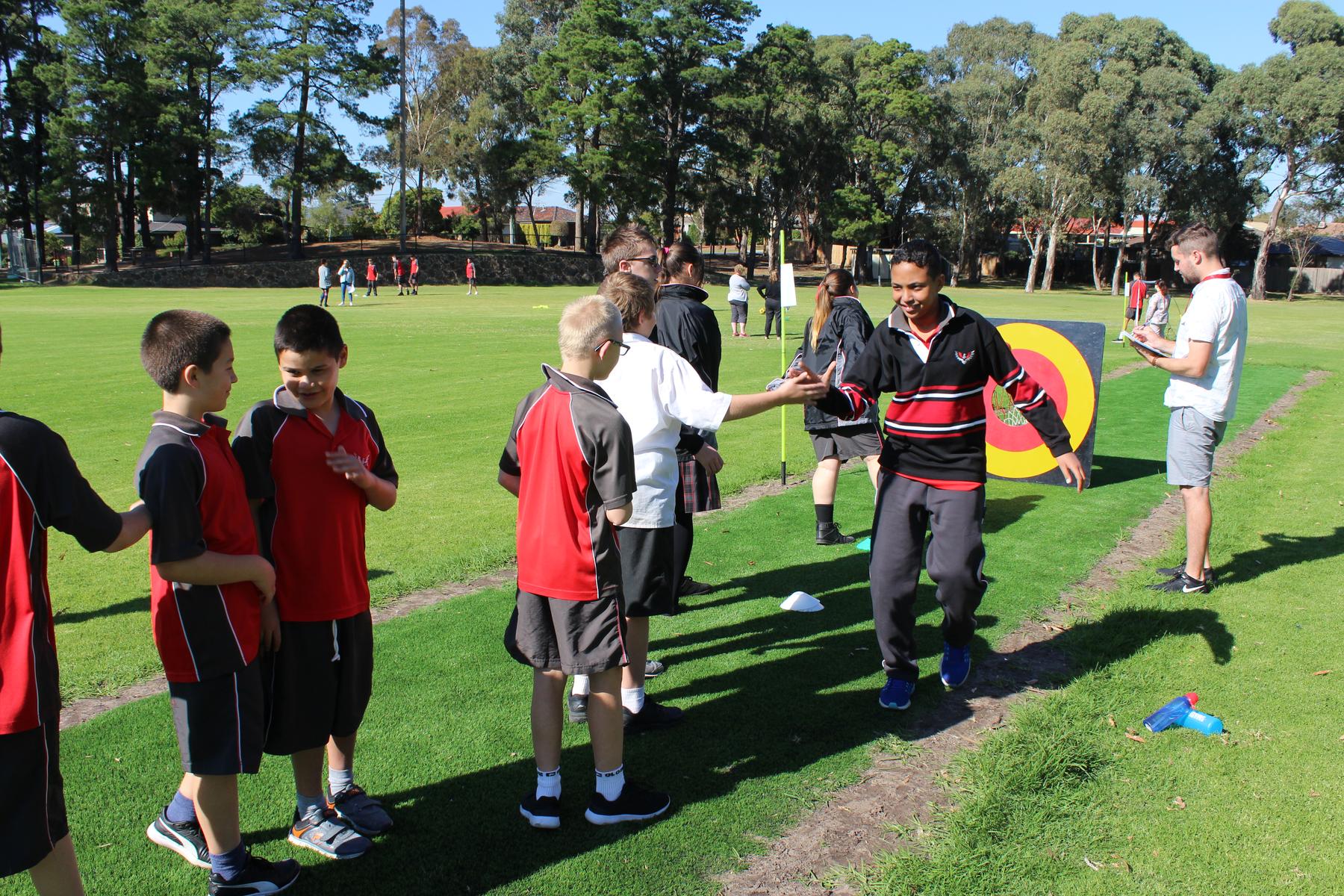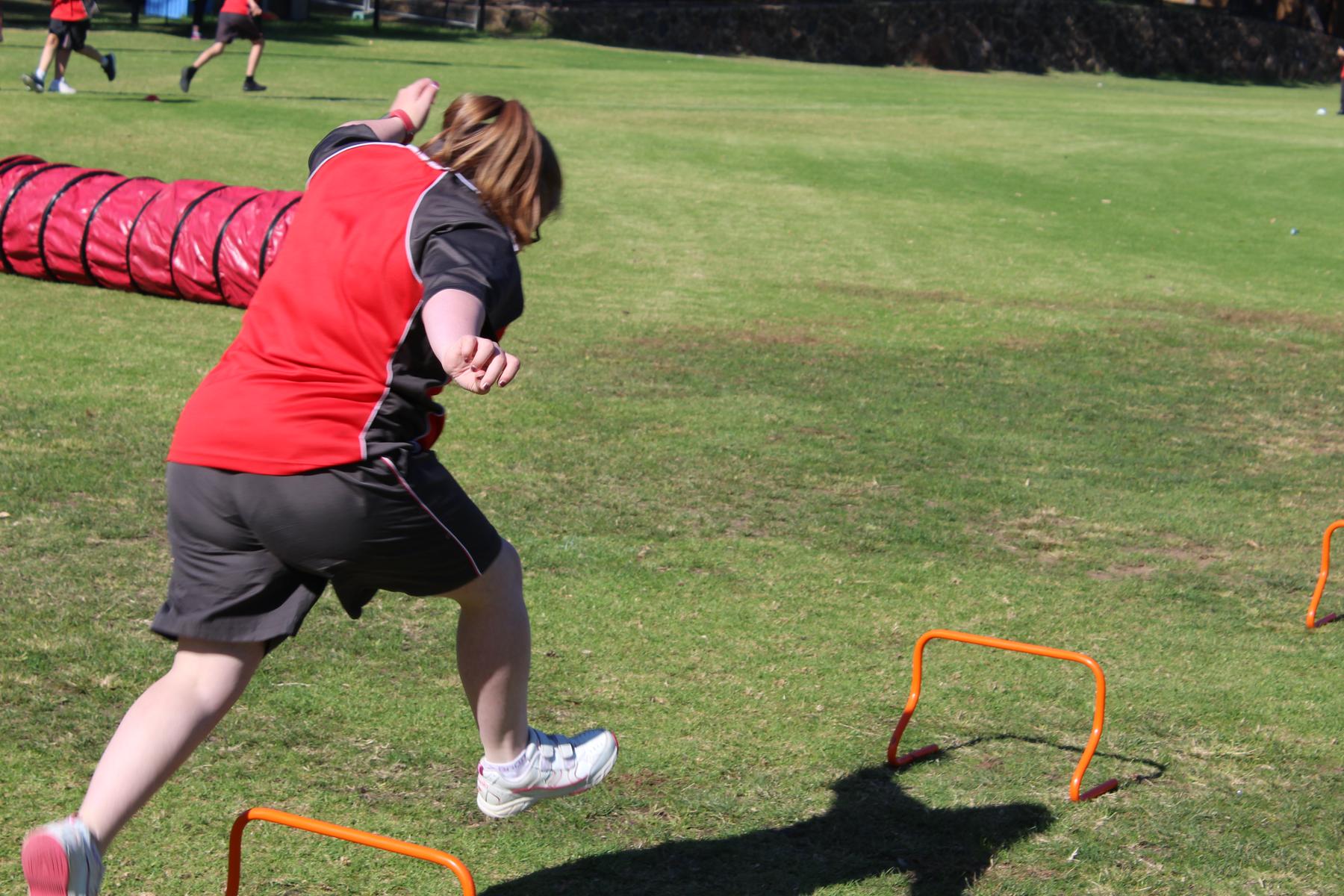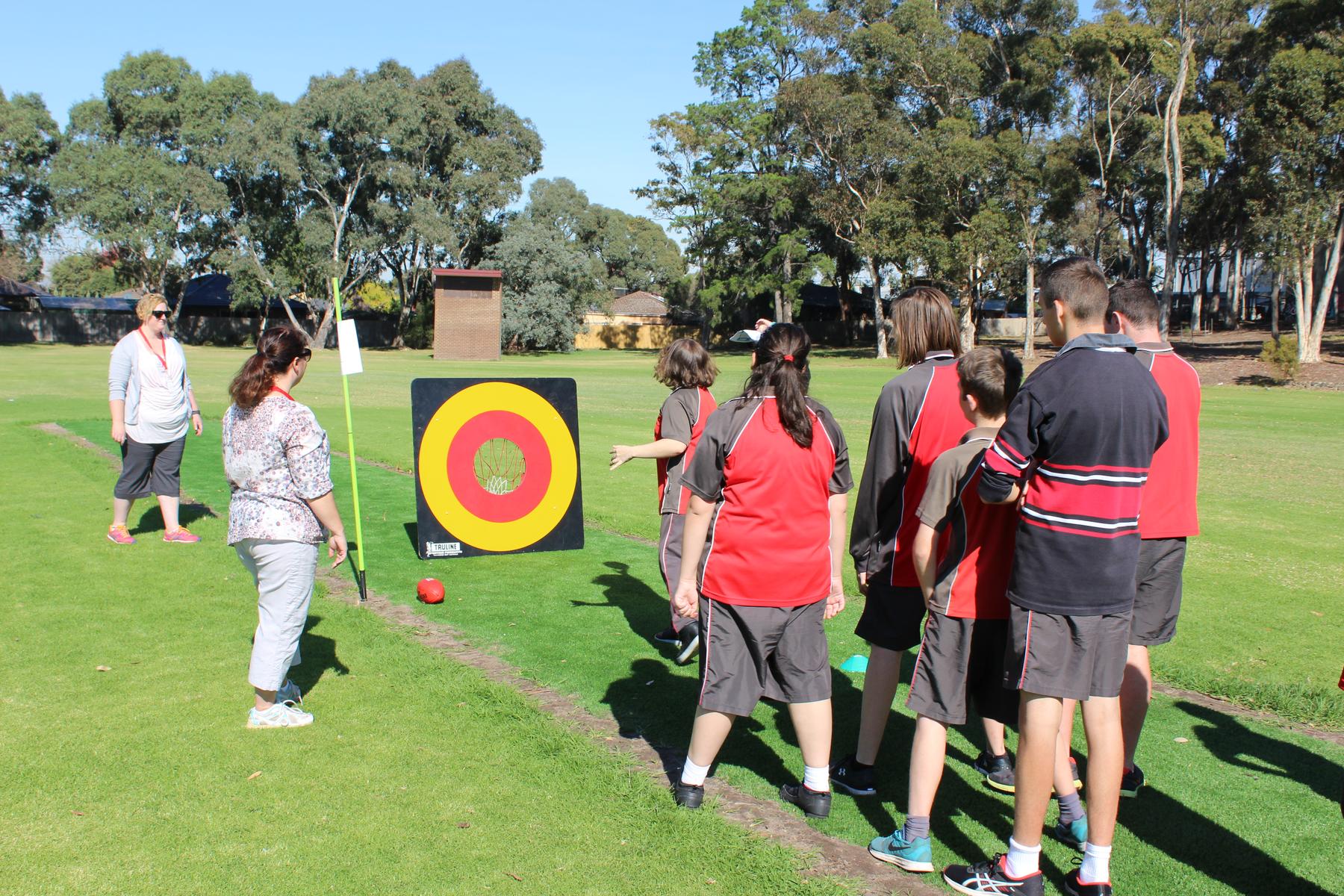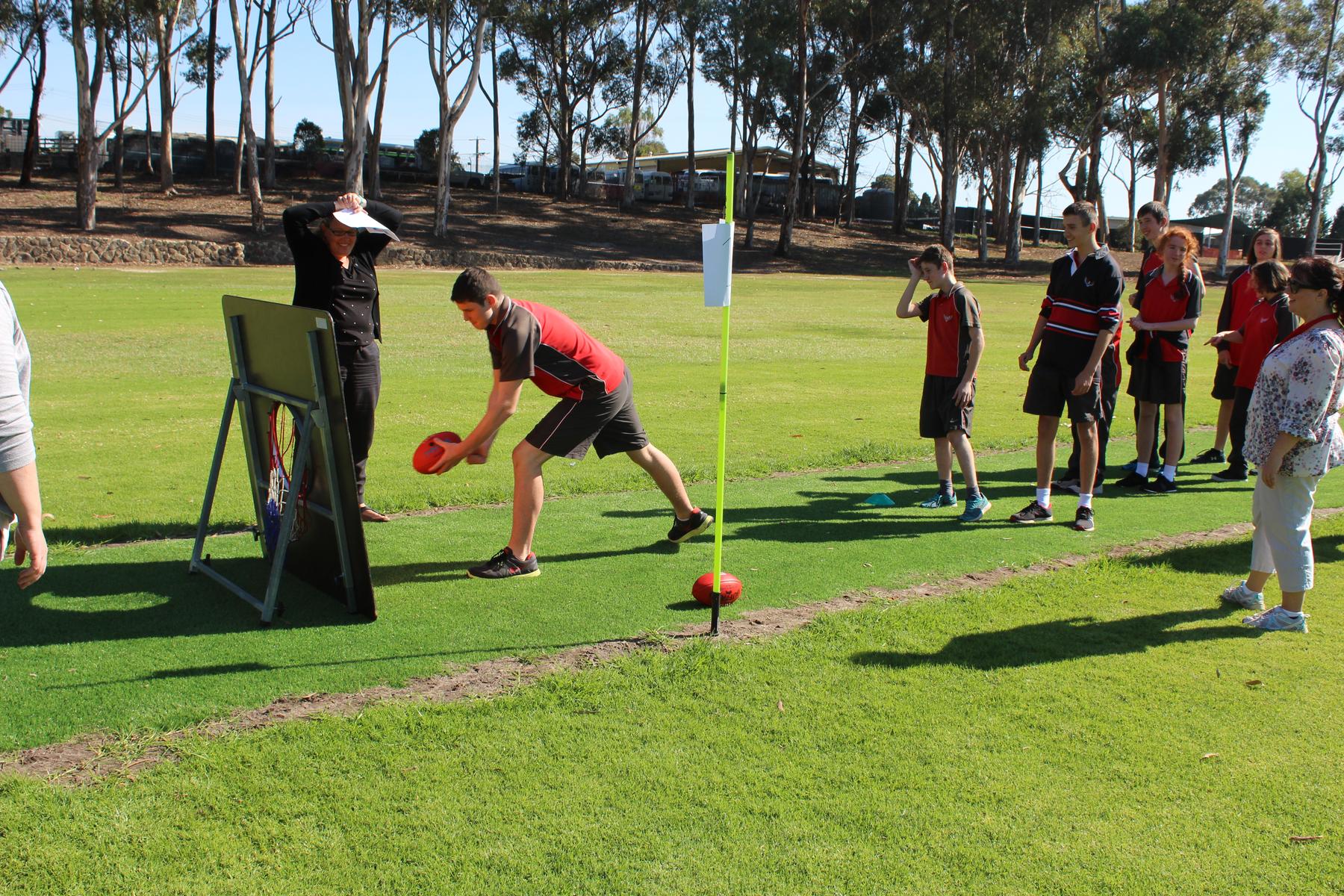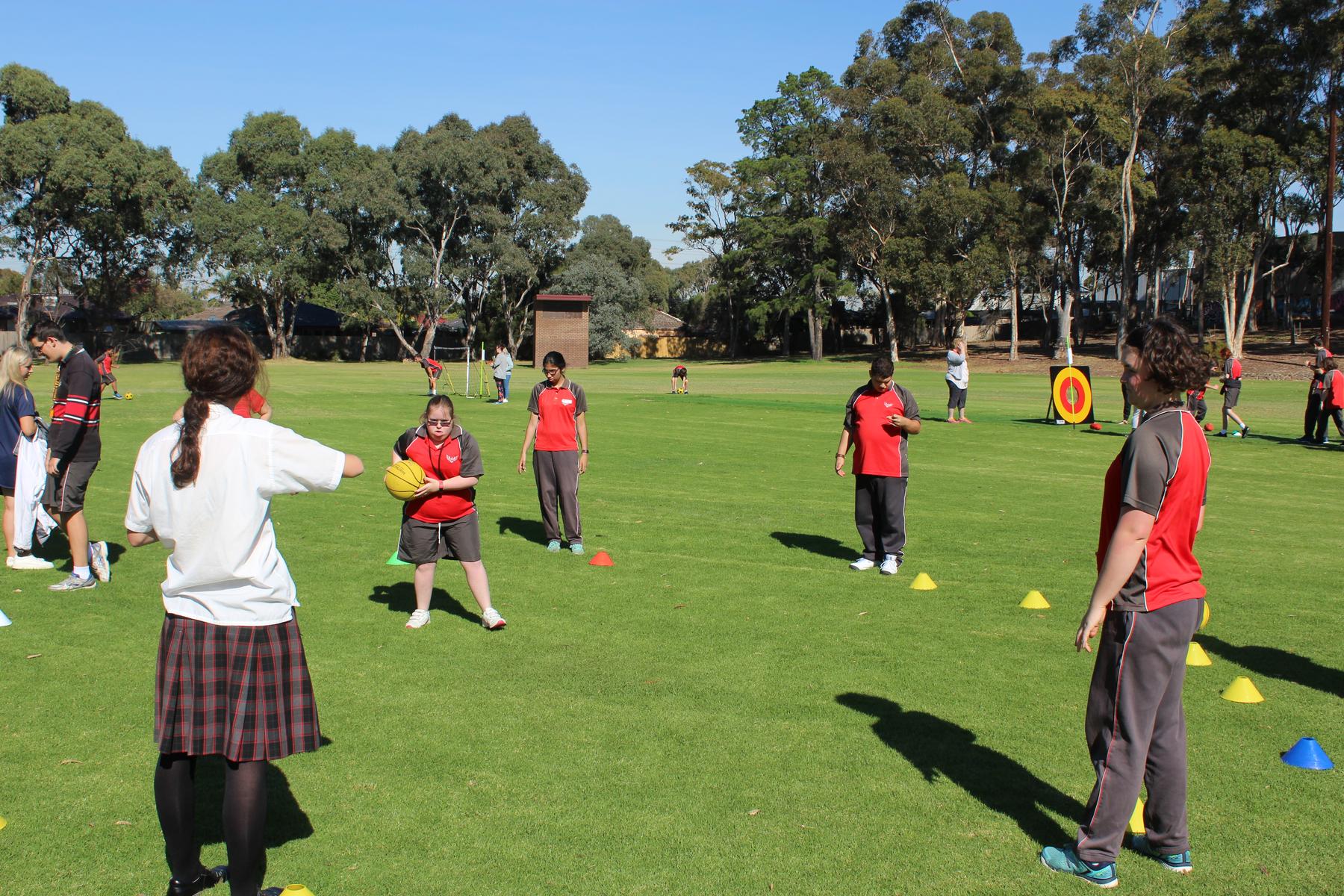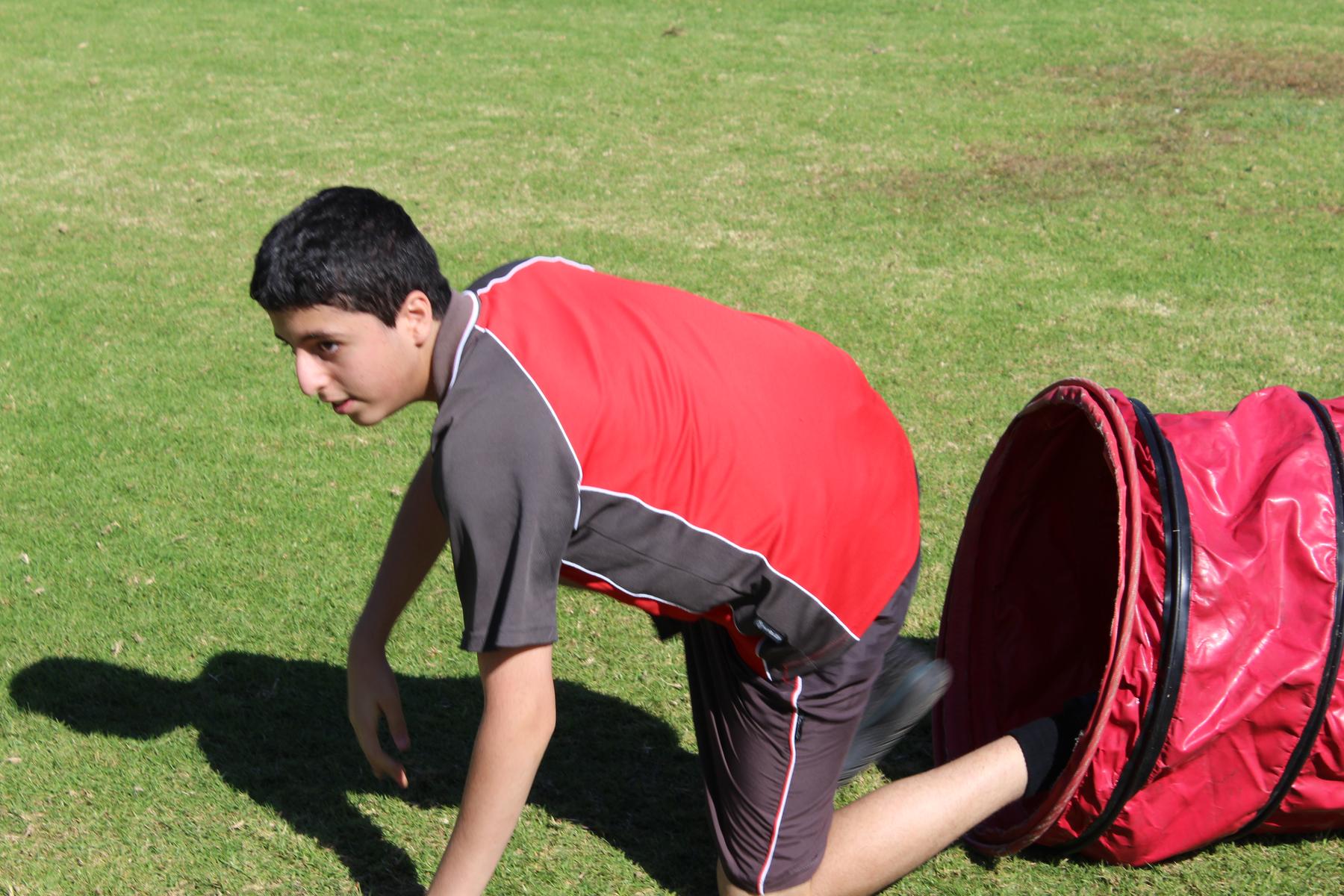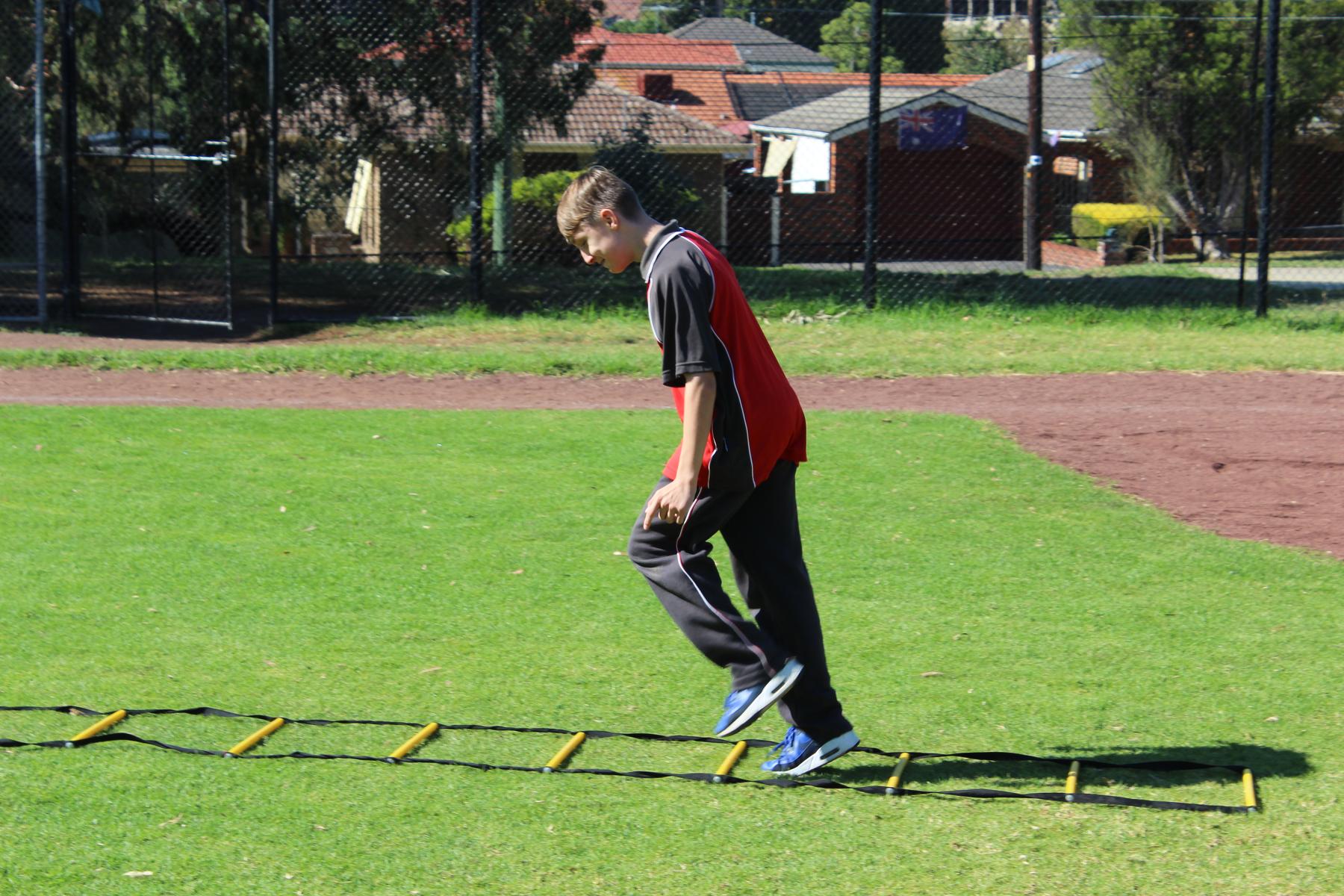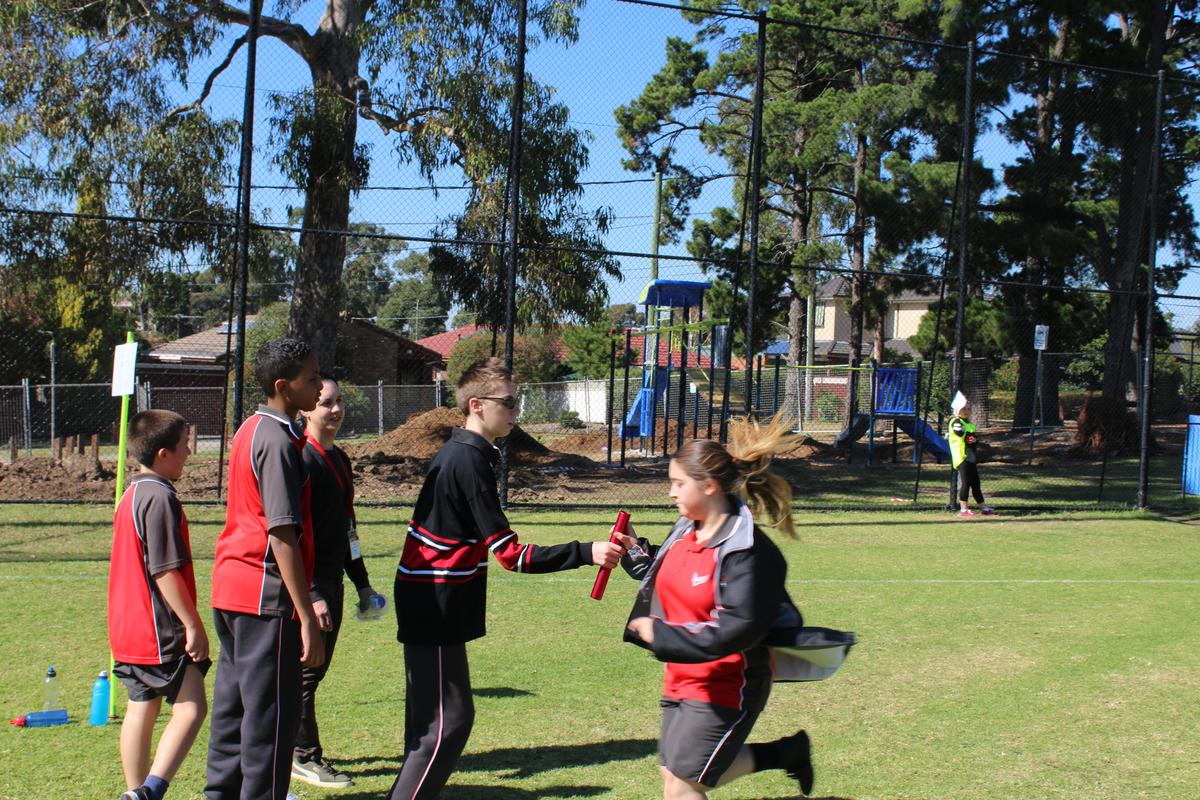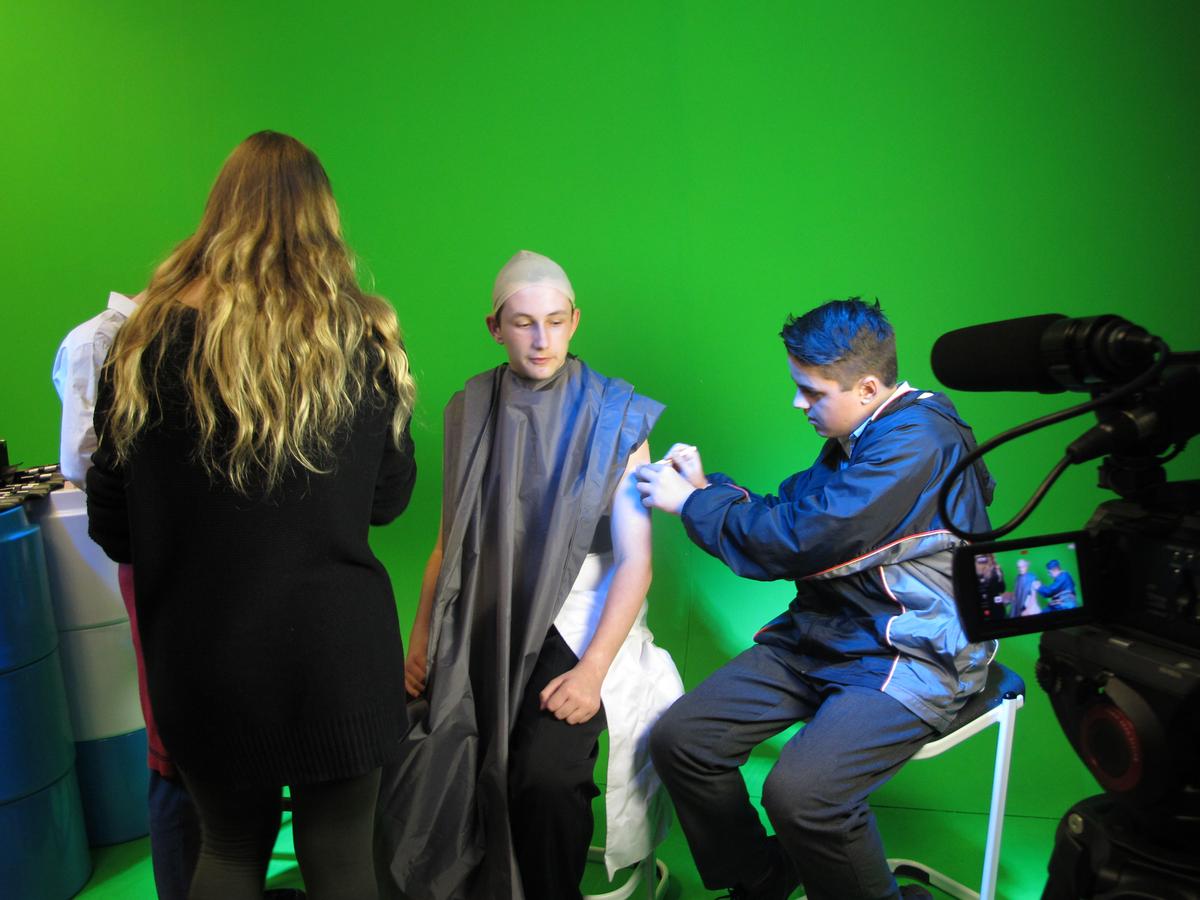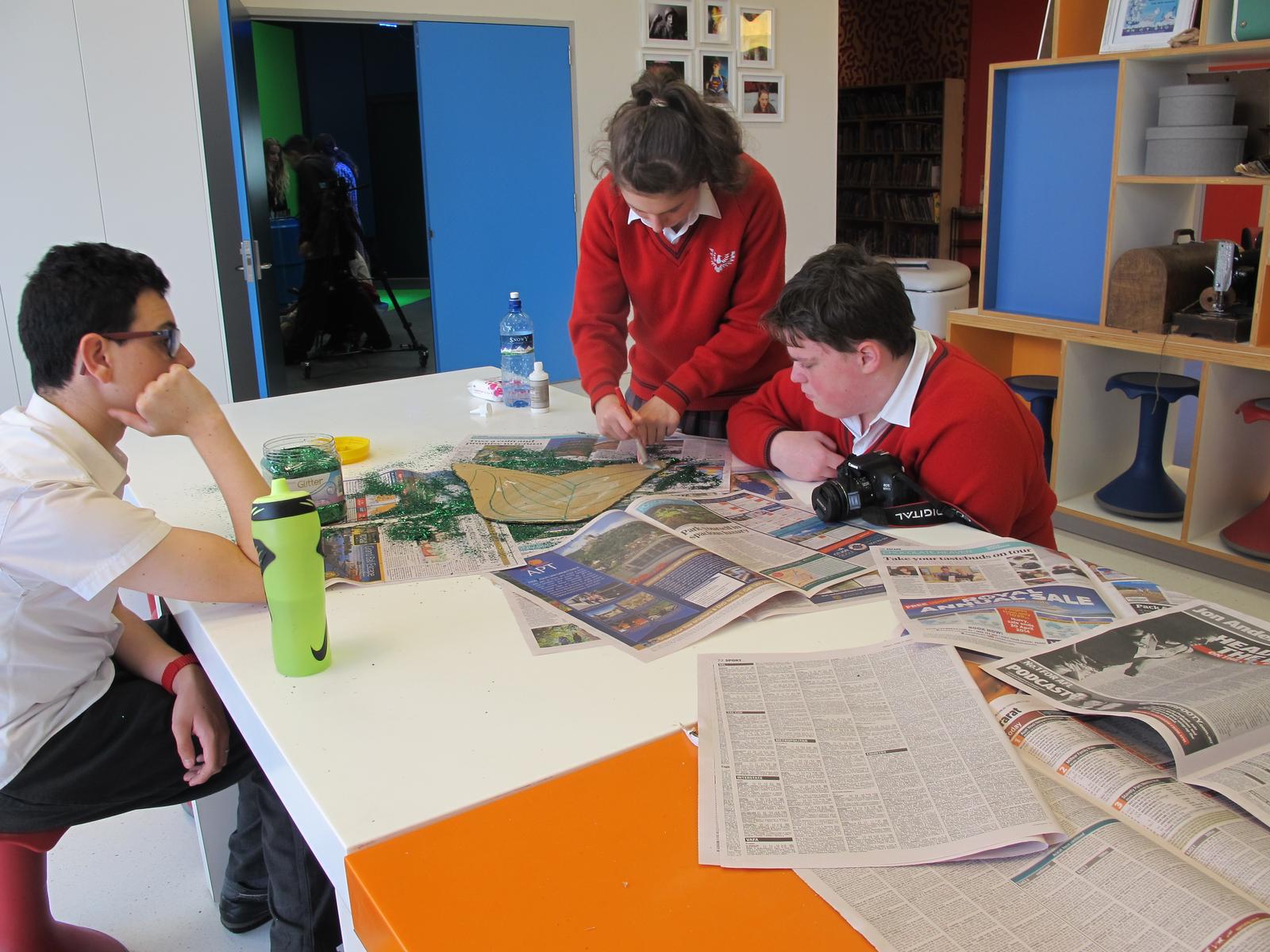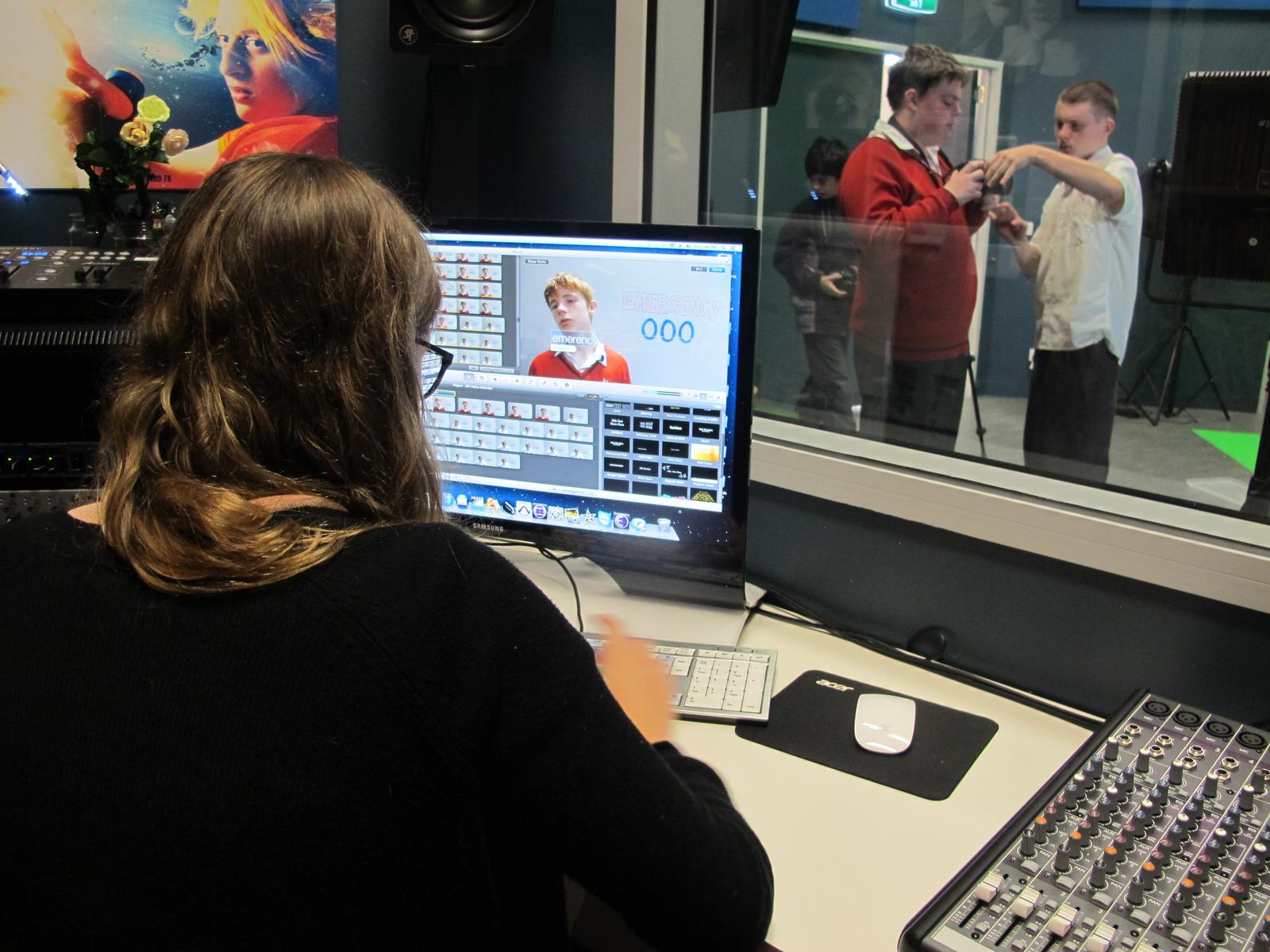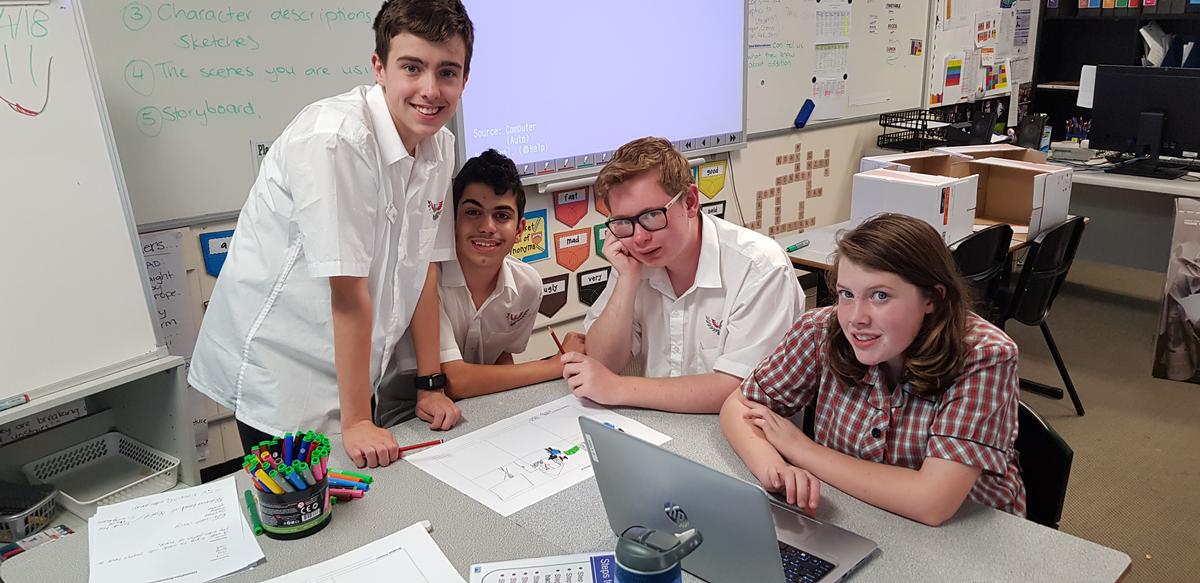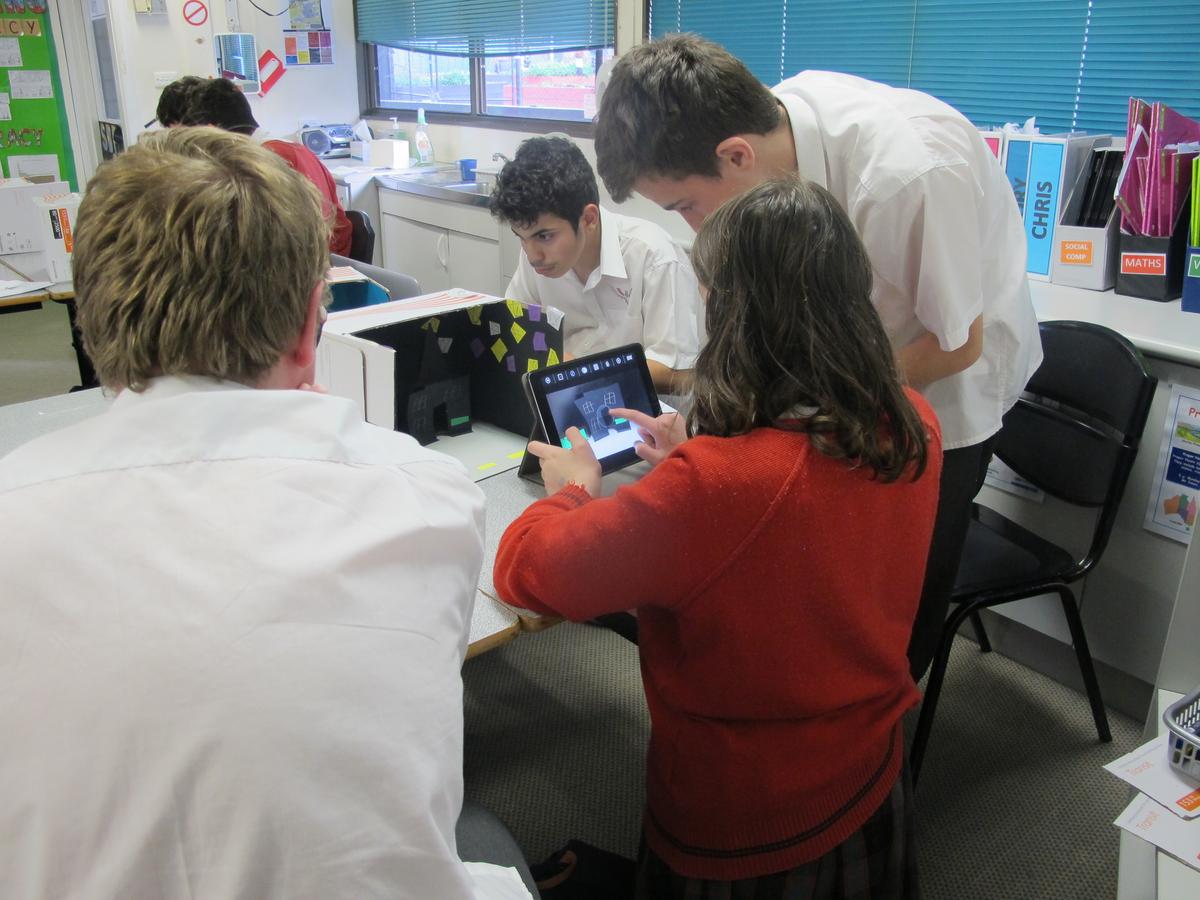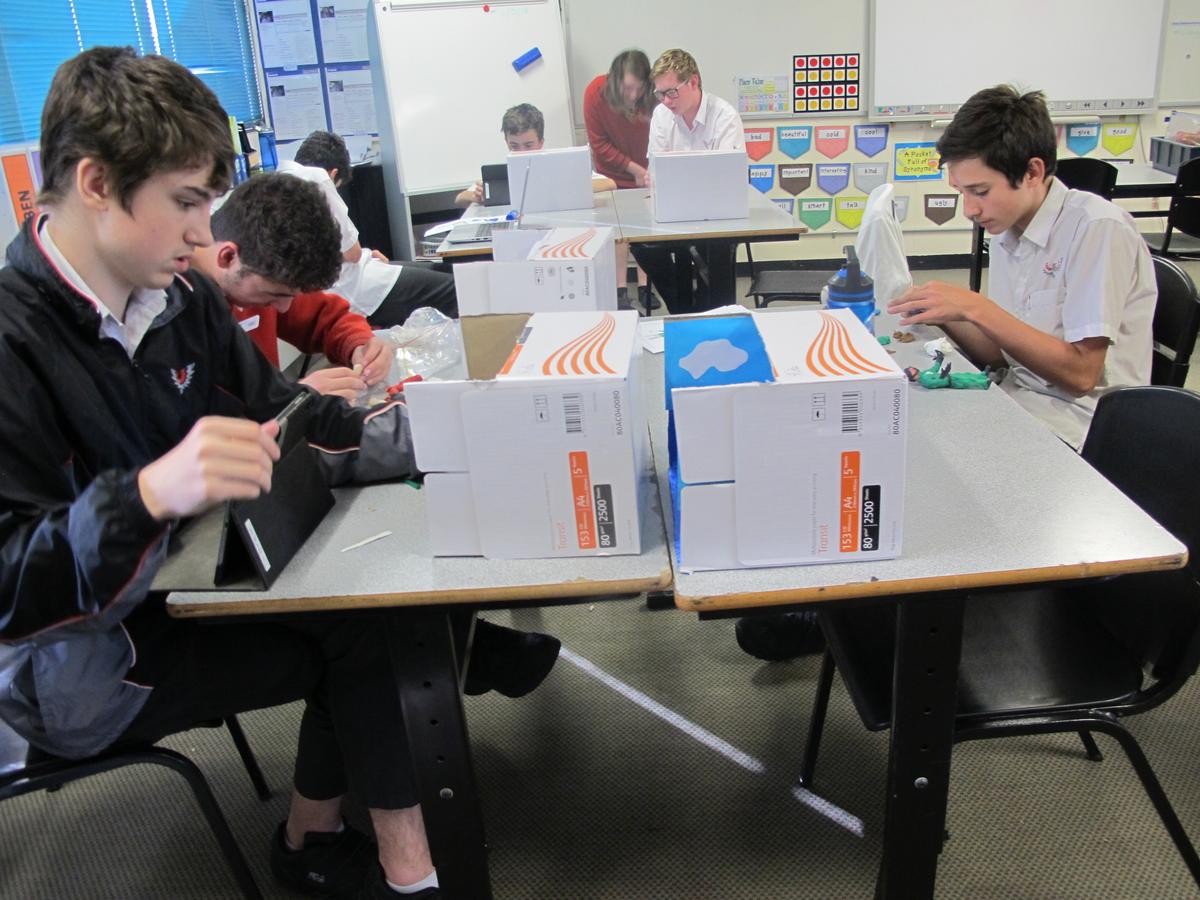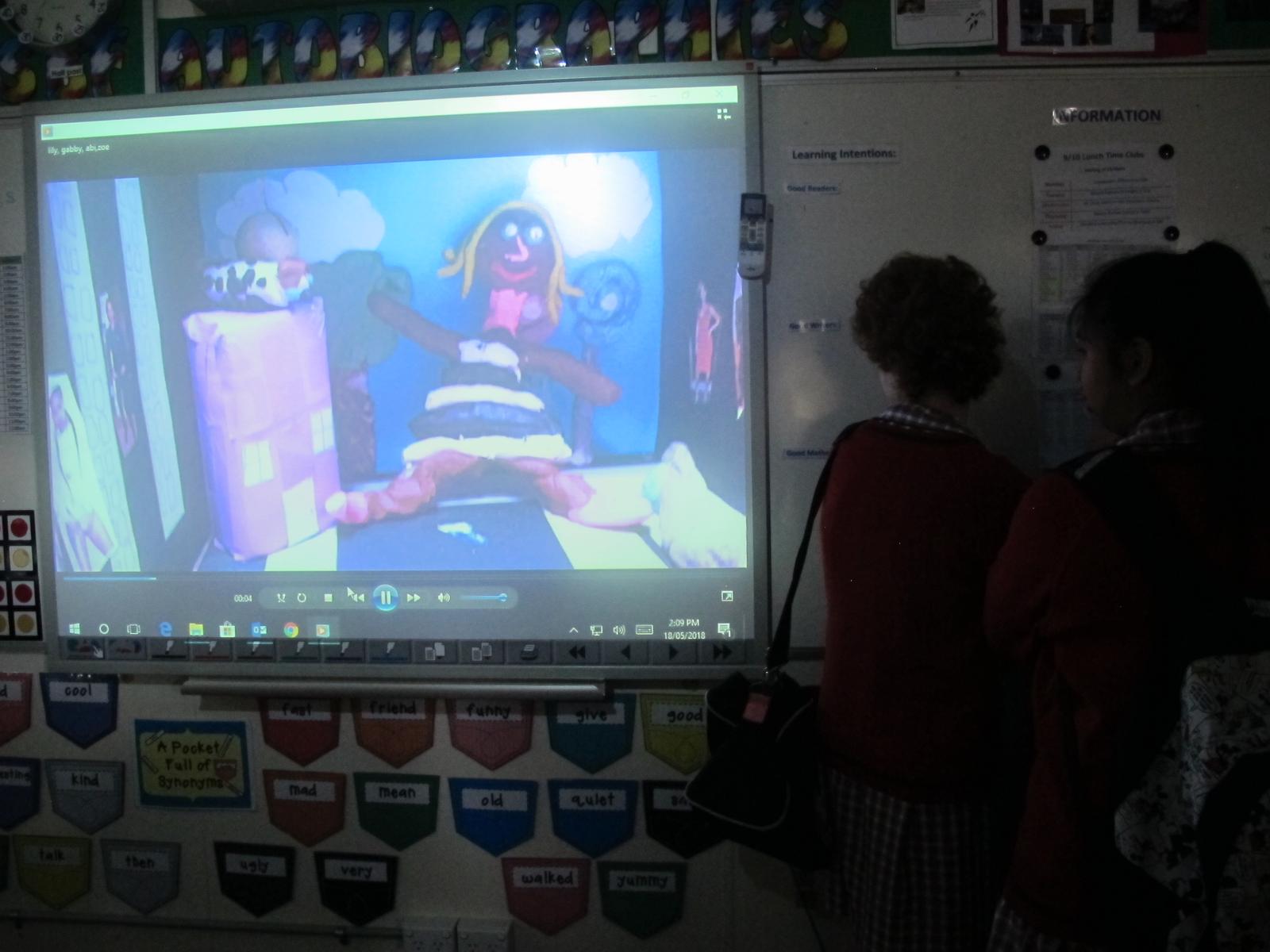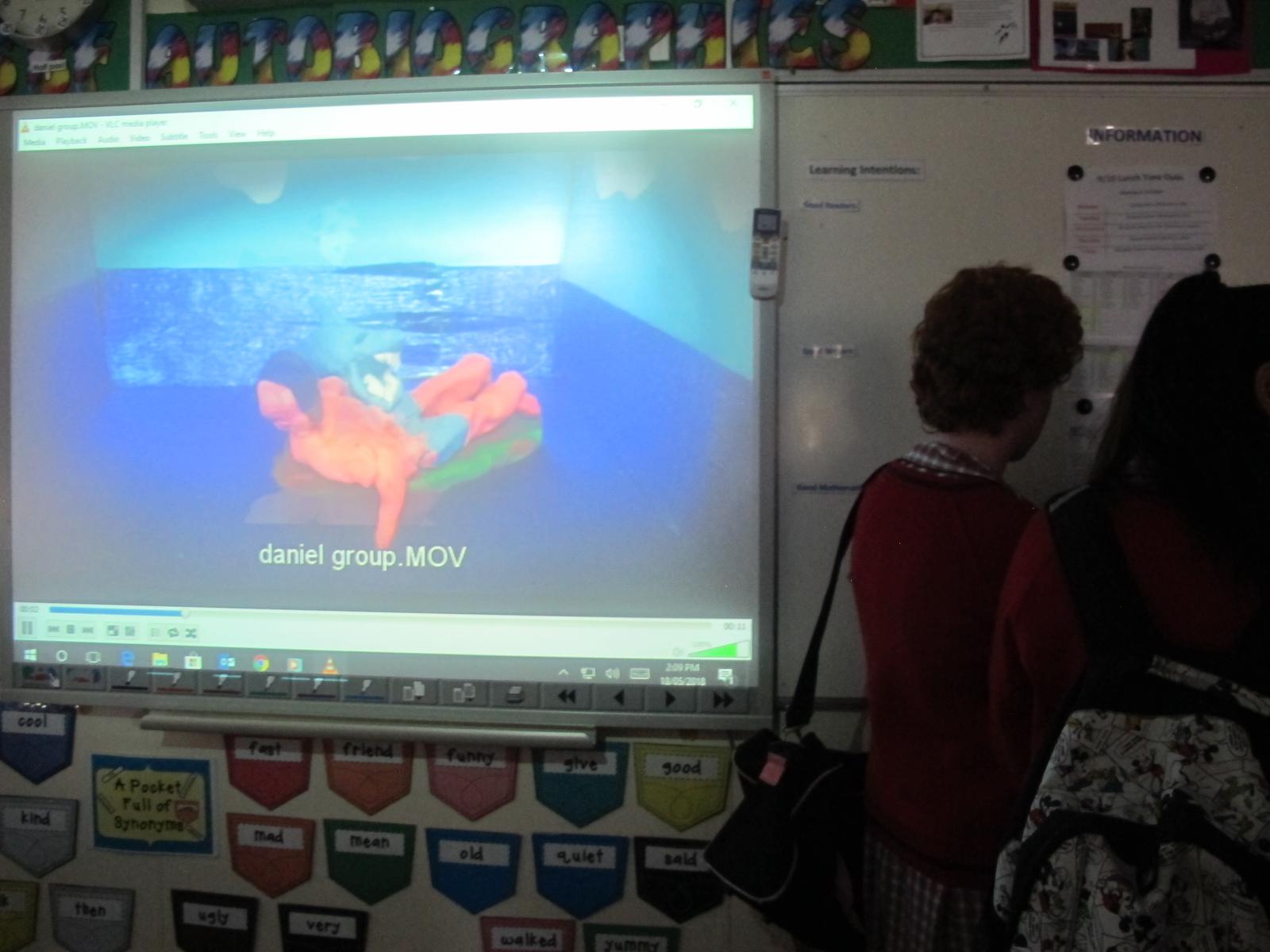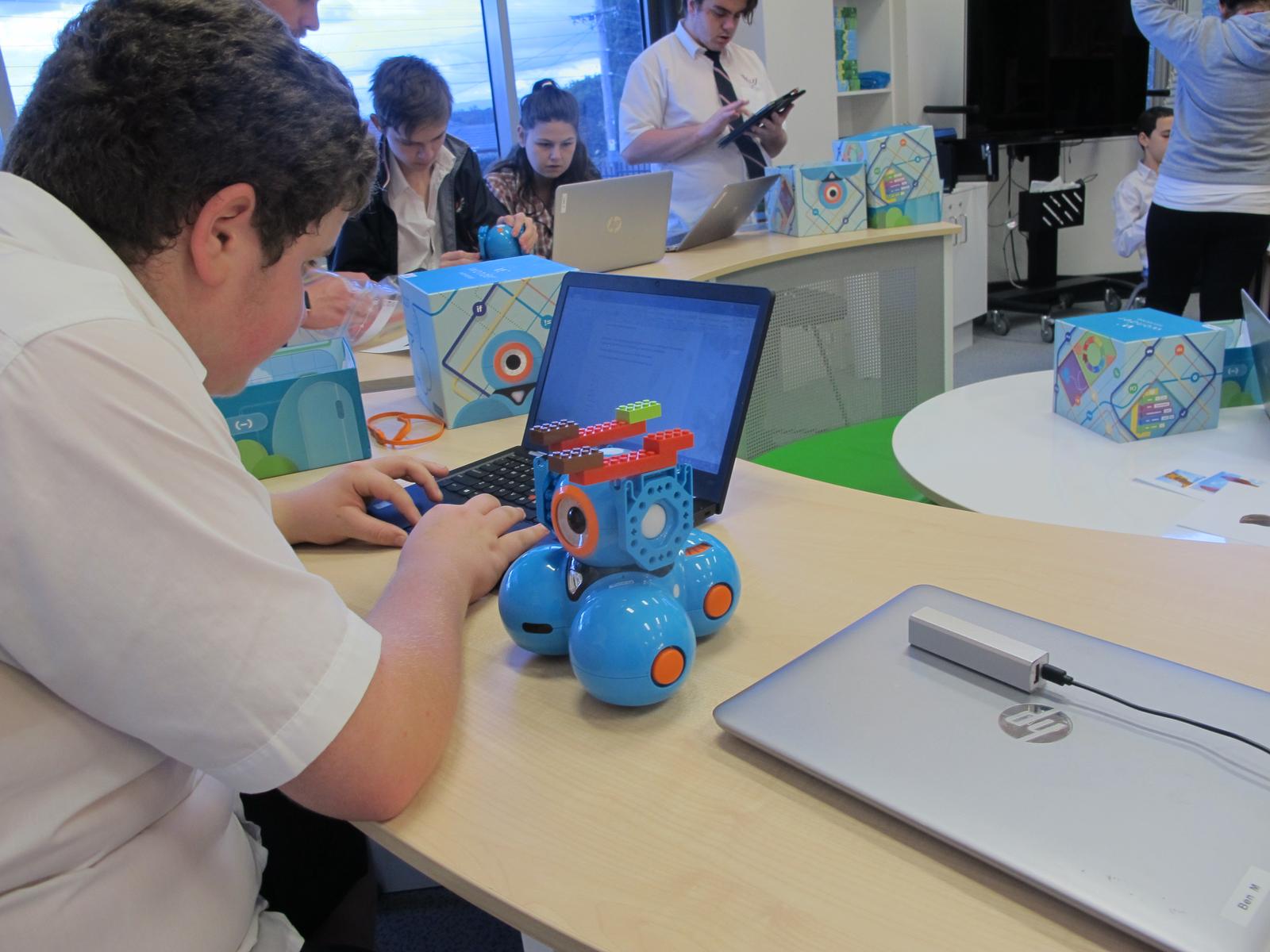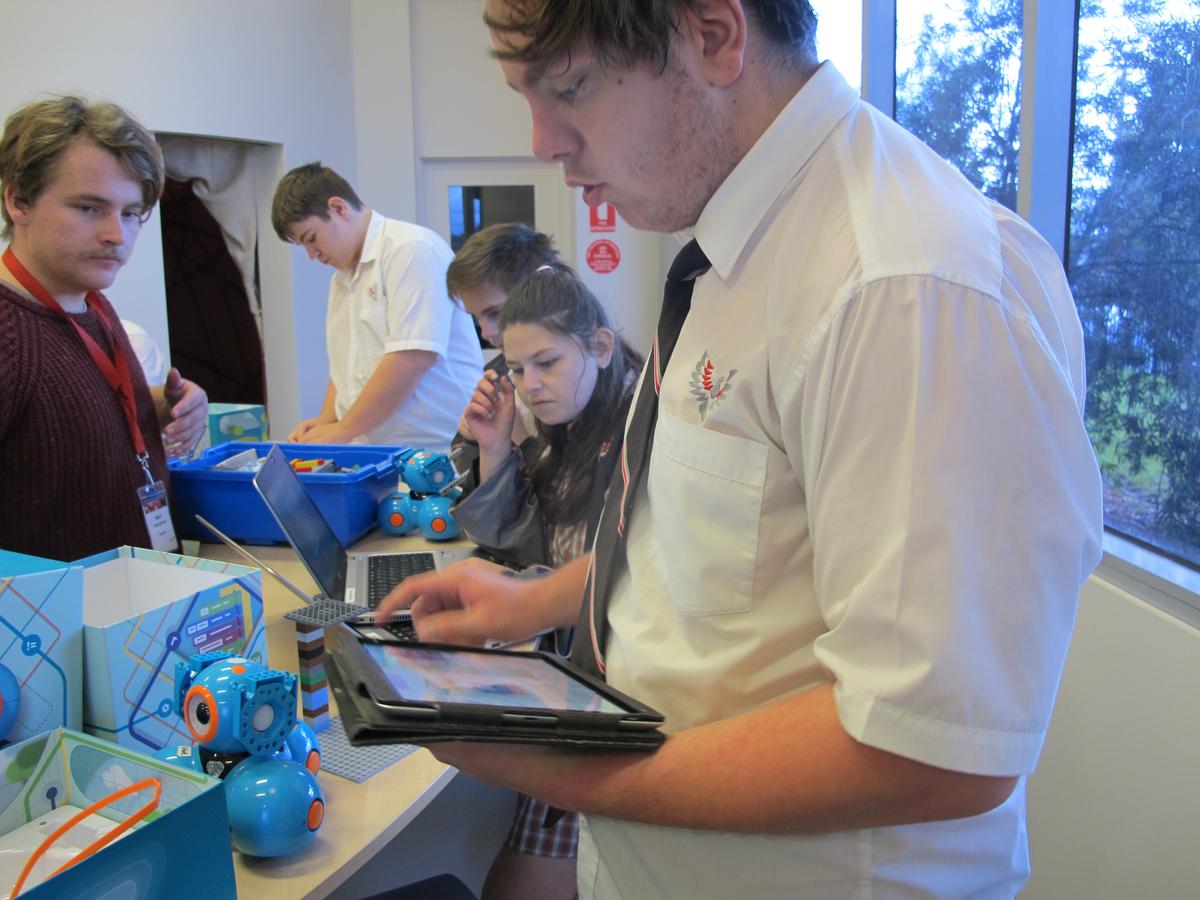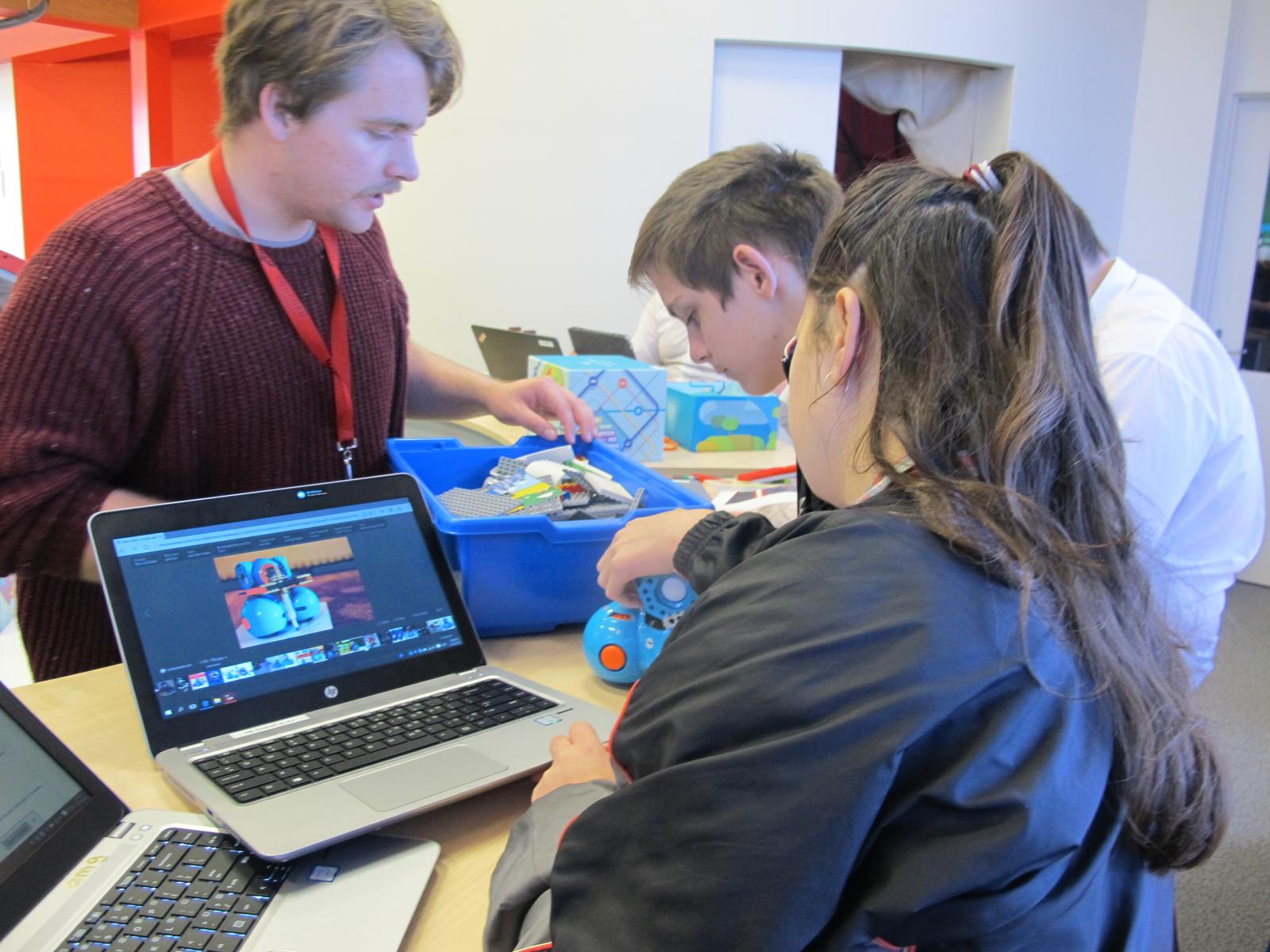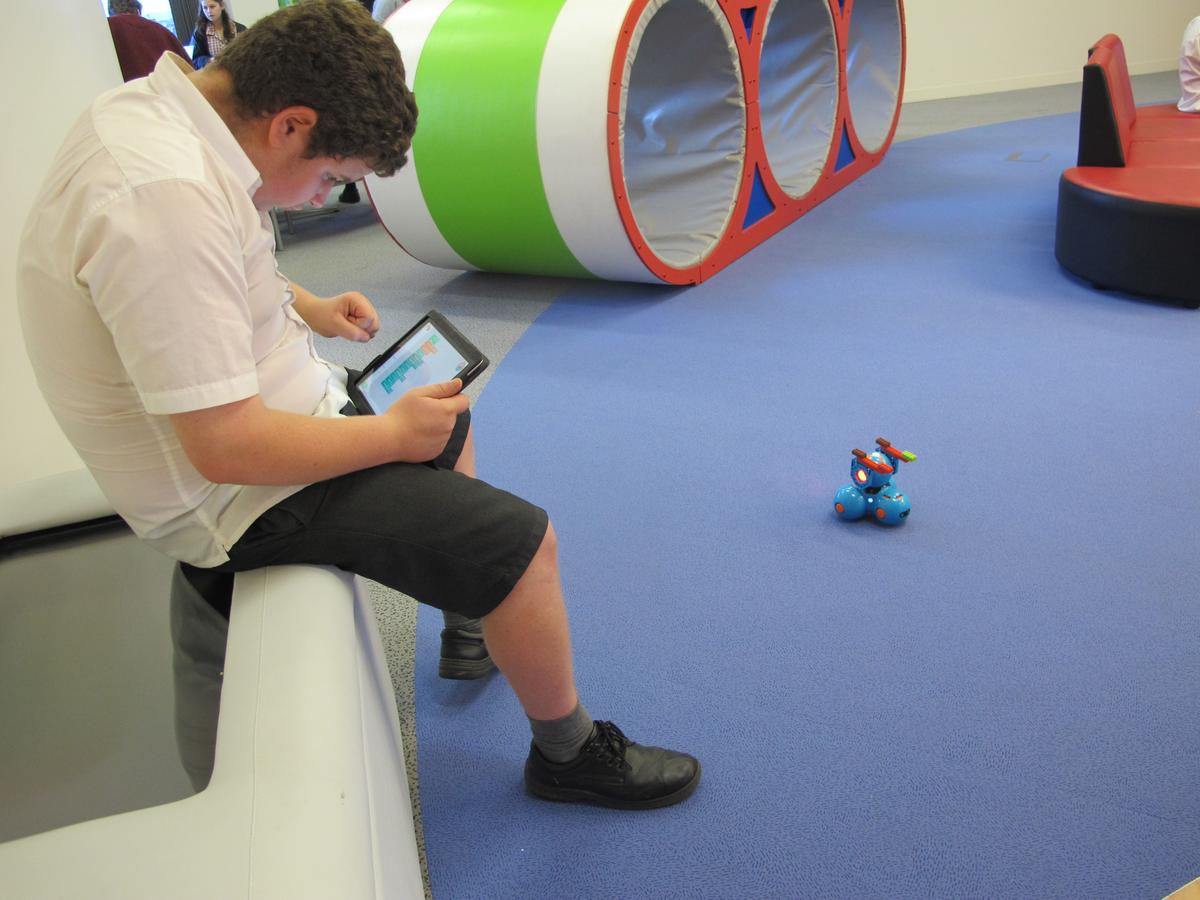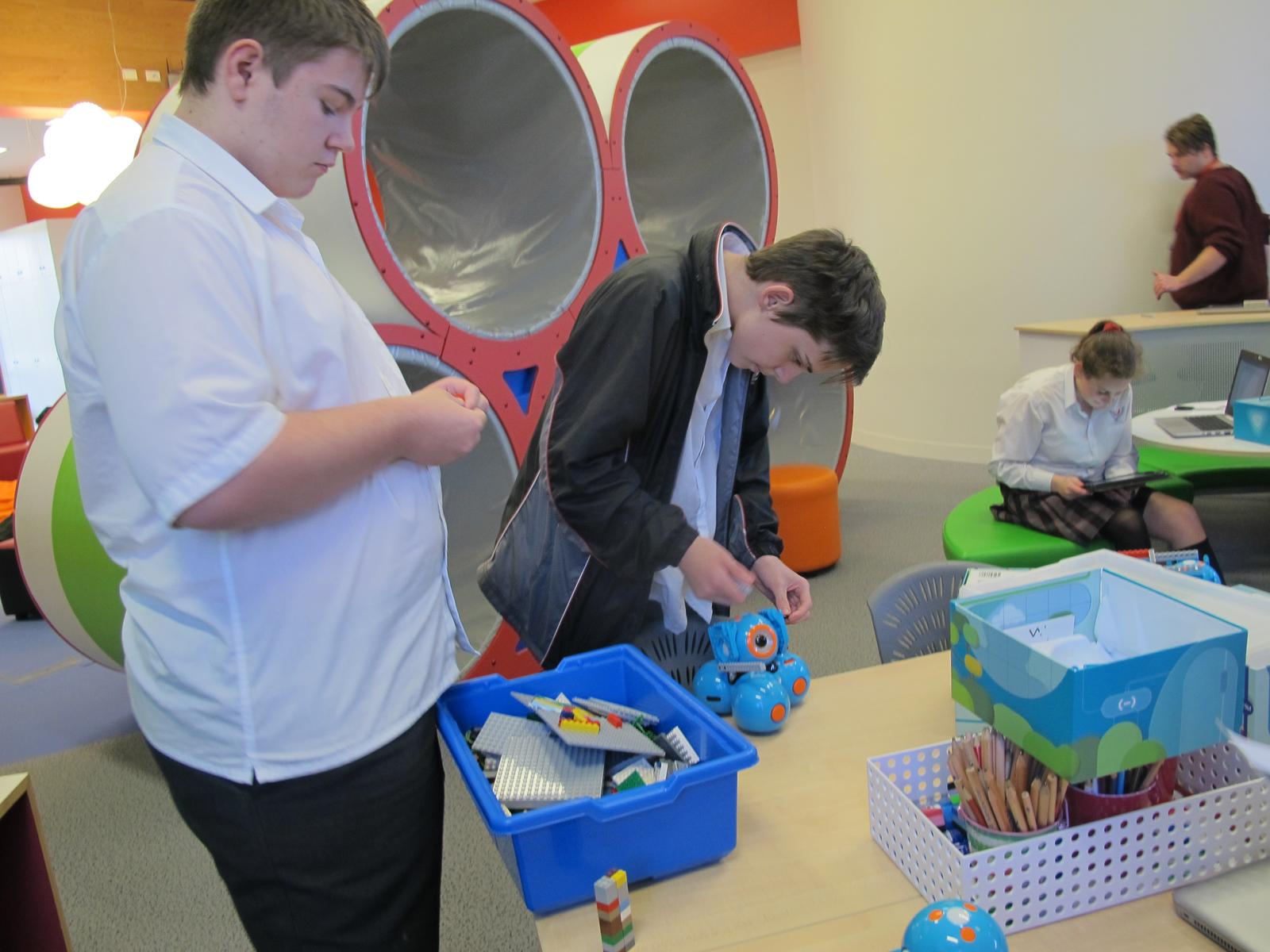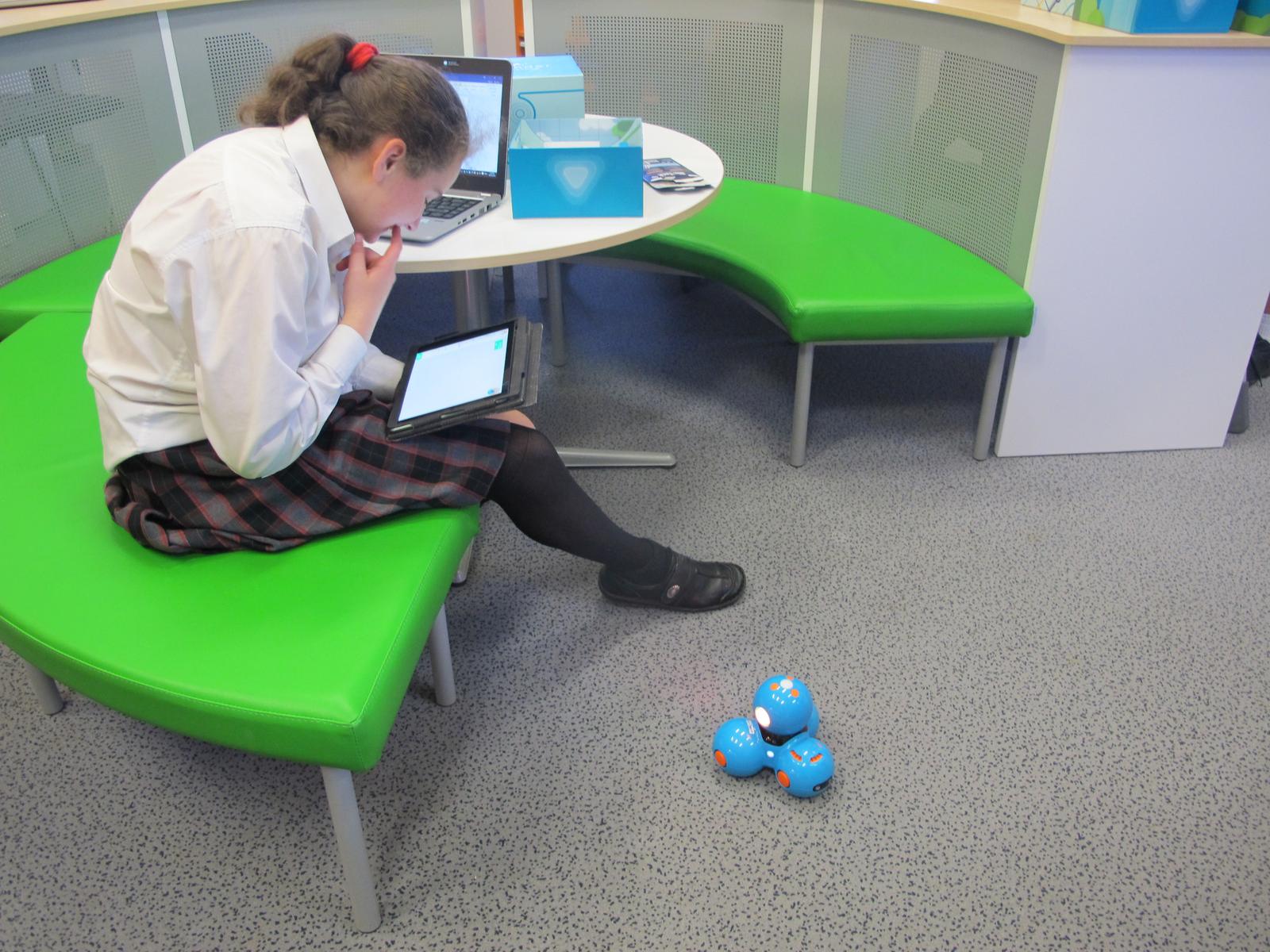Teaching and Learning
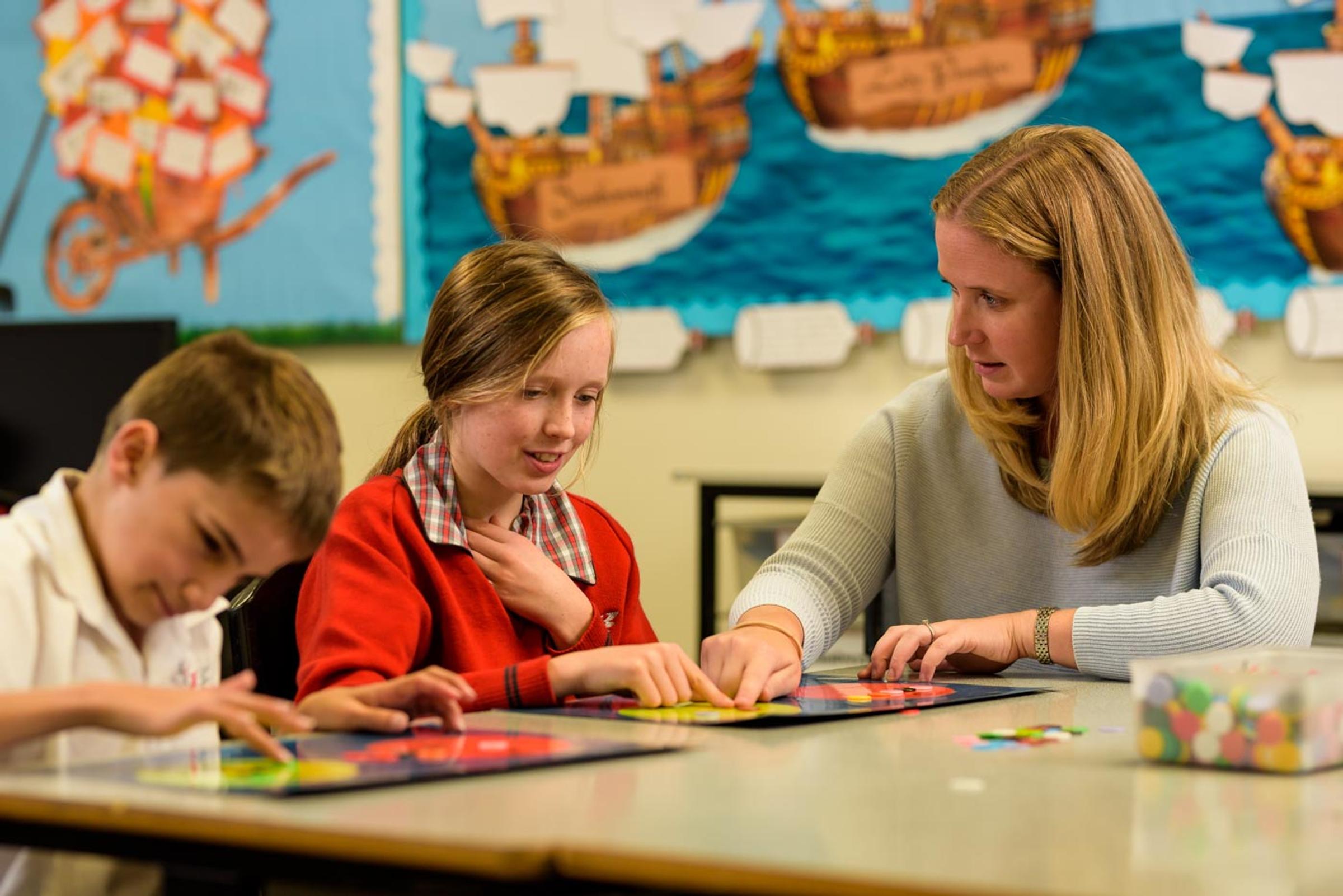
English - Writing
Most students have finalised their narrative work during this fifth week of term 2. Students in Lower Primary consolidated their knowledge of character, setting, problem and solution by: -
- using aboriginal symbol pictures to construct their own story and
- retelling and acting out familiar stories (particularly fairy tales in Prep)
Upper Primary and Secondary students have been busy creating narrative pieces by:-
- using graphic organisers to build their story sequences
- following Authorthink circle processes in Sec 7/8
- developing their vocab by exploring audacious adjectives, wonderful WOW words and sizzling starts
- drafting and editing their work; checking spelling, punctuation and sense-making performance
- illustrating and publishing their work. (Some illustrations are drawn others have accessed digital images to match and enhance the text content.)
I captured some enthusiastic authors in Upper Primary and Secondary classes last week. Fortunately parents and carers can also view some of the diverse narrative student work during Education Week, starting Tuesday May 22nd to Friday May 25th. Secondary Year 7/8 students are busy showcasing their published story writing in their section corridors, during this week. So come along and see how much students enjoy writing narrative to entertain and why they are so proud of their published work.
Spoiler ALERT!!-SMC plan to take their narrative writing to a new level this term by creating a sci-fi multimedia presentation where an intergalactic spaceship visits the different worlds students have written about in their individual narratives.
All students begin non-fiction, informative writing and continue this focus till the end of term. This text type refers to many types of text (oral, written, visual and multimodal) that
Include factual content for different purposes such as description, recount, explanation, persuasion instruction or transactional. Students will be taught to identify the unique features and language of these texts and be given multiple opportunities to practice both reading and writing informational text.
Primary students are revisiting recount for the next five weeks. Recount tells past events and is primarily based around language experiences for our students. These experiences promote writing skills by focussing on personal experiences and oral language. Initially, students will use picture, picture words and picture word sentences.to tell a sequence of events that answers 5 w’s (who, what, when, where and why) Upper Primary students demonstrating more writing fluency may be supported and challenged to write not only personal recounts but factual or imaginative recounts that link to their integrated unit on the First Fleet.
Secondary students over the next three weeks will concentrate on informative text, particularly information reports and graduate to persuasive text in the last two weeks of term.
Informative reports will be linked to the integrated curriculum learning they are doing. Firstly they will be looking at the purpose for writing information reports, as well as the structure, features and language used. Using graphic organisers, students will research a topic on Immigration or the Australian Colonies to plan, write and edit an information report.
PreCAL students have a continuing focus on informative texts till the end of term as they work collaboratively on multimedia projects related to either community safety (Yr. 7/8) or workplace safety (Yr. 9/10). PreCal students in Year 9/10 are being challenged to create an advertisement about an aspect of workplace safety. This week, I captured SGJ skilfully constructing informational text on the safety signs and equipment related to the Endeavour Industries’ site they’d visited.(See the Integrated Studies pics for more detail)
Secondary 7/8 PreCAL are examining different jobs in our school and the wider community that help us in emergency situations and finding out what they need to do to keep safe. Recently they interviewed Colin Simpson, our AP and chief warden, after they had generated interview questions about his role in school evacuations. Soon SFC will interview a police officer and a paramedic about their important role in keeping our community safe. Watch this space as the class has already begun filming their community safety documentary and with Ashley’s help in the Discovery Centre, it will be a worth waiting for!
Reading and Viewing
In reading lessons, although we are now moving onto Concepts of Print, students will continue to learn strategies for decoding and comprehending a range of texts, at their point of need.
Learning how print works assists students’ reading and writing. Initially students need to know:-
- print is spoken word that differs from visual text and pictures
- the direction of text (where do you start and finish reading)
- the parts of print especially letters(upper/lower case letters), words and sentences.
- how to hold or orientate a book and turn pages sequentially
- the parts of a book (front, back, cover, spine, author and illustrator)
- simple functions of a keyboard and mouse (scrolling, selecting icons, dropdown menu)
Teachers with early readers will point to words, refer to parts of the book and tell students explicitly about different concepts of print, as needed. This could be at any stage of the lesson; at the start or during a focus group or at the end in whole class share time. Parents and carers can also support their children with these types of strategies at home.
As students develop more fluency with text the concepts of print broaden and include:
- text construction (e.g. how headings are used, why text is bold, enlarged and italicised,)
- different types of text- how they are organised using page numbering, tables of content, alphabetical order of index and glossary, headings and titles, images with text, different types of diagrams.
- online text tools for navigation (buttons, bars) and further information (links, hyperlinks sitemaps and live connections), screen layouts and scrolling to access digital texts.
Mathematics
Number and Algebra
Across the school the Number and Algebra focus has shifted from addition to subtraction. Students have been supported to transfer their addition skills to subtraction situations to solve subtraction stories, number sentences and worded problems. They continue to use effective basic strategies such as:
- using fingers and materials (such as subtraction mats, 5 and 10 frames an array of manipulatives)
- make drawings to visualise solutions
- use number lines to track processes
Classes have developed instructive anchor charts to record what they already know about subtraction in terms of symbols, language and strategies. Over the next few weeks classes will add new information as they build on their knowledge of subtraction.
Through explicit instruction and with multiple exposures to subtraction problems students will gain confidence with the key concepts that centre on;-
- knowing about less and more
- knowing the biggest number always comes first
- knowing that subtraction means difference
- Partitioning numbers into whole/part/part
Students are working on these concepts at their point of need. Initially the focus is on grasping less and more amounts. Students at this level may engage in action number stories and include a variety of number rhymes and chants such as ‘10 green bottles.’ Next students’ model practical situations involving numbers to 10 and beyond e.g. using 2 coloured counters in 10s frames to show a number is made up of parts. Then as students improve their proficiency with simple take away strategies they will develop a wider range of efficient strategies such as count back, count on , hop back, partitioning using the split strategies and rearranging the parts (using regrouping and compensation).
Measurement and Geometry
Time has been the Measurement and Geometry focus, over the past six weeks. Students have built on their current level of understanding of time by:
- using schedules to sequence daily events and reinforcing language such as; today, yesterday and tomorrow
- identifying day and night time activities through sorting images or symbols
- naming and ordering the days of the week, months of the year and seasons
- reading calendars to locate week days and track when events occur
- finding out the purposes of a clock
- making and reading analogue and digital time
- understand timers can be used to count down or count up time
- comparing and ordering the duration of events using various timers
- converting between units of time to calculate elapsed time
Starting in week seven and for the remainder of the term students begin learning about location.
- At the very early stages students are simply locating an item in a familiar environment such as a classroom. (E.g. get me the pencil tin). They can identify inside and outside and follow simple directional words to locate or move an object ‘on’, ‘in’ or ‘under’
- Later on students would use positional or directional location language, e.g. behind, forward, backward, through, left, right to describe position and movement.
- More proficient students give and follow directions using the language of distance and direction to move from place to place (eg Move 5 paces left, do a quarter turn left ,,,,)
- The most proficient students might use a map to find an object or design a map to find an object. They learn to describe position and pathways and interpret more complex maps that include compass points, co-ordinates, legends and map scales.
Integrated Curriculum
The Community integrated unit will continue for another five-six weeks. It certainly has captivated student interest and motivated students to think more deeply about our Australian heritage and the foundation stones for our diverse community.
.
With a focus on ‘Stories of the Past’, Lower Primary students have explored many beautiful “Dream time “ stories and have used aboriginal symbols to create paintings on rocks, bark and paper.
All Upper Primary classes, this term, immersed themselves in learning about life on a tall ship as they visited the Polly Woodside. This has ignited students' learning about the First Fleet, which is their integrated unit focus. They realised through hands on experiences how cramped it was on board, how physical the jobs were and how simple the sailors’ conditions, food and pastimes were. Apparently some students still found it incredible that our early mariners survived without mobile devices and electricity.
If you can, I recommend you make time to see the students’ gallery of art works inspired by their integrated curriculum. They will be on display during Education Week activities at Lower Primary (Watsonia Campus) and Upper Primary (Bundoora Campus) next Friday 25th May.
Secondary 7/8 have watched and reviewed compelling episodes from the series ‘My Place’ to appreciate how our early aborigines experienced their first encounters with white colonists. A significant part of the unit on Australian Colonies centres on exploring the impact the British settlers had on the lives of Aboriginal people. Soon most classes will investigate the enormous impact the gold rushes had on the development of Australia. Students will further develop their research skills and use a range of graphic organisers to support their exploration of life on the gold fields. Teachers are also assisting students to collect, analyse and draw conclusions about historical sources.
Secondary 9/10 classes have personalised their immigration learning pathways this term by encouraging students to guide the final investigations on their Immigration integrated unit. Each classroom is taking a different spin on this topic. SJG planned and undertook a guided tour of the Colony Exhibition, featured at the National Gallery of Victoria. Many classes have undertaken some enjoyable food tasting as they explore different cultures and experience unique family recipes. More excursions to Immigration related cultural venues are in the pipeline.
PreCAL classes are all working on multimedia projects related to either Emergency Services (Yr. 7/8) or workplace safety (Yr. 9/10). (Also featured in the earlier English, writing entry) SFC’s term two project is to write, create and film a documentary about Emergency Services. The Secondary 9/10 PreCAL classes are planning a workplace safety advertisement. Currently they are designing a workplace safety poster and including a slogan that they will also use in the movie.
Social Competencies
In Social Competencies relationships has been the key focus for the last five weeks. Across the school, students have practised the skills needed to improve their relationships through role play, circle work and video scenarios.
Lower Primary students have explored appropriate touches for family, friends, teachers and community members. They have acted out friendly play talk, turn taking and solving friendship problems.
Upper Primary students, progressively over the term, have made a social story about appropriate behaviour with different relationship groups. More recently they talked about situations that make them feel unsafe or nervous, such as meeting strangers and ‘tricky people’. The social stories will soon be sent home so students can, further, share their learning with parents and carers.
Secondary classes have examined the different relationships they have with family, friends, boyfriend and girlfriend and the community. They have investigated how communication impacts on relationships, with a particular focus on key verbal and non- verbal communication. They’ve role played scenarios using appropriate speaking volume for both inside and outside situations.
Each week Secondary 7-12 students engage in additional learning programs that enhance students’ opportunities to practice effective communication and develop interpersonal skills.
- Each Friday the Secondary 7/8's have Rock and Water training for boys and MPower Girls sessions for the girls. Currently the Year 7 boys are learning to identify situations in which they need to be calm, relaxed and flexible (water) and more tough and resilient (rock) and when they need to centre themselves and self-manage in a social setting.
- STEAM programs in Secondary 9/10 have a clear focus on building personal and interpersonal skills. Each Friday students team up in different groups to learn a new skill that stretches their comfort zone and challenges their ability to collaborate as they solve tasks.
- VCAL Extreme Teams- Each Tuesday afternoon Secondary 11/12 students break into six mixed groups to participate in Extreme Teams. These teams work together on challenges that aim to develop and practice many employability skills, particularly communication, team work, problem solving, planning and organisations, learning skills and self-management.
- Parents and carers have a chance to see these successful programs operating during Education Week
Tuesday 22nd May
- VCAL Extreme Teams, Secondary 11/12 Building (Bundoora Campus), 1.30pm – 3pm
Friday 25th May
- Secondary 9/10 STEAM programs, Discovery Centre (Bundoora Campus), 11.50am – 12.30pm and 1.30pm – 3pm
From weeks five to ten the content focus, across the school, moves on from relationships to sexuality.
Lower Primary students will be identifying those parts of the body that are ‘private’ and indicating the contexts in which body parts should be kept private. Amongst other incidental learning about their changing bodies, they will name the major parts of the body and sequence images of major stages of their life.
Upper Primary students will be naming and describing how their bodies are growing and changing. They will identify and label private parts of the body and understand the contexts in which body parts should be kept private.
The key sexuality learning for Secondary 7/8 students is describing the physical and social changes that occur as they grow older, particularly as they reach puberty. They will also explore ways to manage these changes and discuss tasks they are allowed to do by themselves and explain how these have changed since they were younger.
Secondary 9-12 will focus more on exploring strategies to manage physical, social and emotional change. They will consider how friendships change as they grow older and investigate different levels of a personal relationship and the steps associated with taking a relationship to the next level.
SPECIALIST TEACHING AND LEARNING SNAPSHOT
Event Planning
A popular Secondary 11/12 elective for Semester 1 is Event Planning. Our resourceful specialist teacher, Hayley Northridge, empowers her students to plan, organise and problem solve ways to run key events such as sports days, walkathons, football clinics and tournaments. In term 1 the students chose to organise a Secondary Sports Day that would eventuate in week 2, Monday 23rd April. They worked progressively and collaboratively on a range of robust event components:-
- researching sport challenge tasks
- planning an activity design brief
- sourcing equipment
- trialling activities with individuals, groups and a whole class
- designing event notices and tally sheets
- preparing supportive classroom worksheets e.g. word searches, colouring in sheets
- constructing teacher activity packs
- practicing specific roles to help the day run smoothly
Two other VCAL classes, (SNK and SAP), also planned the hamburger lunch for Secondary students on their Sports Day. This also involved a lot of organisation, teamwork and efficient time management.
The Secondary Sports Day was a huge success. The feedback from students was very encouraging; they enjoyed the level of challenge, the pace of the rotations and the assistance given by the officials (i.e. the VCAL Event Planning students). The hungry competitors were also very appreciative of the catering team who prepared, cooked and distributed their tasty hamburgers to the students.
In week 6 on Tuesday May 22nd five classes that teamed up effectively and performed well on the Sports Day receive a Fish and Chip lunch award. Those classes are; SNK, SSB, SCO, SMP and SAP.
After the culminating Sports Day event the elective class have been spurred on to extend their skills by organising a basketball tournament. .No doubt we will hear more about this special event in the coming weeks. We are fortunate to have skilful and dedicated teachers such as Hayleigh, Ann and Nina to envisage capacity building programs that galvanise our students’ collective energy and ability.
TEACHER PROFESSIONAL LEARNING
Community of Practice
Each term teachers in the Banyule Nillumbik School Network organise a time after school when teachers can select a professional workshop aimed at improving practice. Last week teachers in our network engaged in this professional learning by taking part in a ‘Community of Practice’ smorgasbord. It was very successful as most of our teachers reported there was a wider choice of options to engage in further professional collaboration and learning. Concord School hosted two presentations in this Smorgasbord.
- Kerryn Deayton presented An Introduction to Autism and its impact in the classroom.
The session provided an overview of what Autism is and how it impacts on a student's learning. The session also looked at what reasonable adjustments are, and why we need to make them. There were over 20 participants, mostly Primary and graduate teachers attending this popular workshop.
- Sam Birrell and Kaleigh Hughey teamed up to present a workshop titled STEAM at Concord School. During this session they shared how they approached STEAM at Concord with Secondary 9/10 students so that they are challenged and given choice in learning areas. They explained how they used the Personal Social Capabilities curriculum to assess students and provide opportunities for students to collaborate on projects and meet the varied learning needs of our students. This workshop attracted mostly Secondary teachers in the network.
The teachers hosting the sessions are to be congratulated for preparing and sharing their expertise with other teachers. This kind of networking broadens teachers learning individually and collectively and enhances the profile of our school as a place of excellence in teaching and learning.
Helen Edmonds
Acting Assistant Principal
